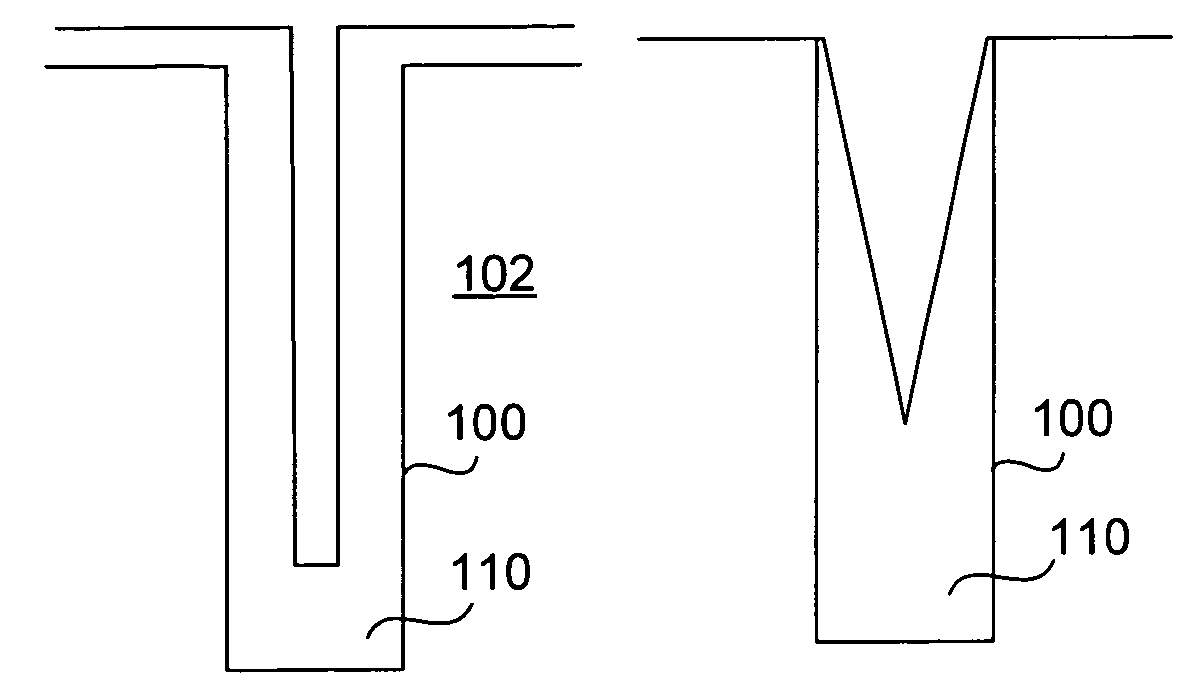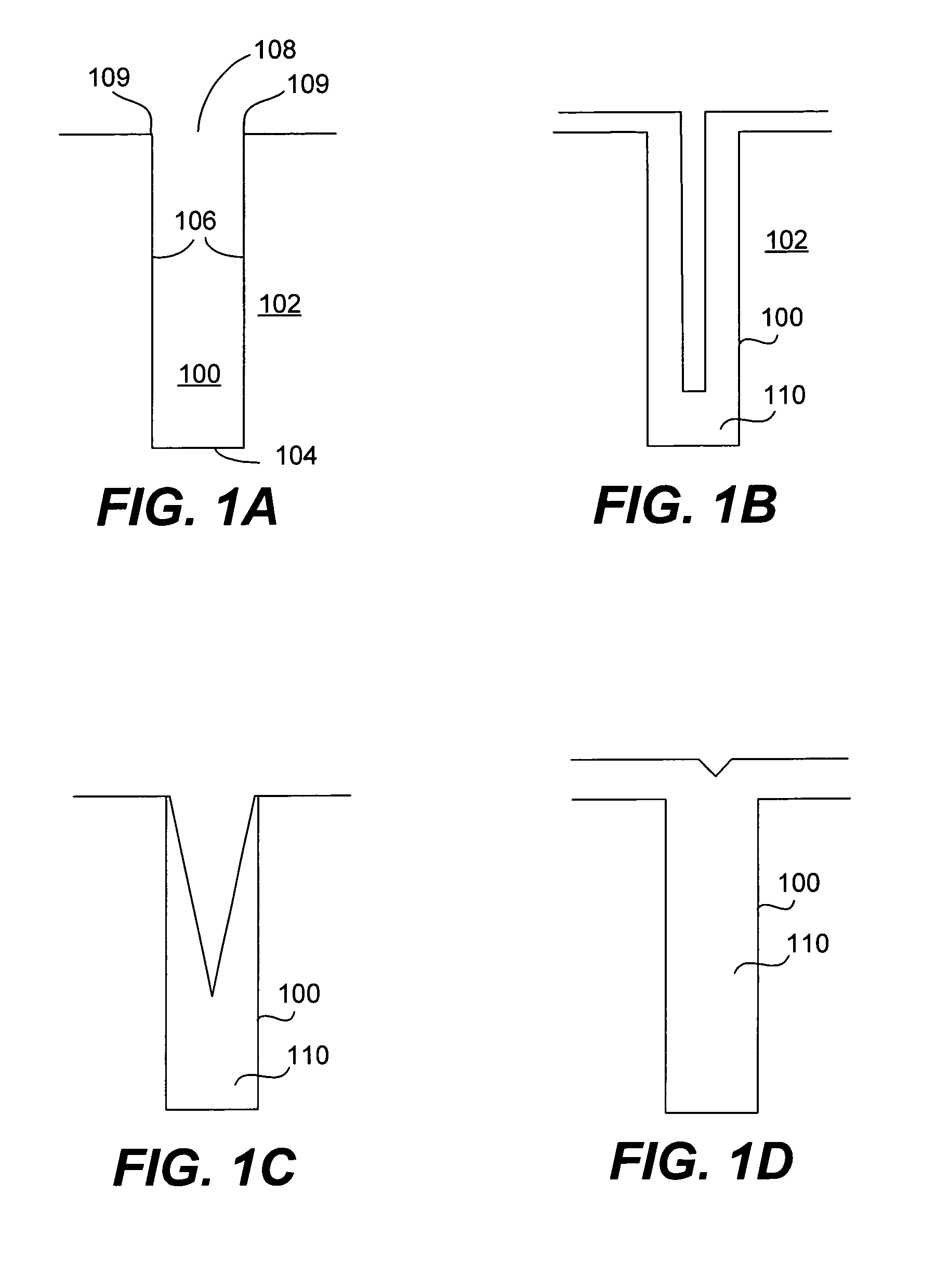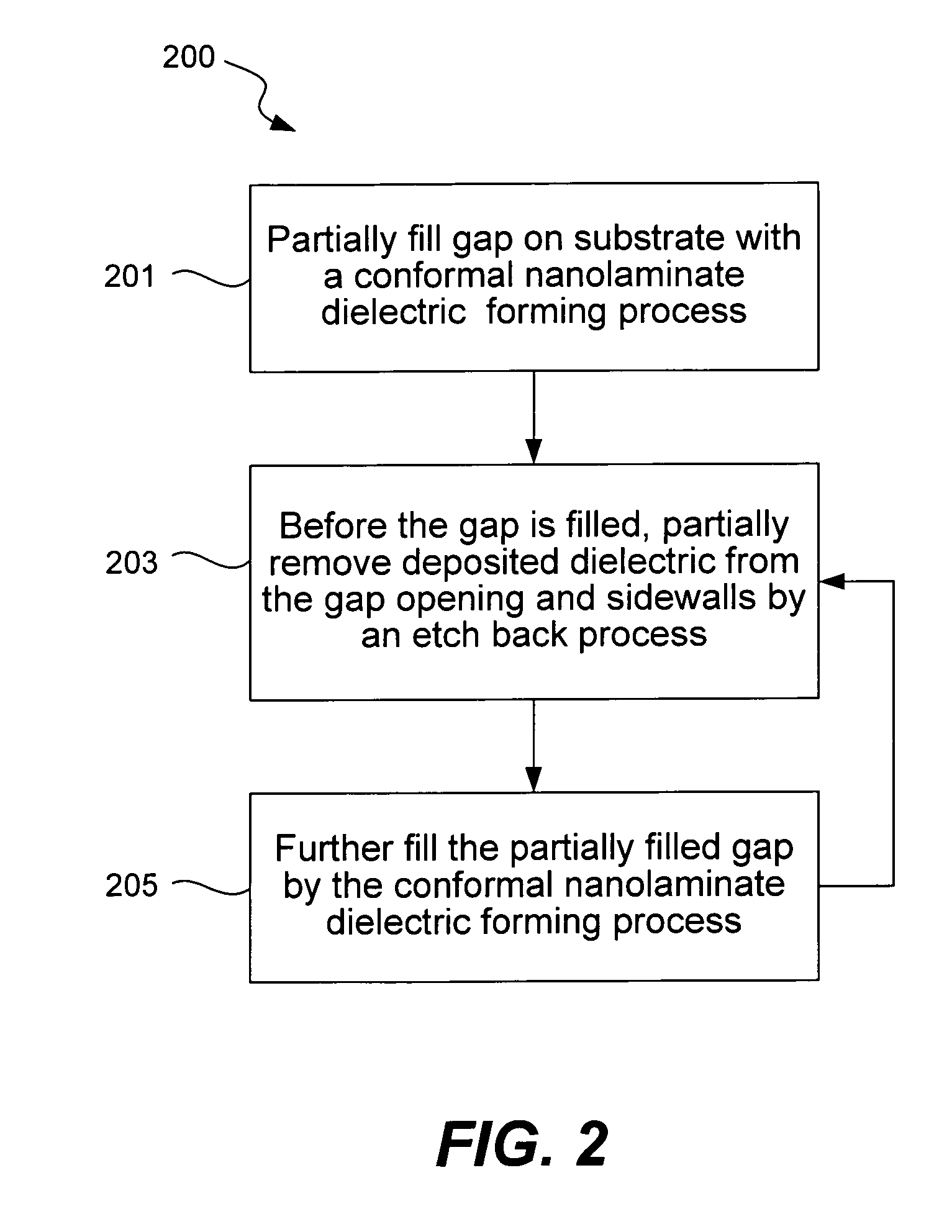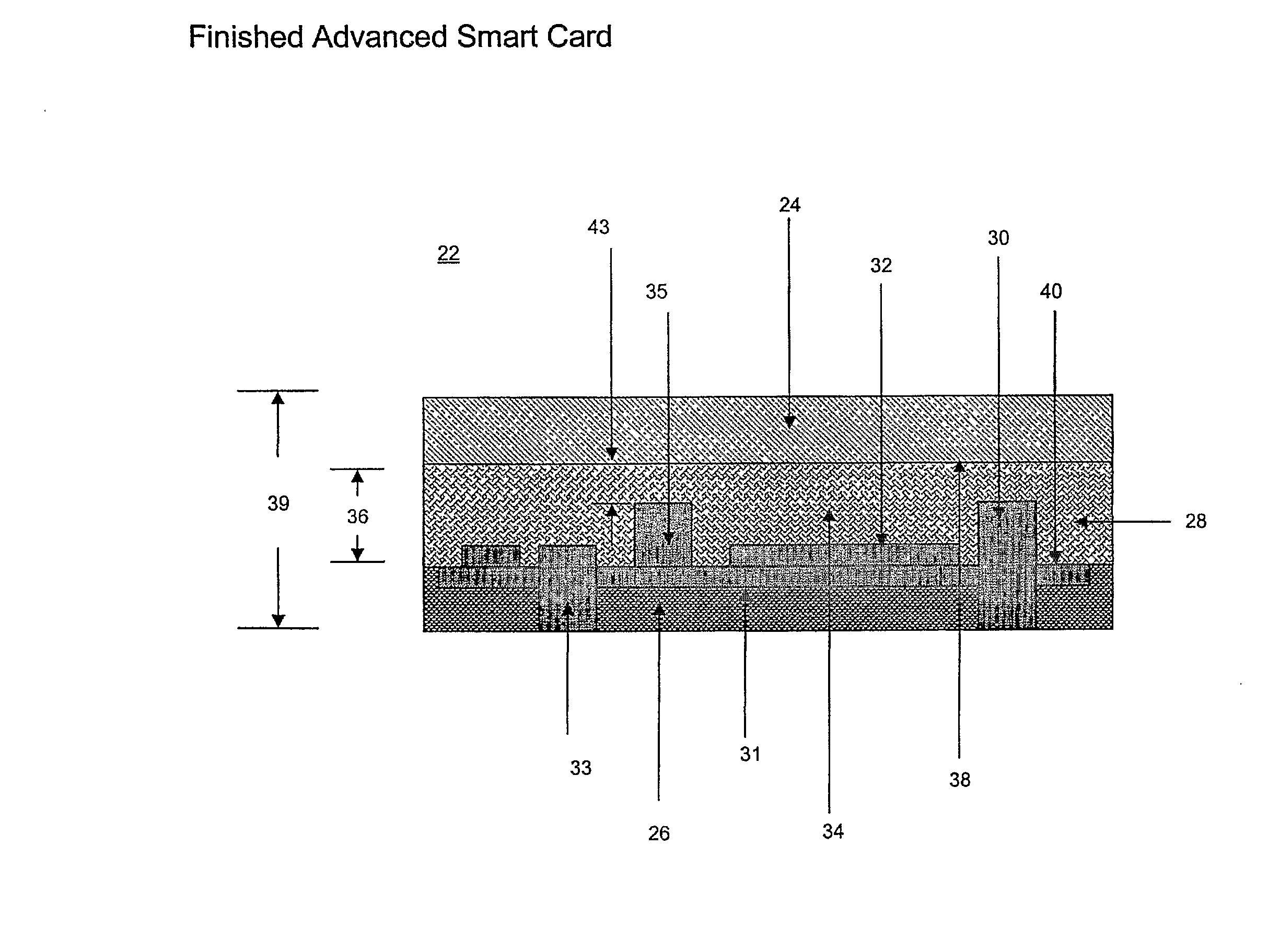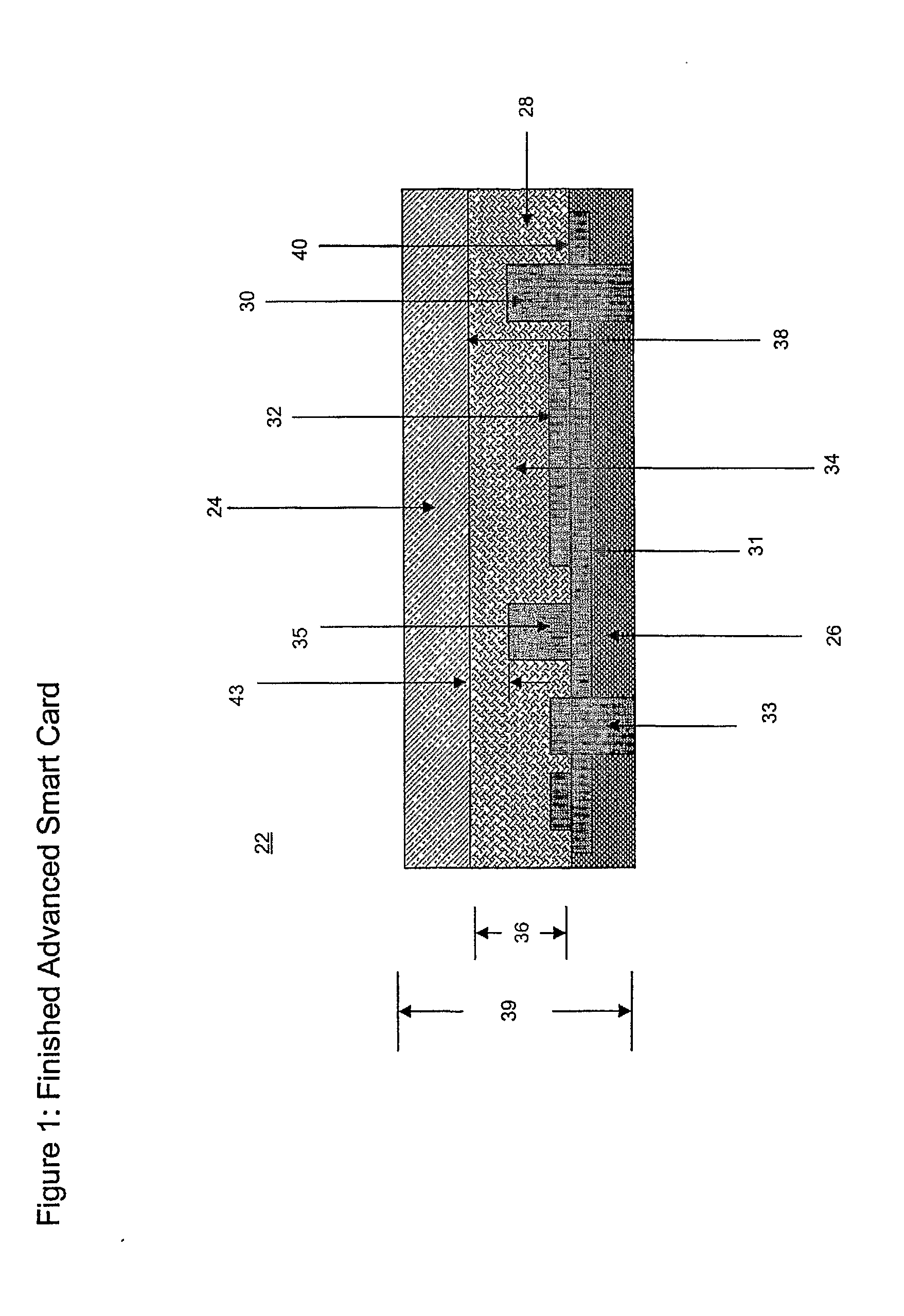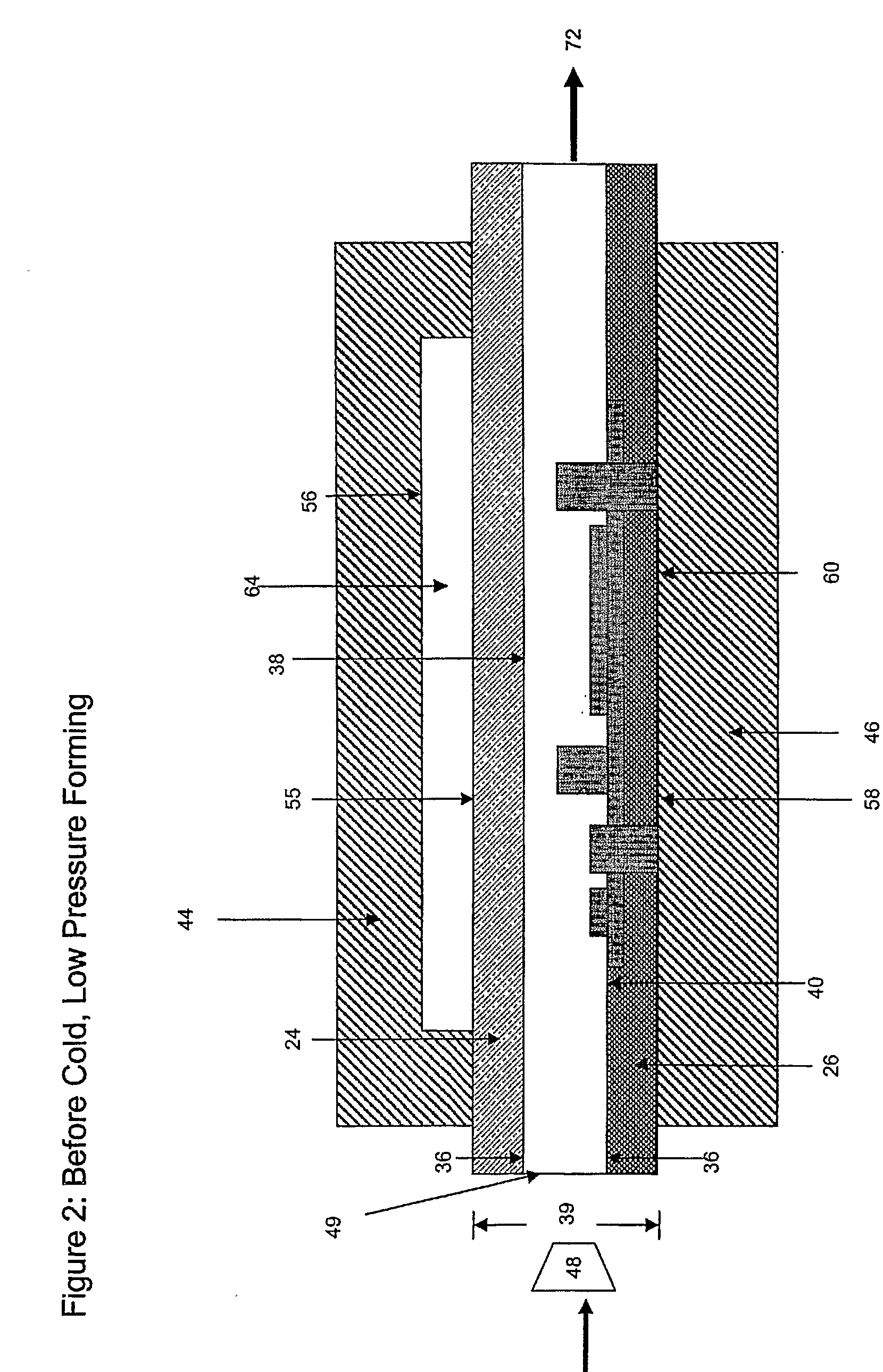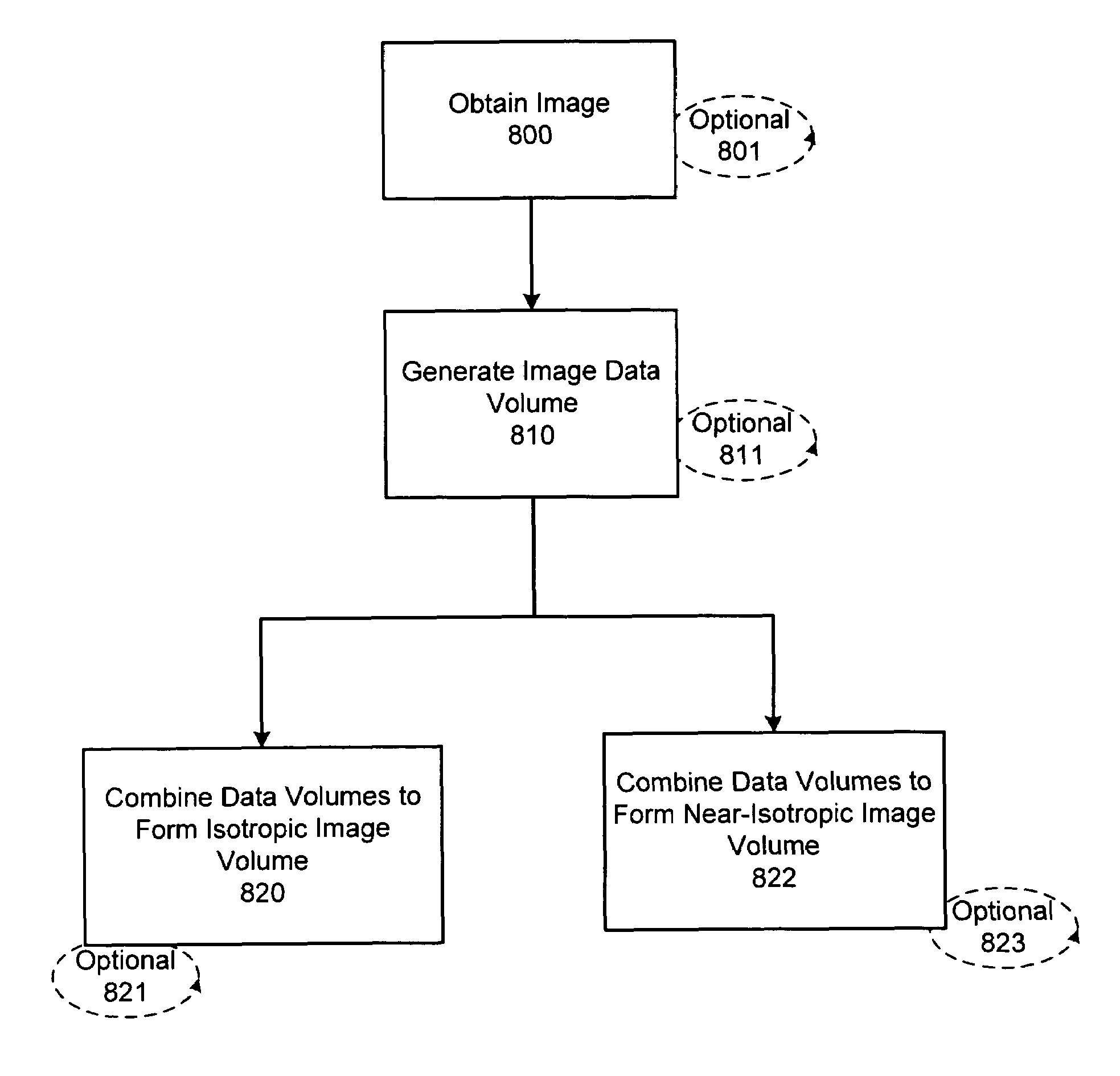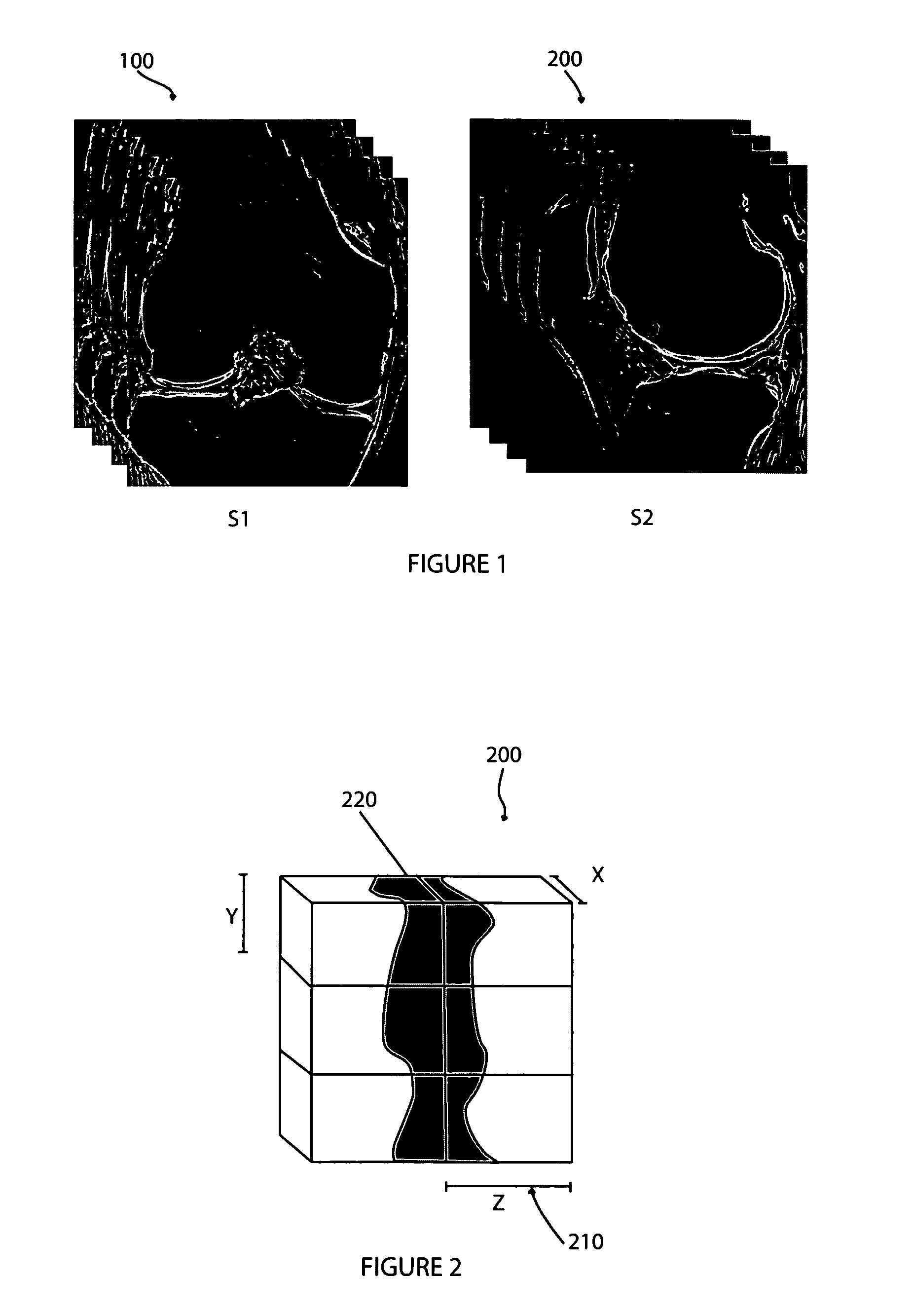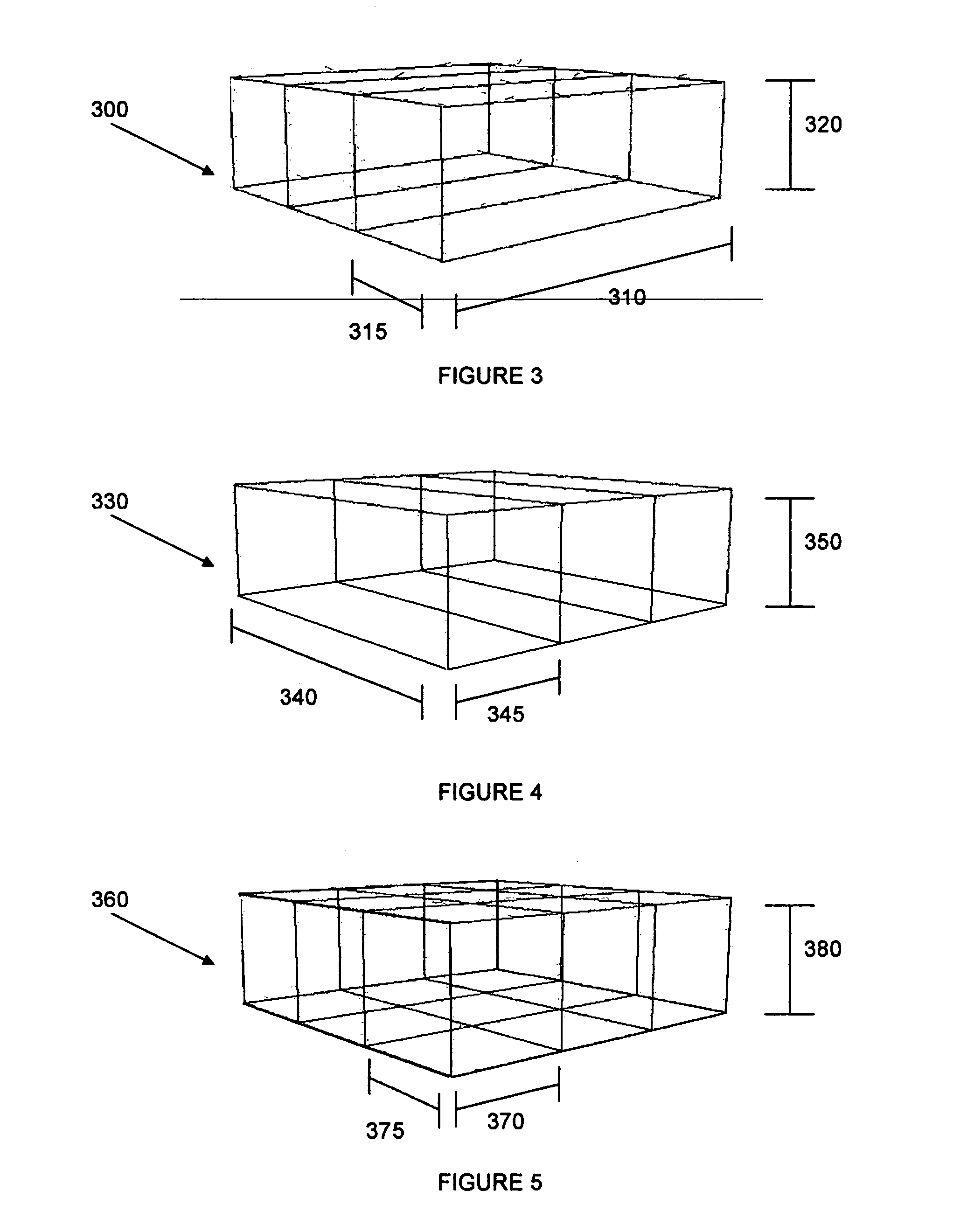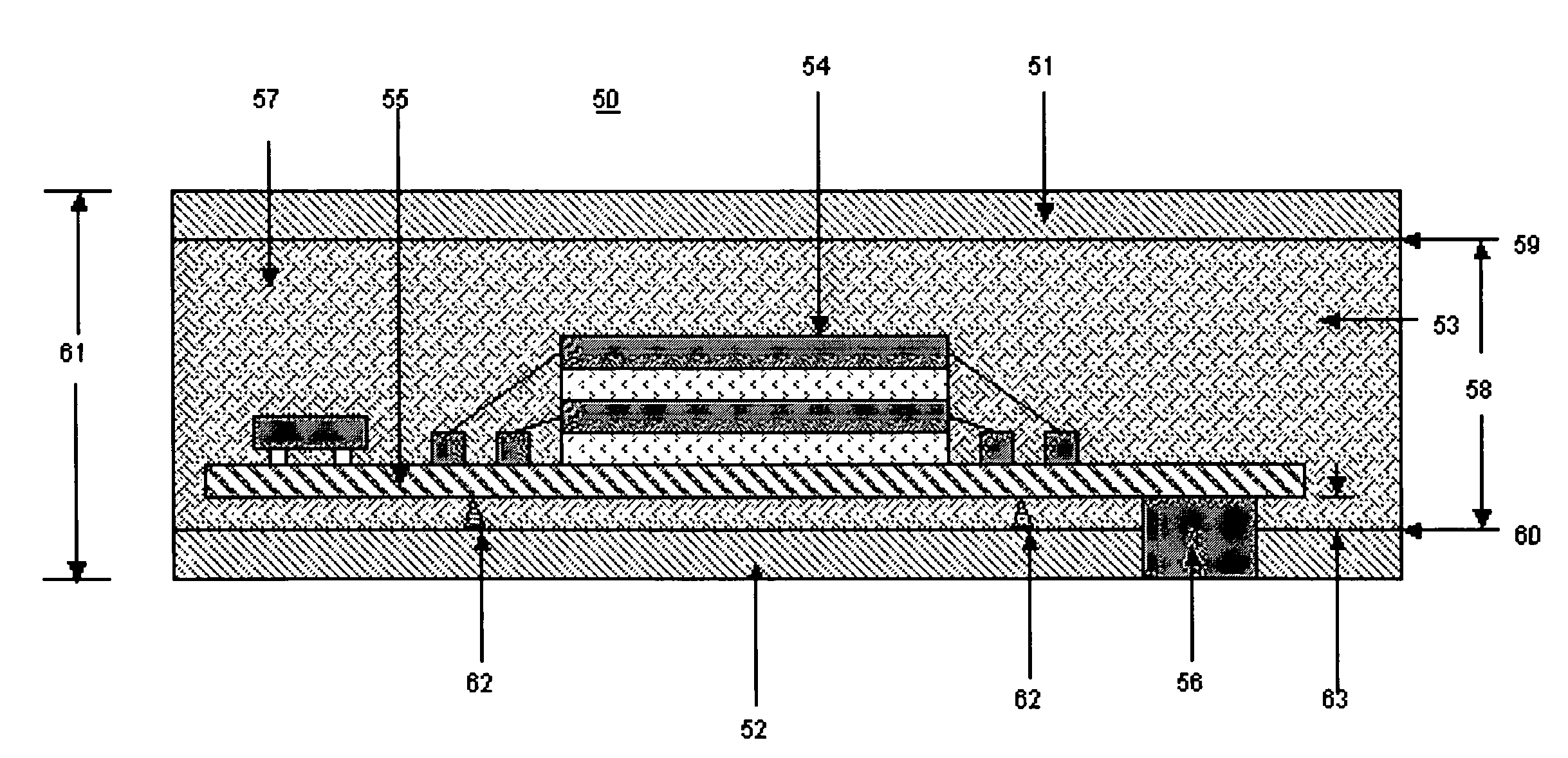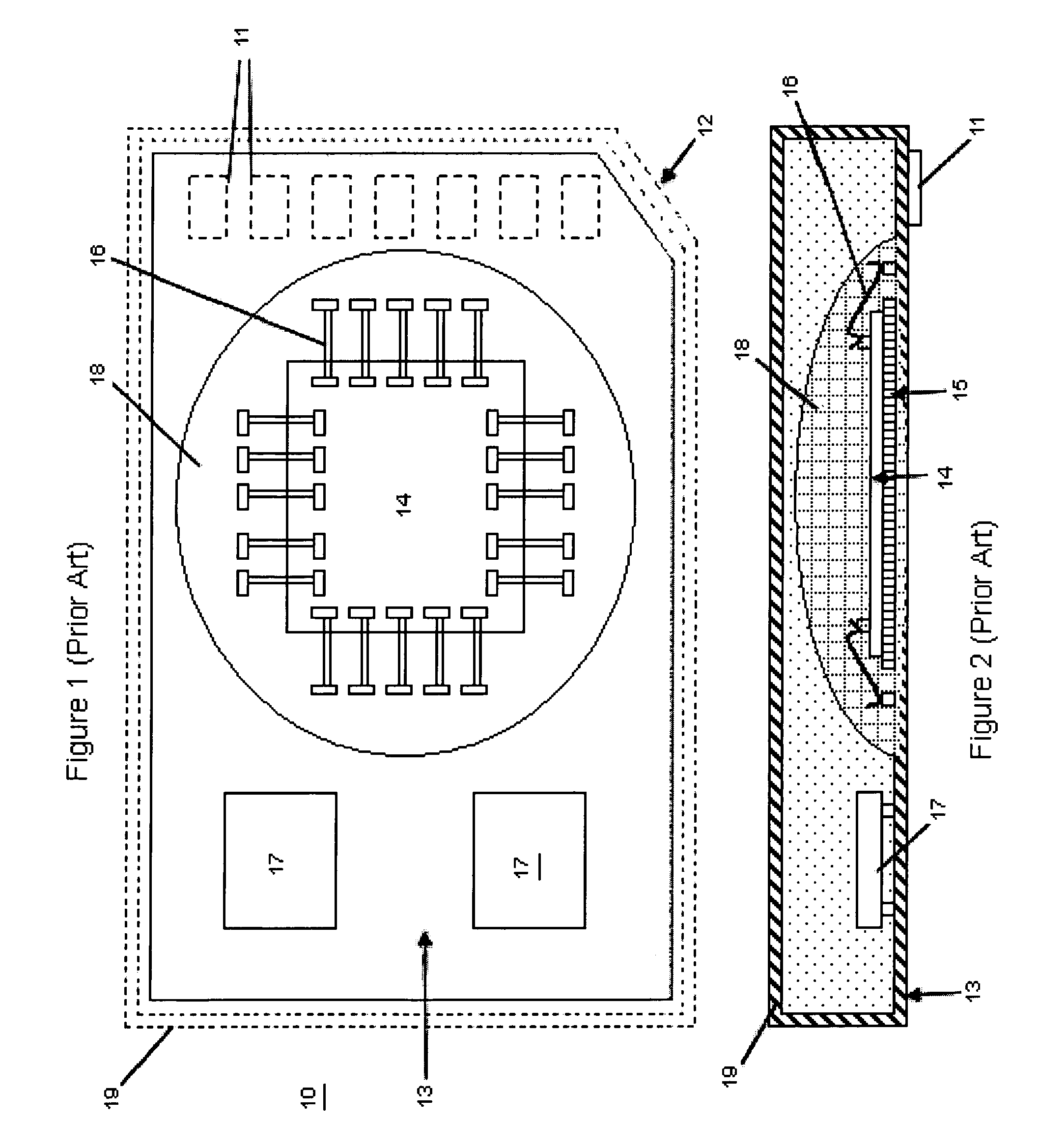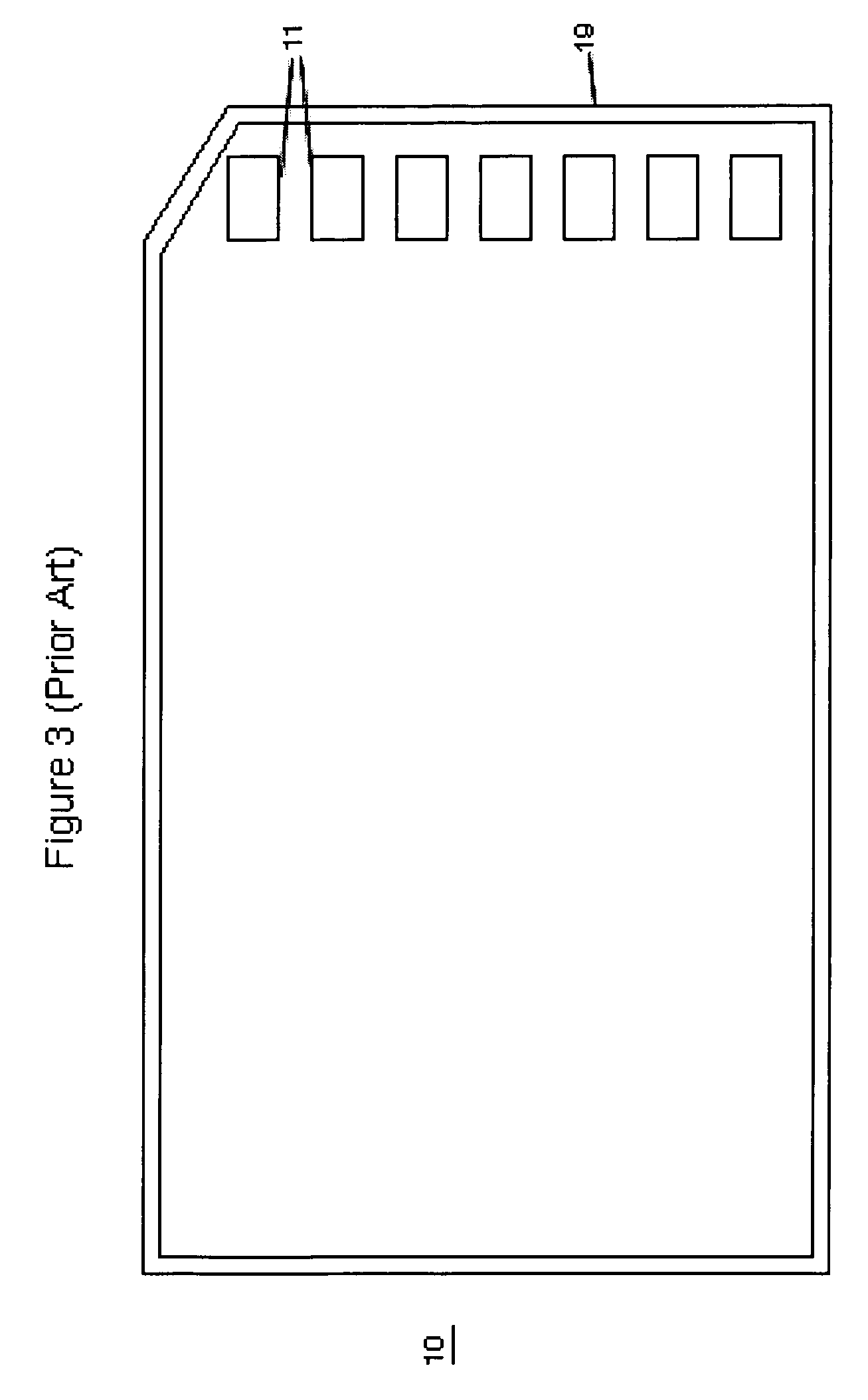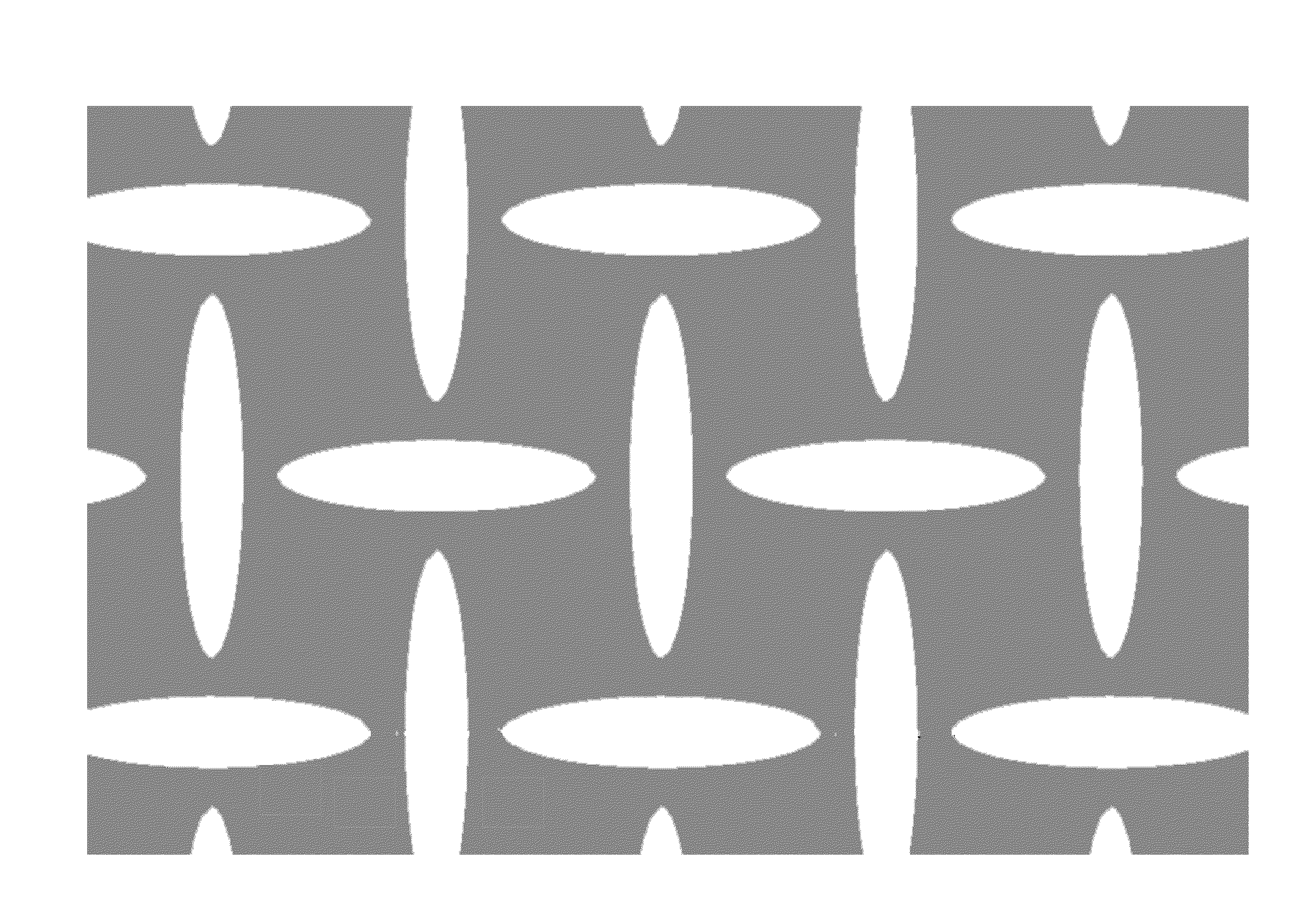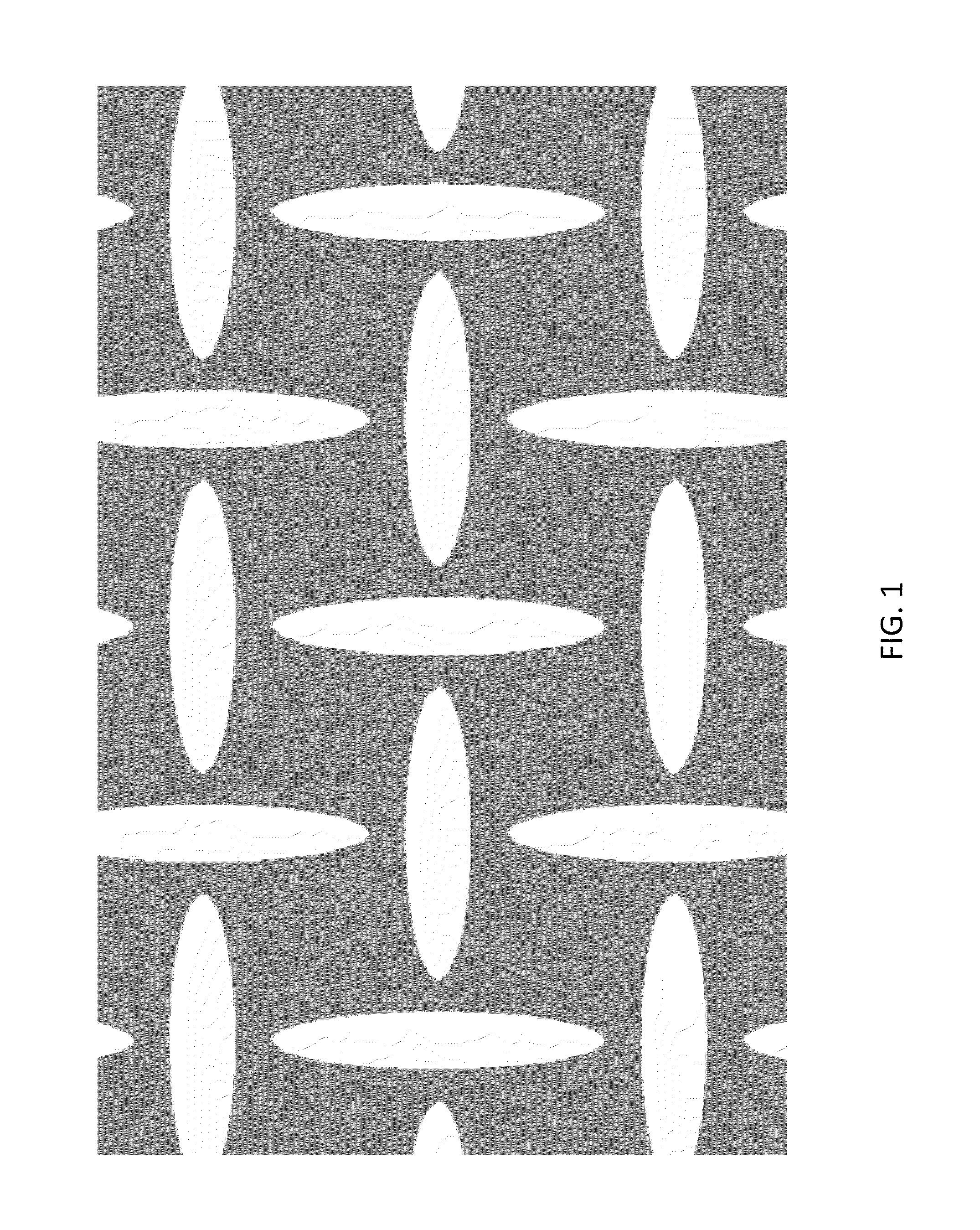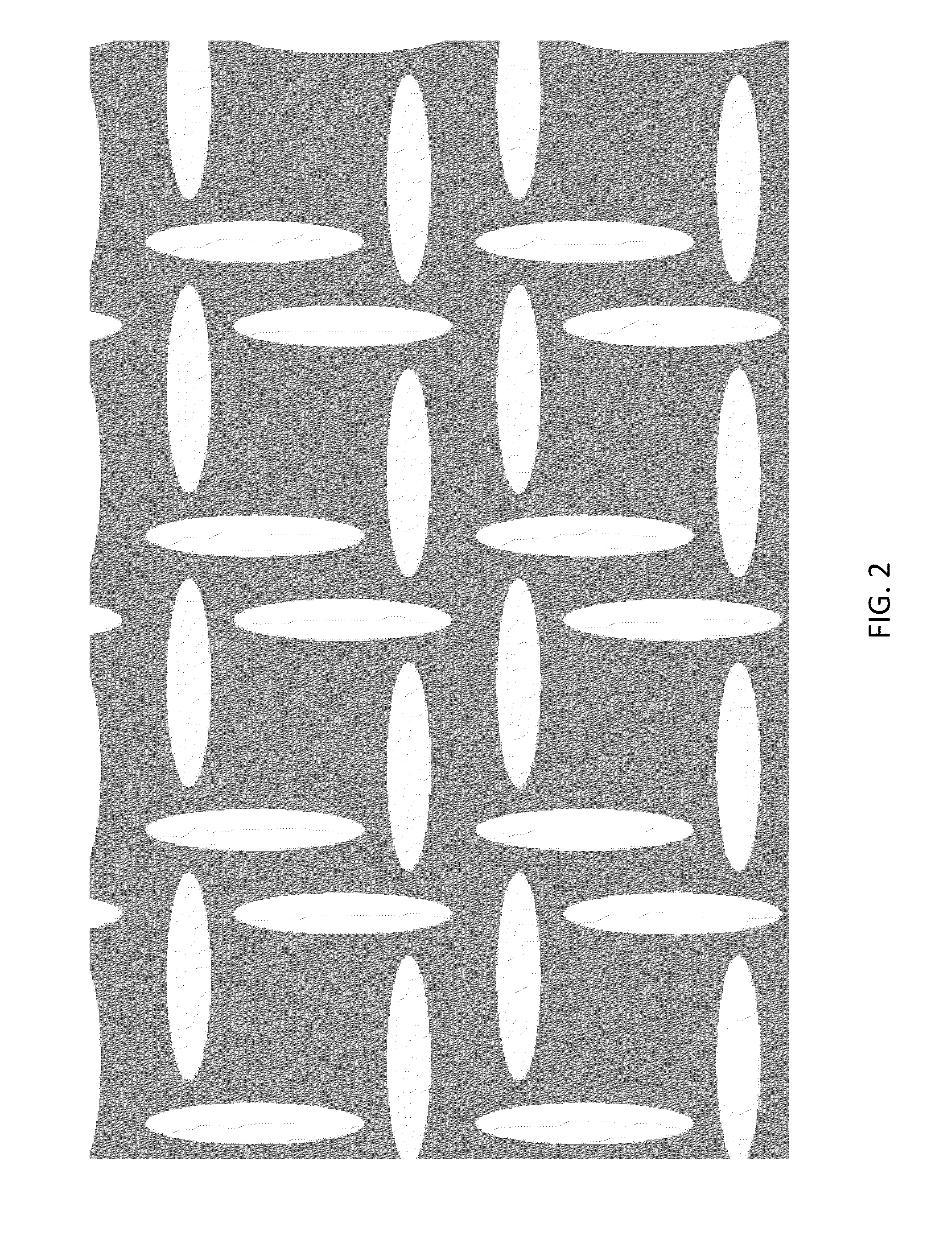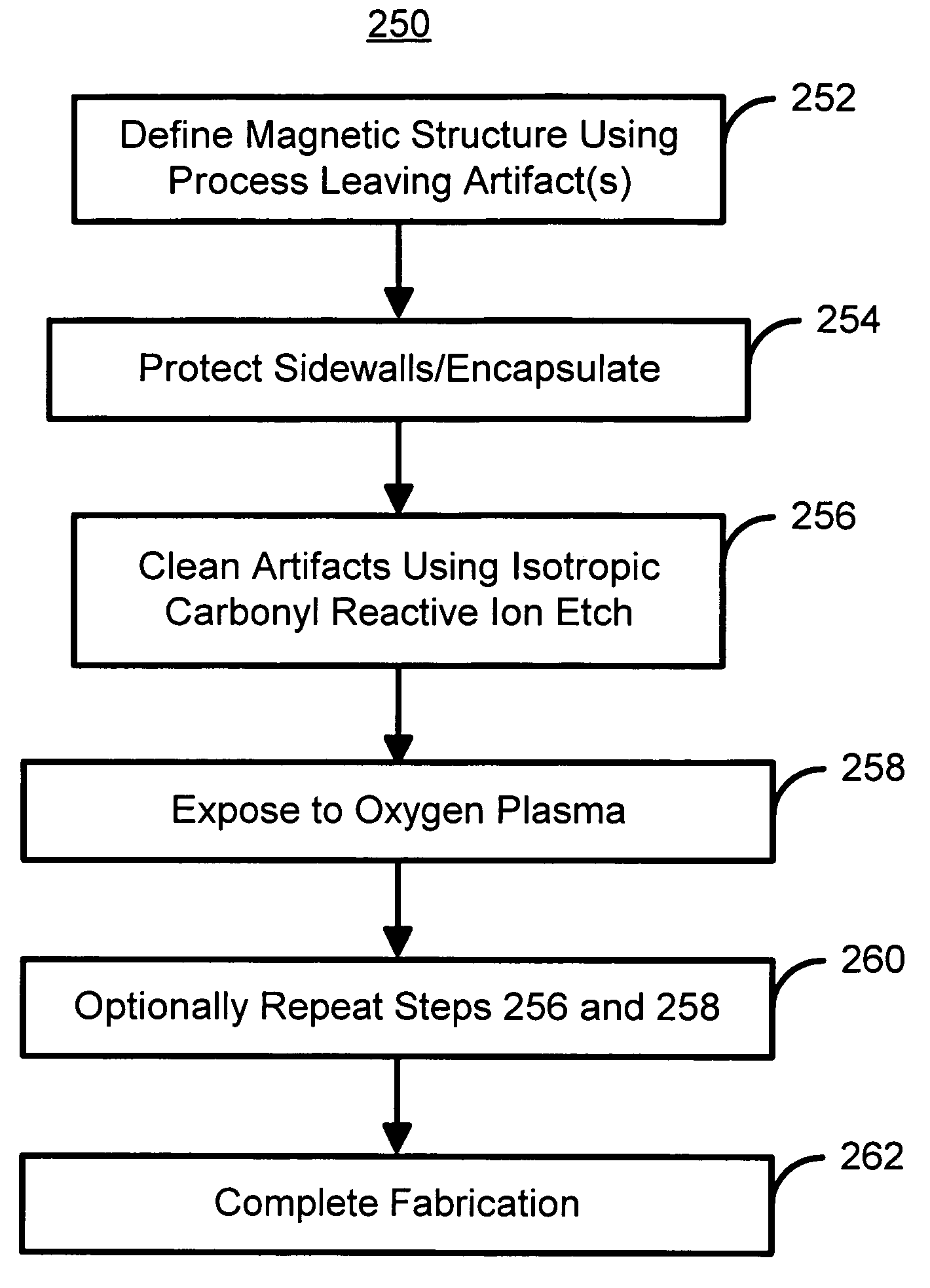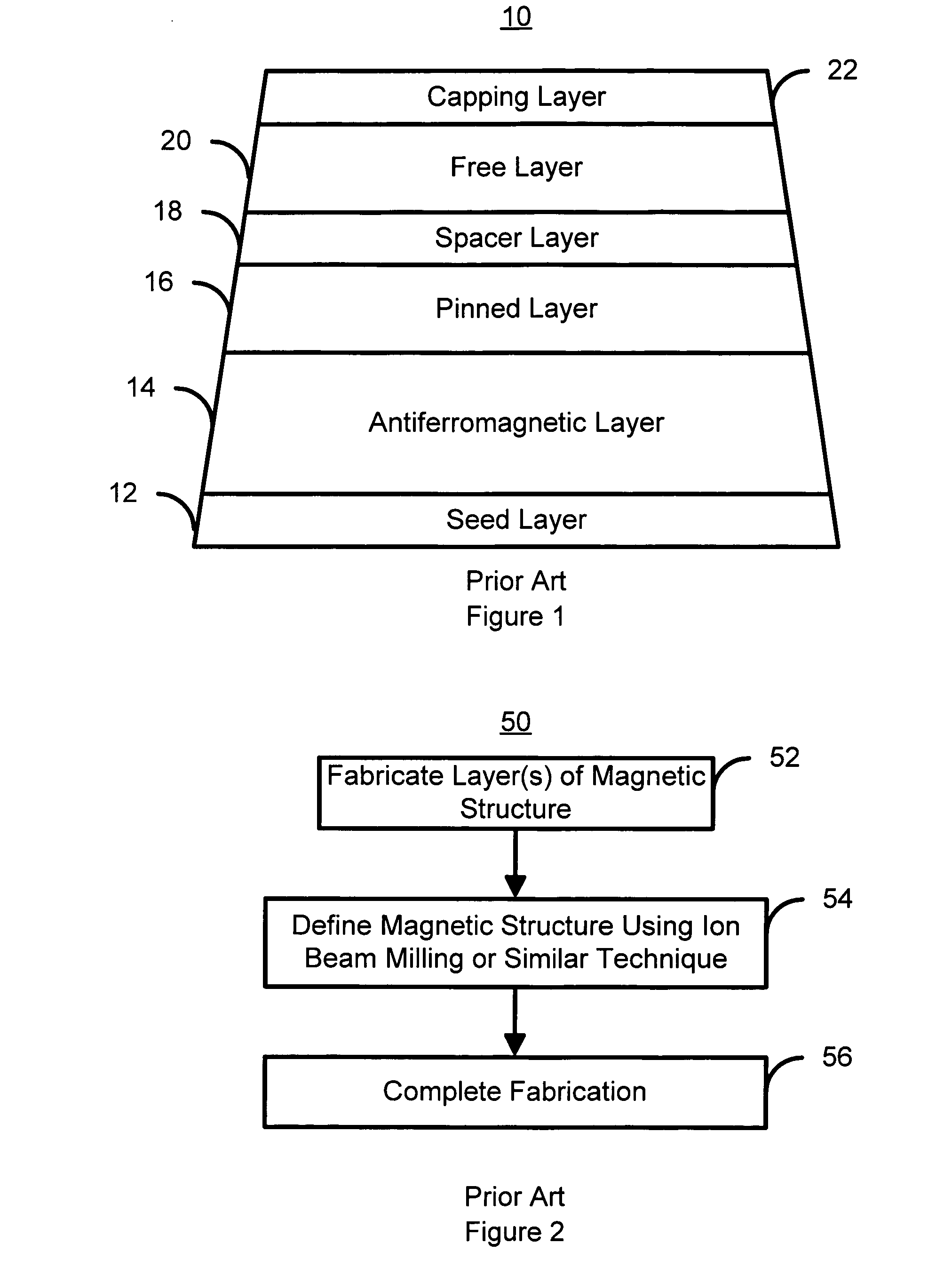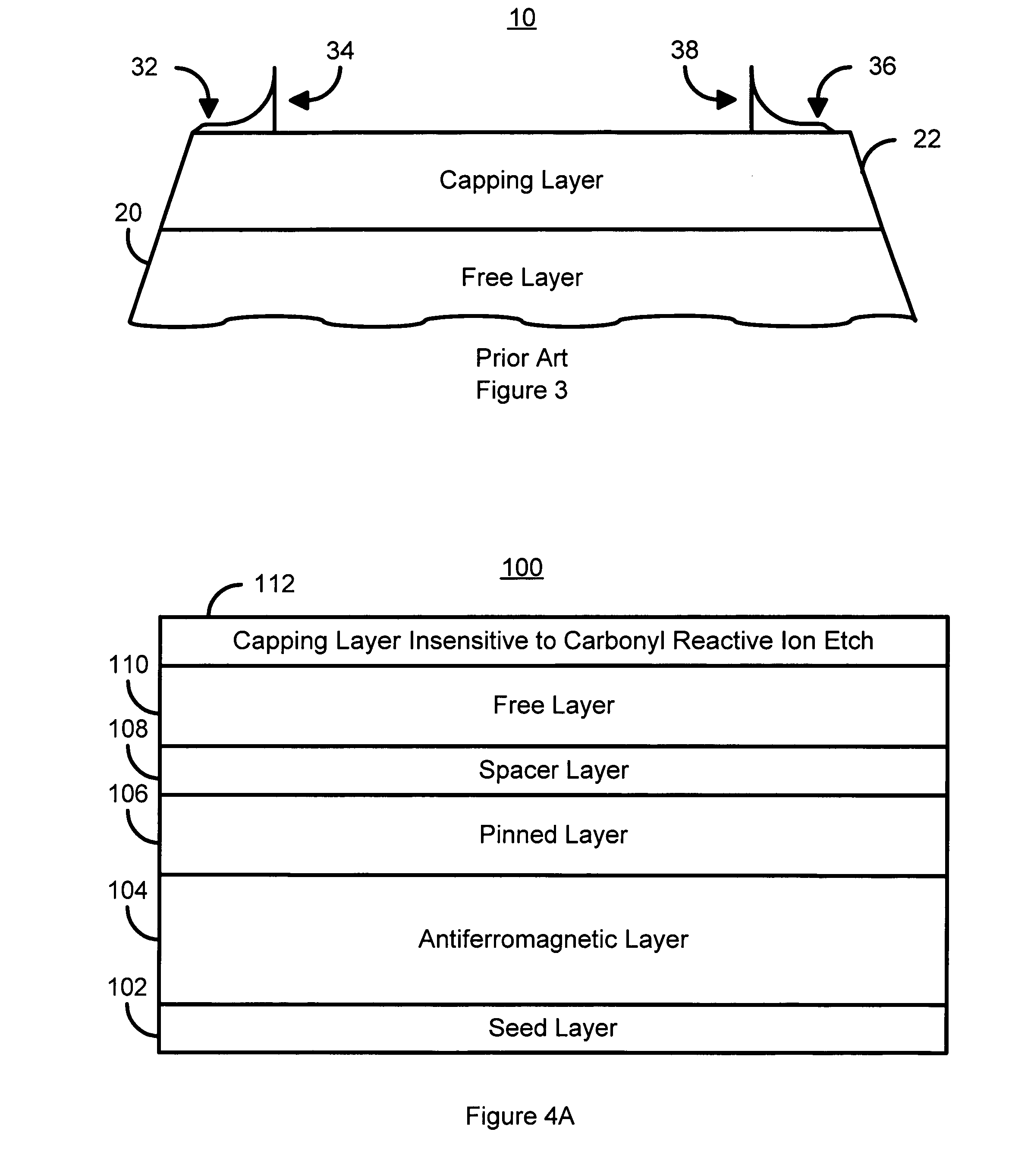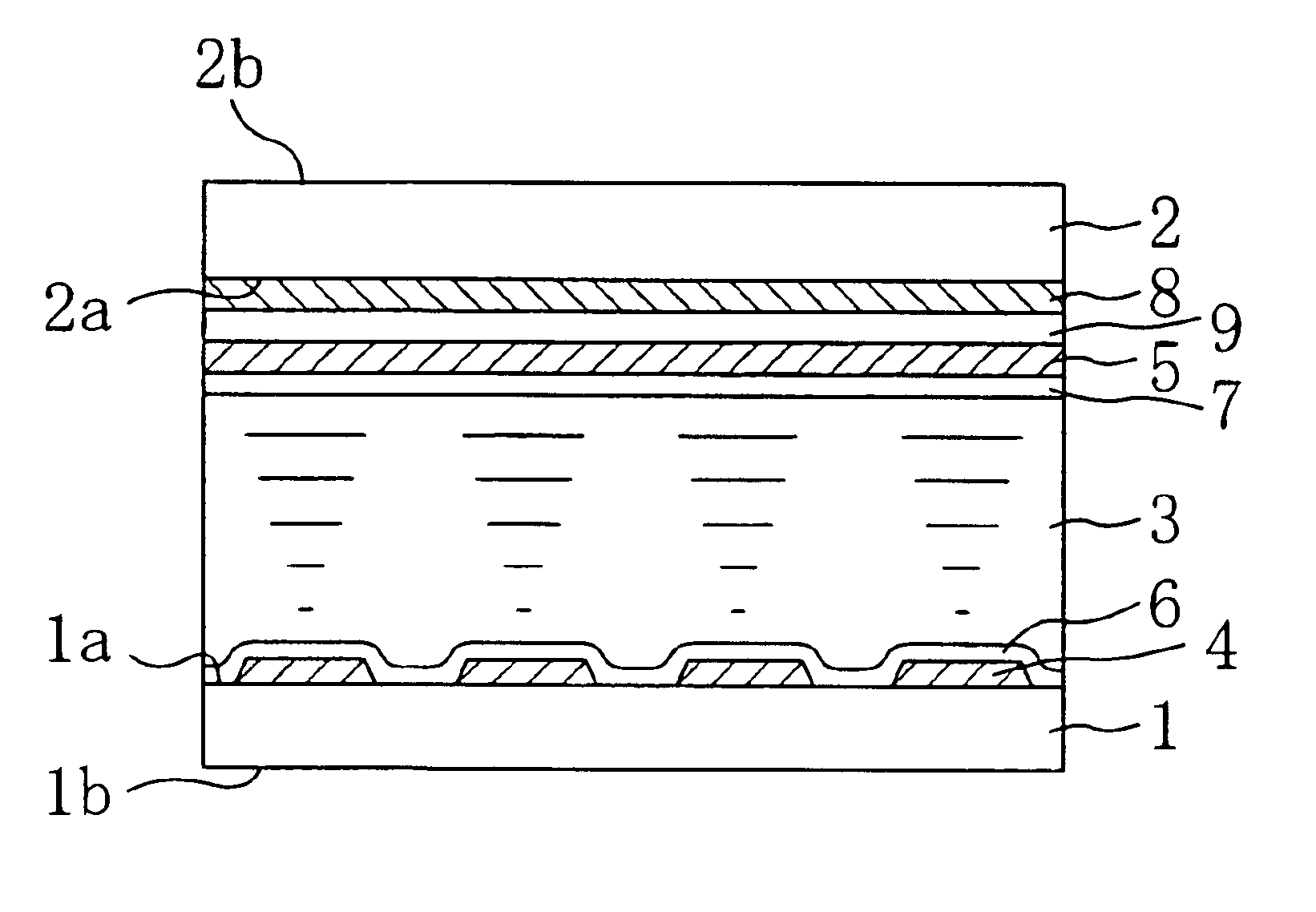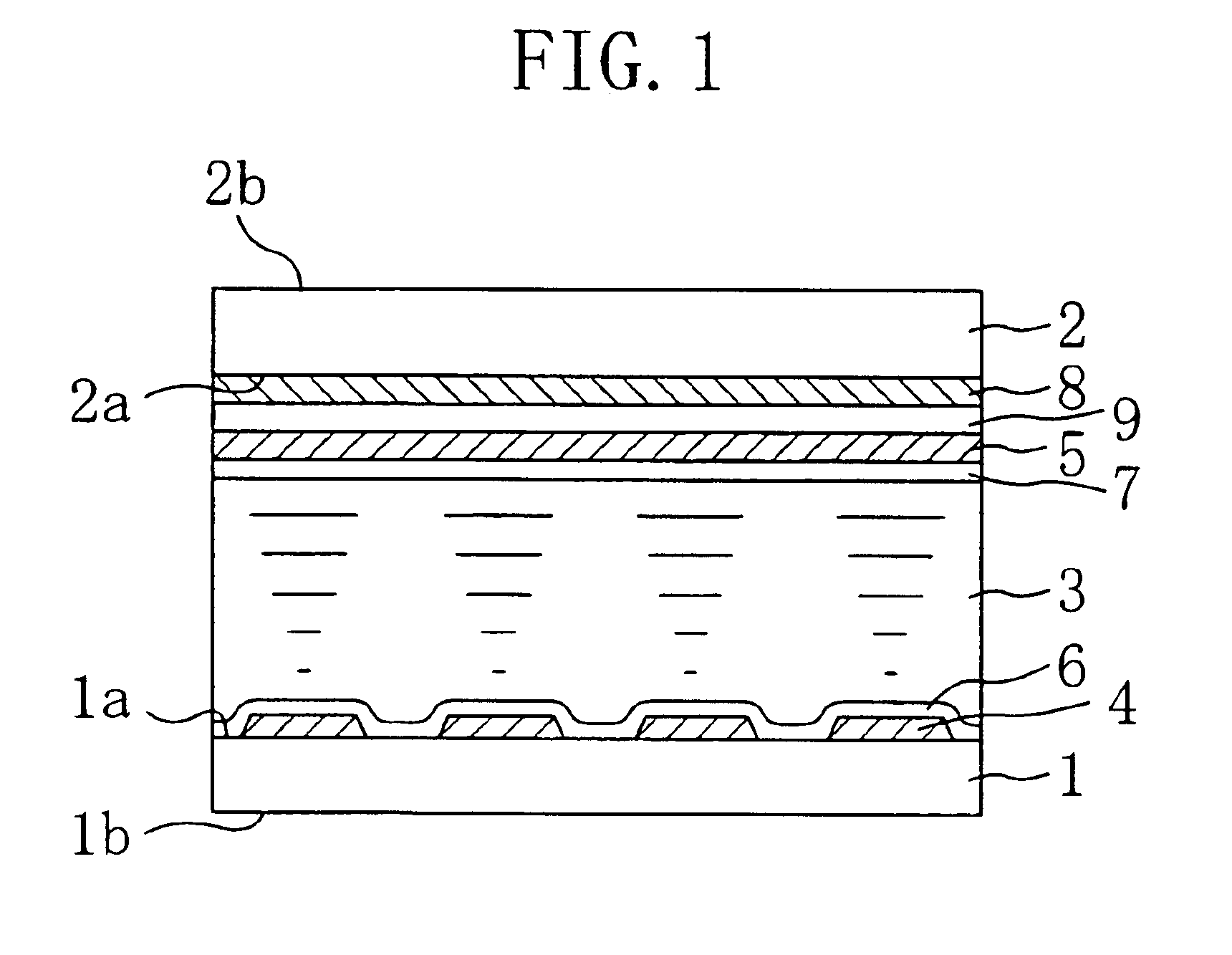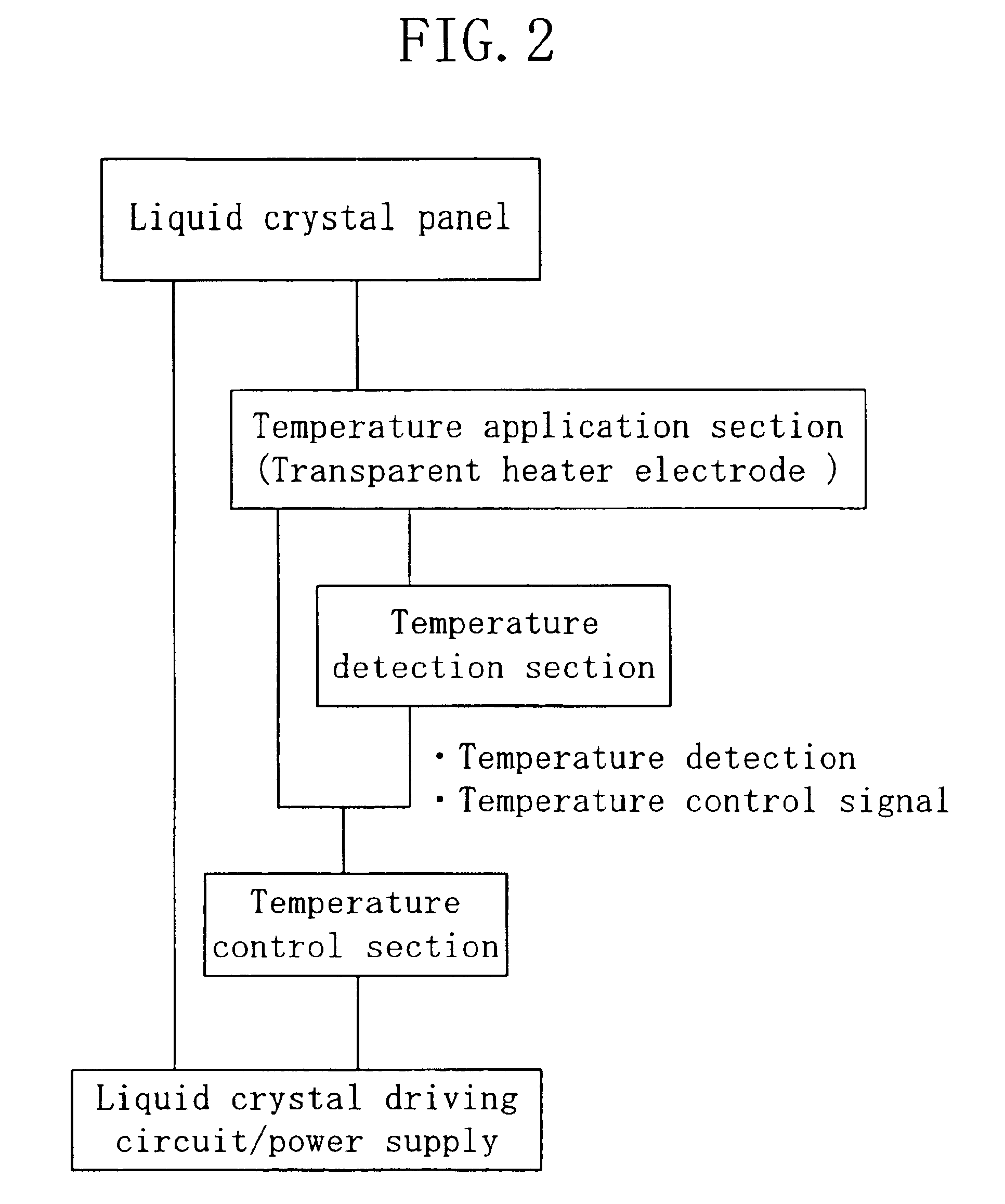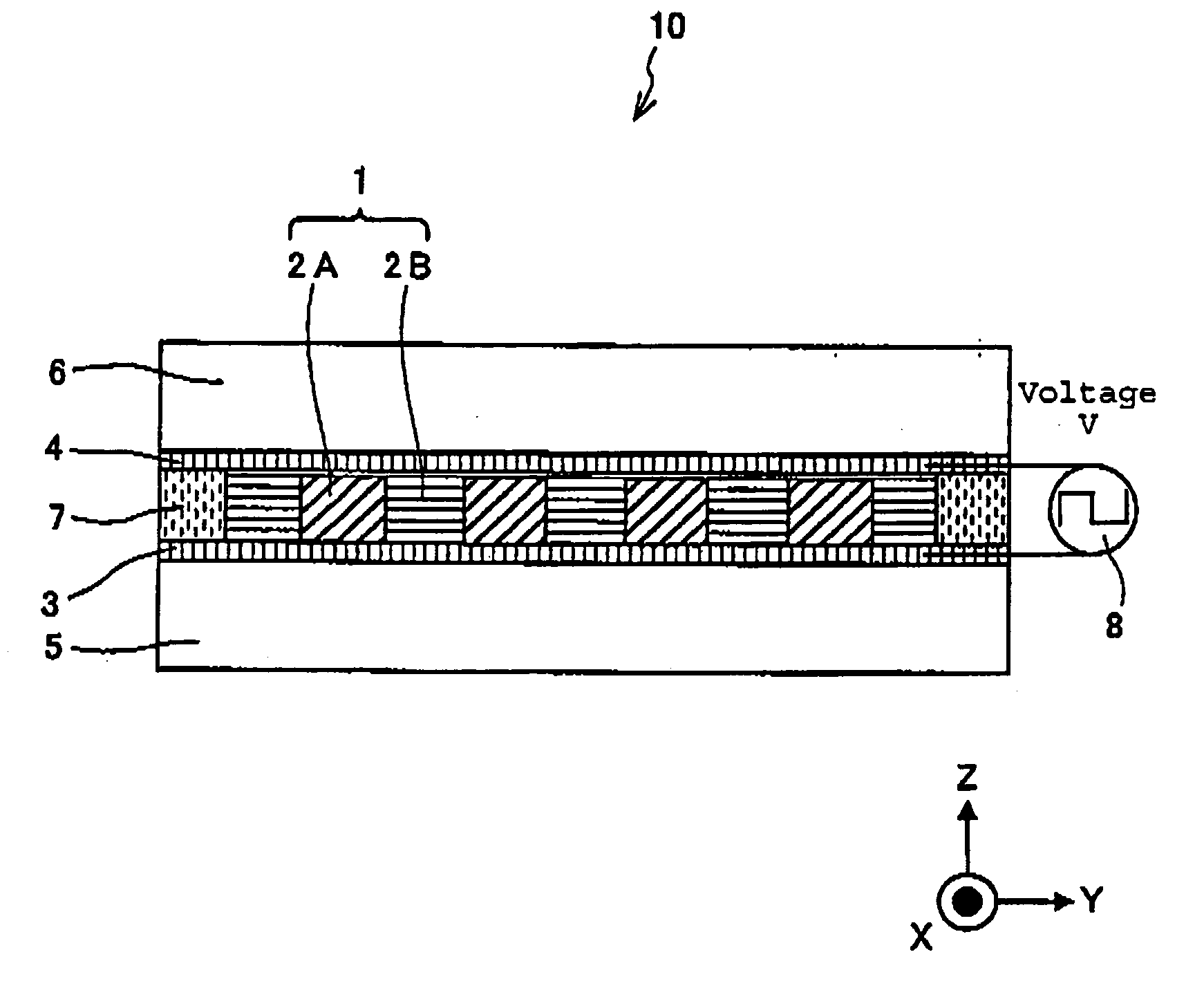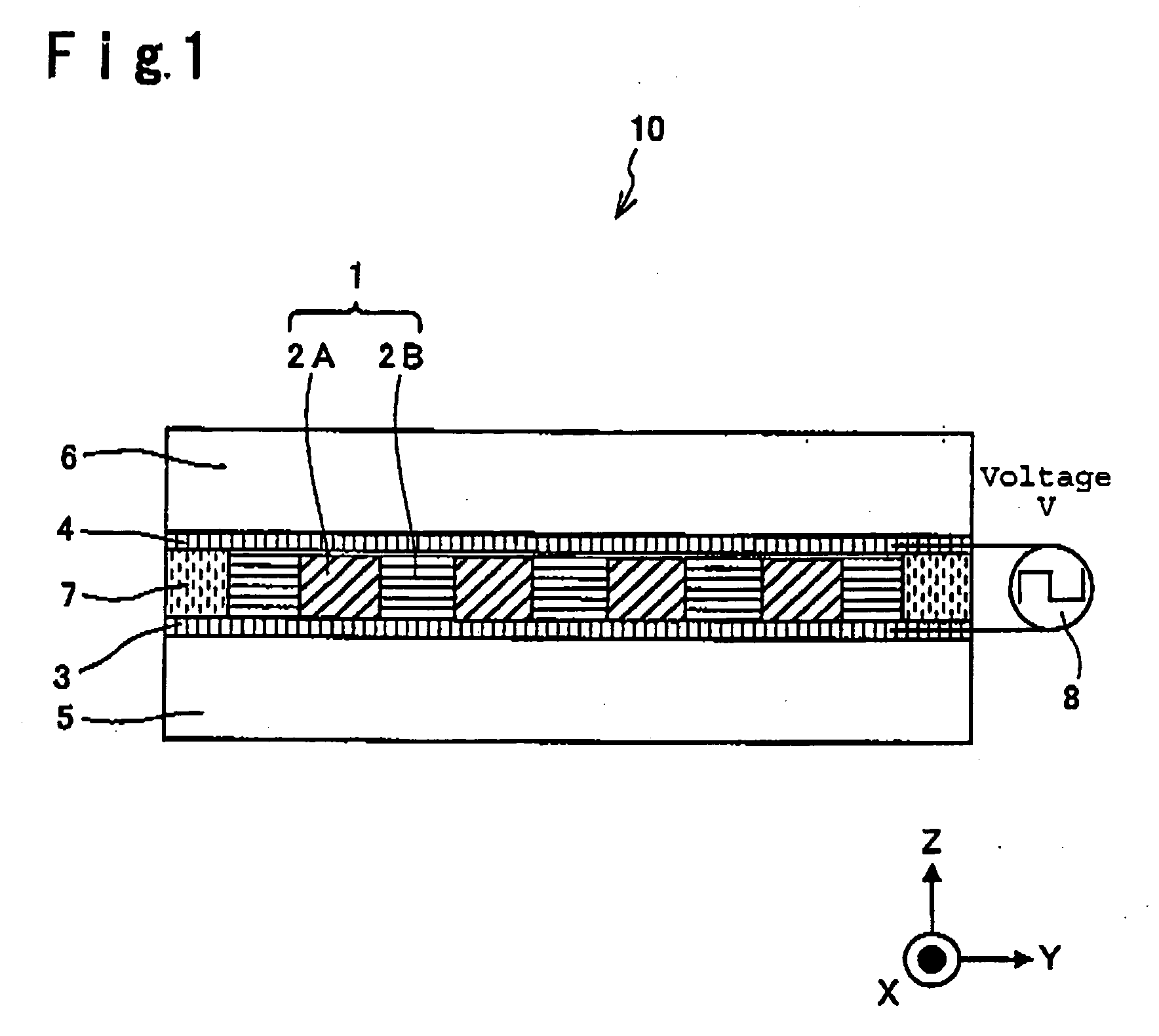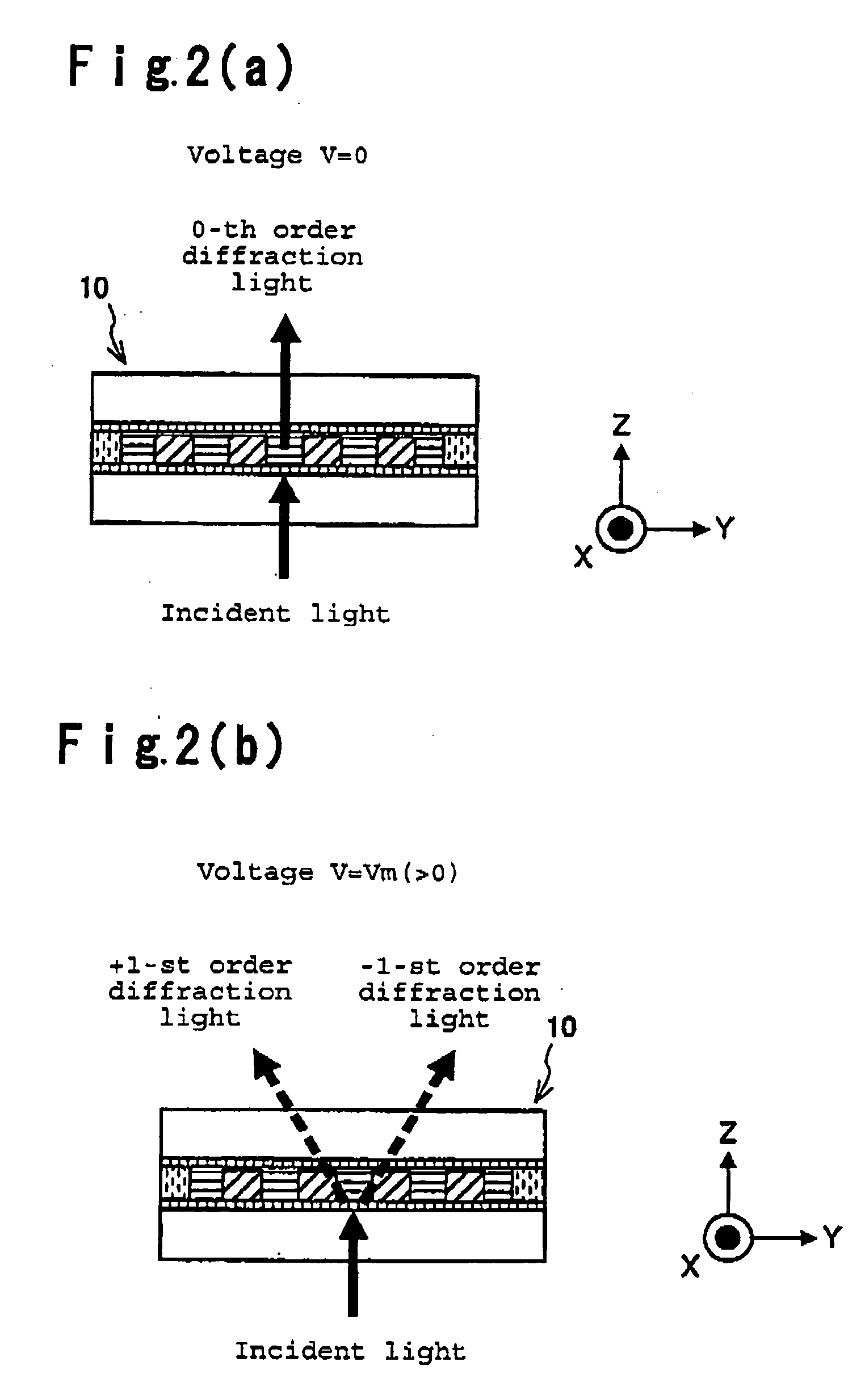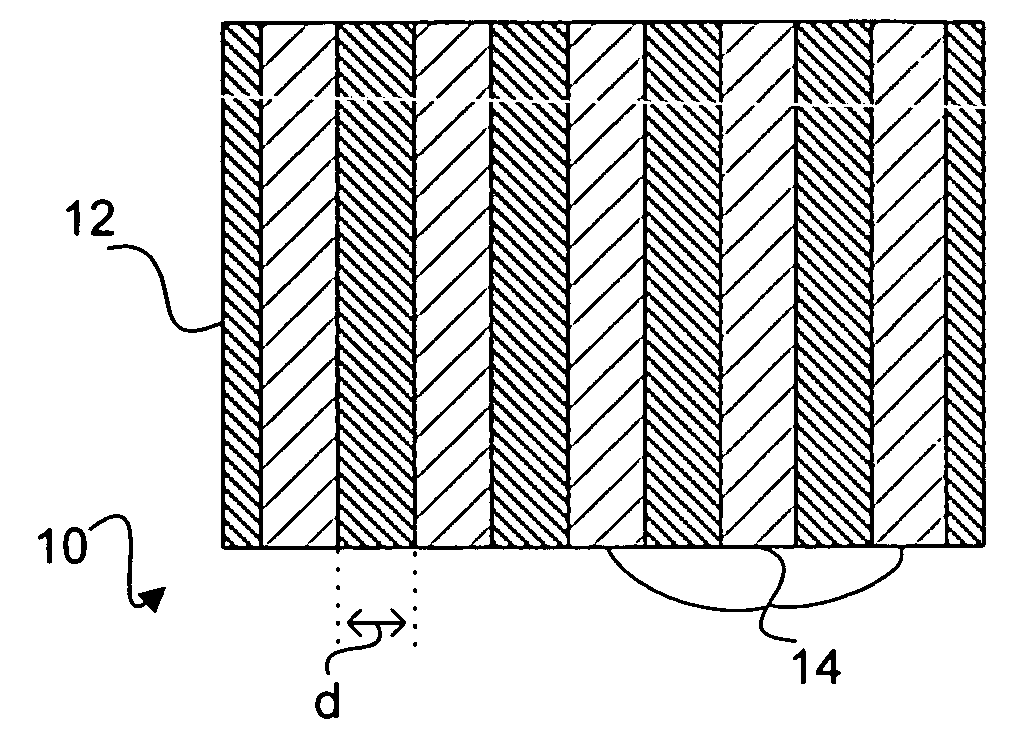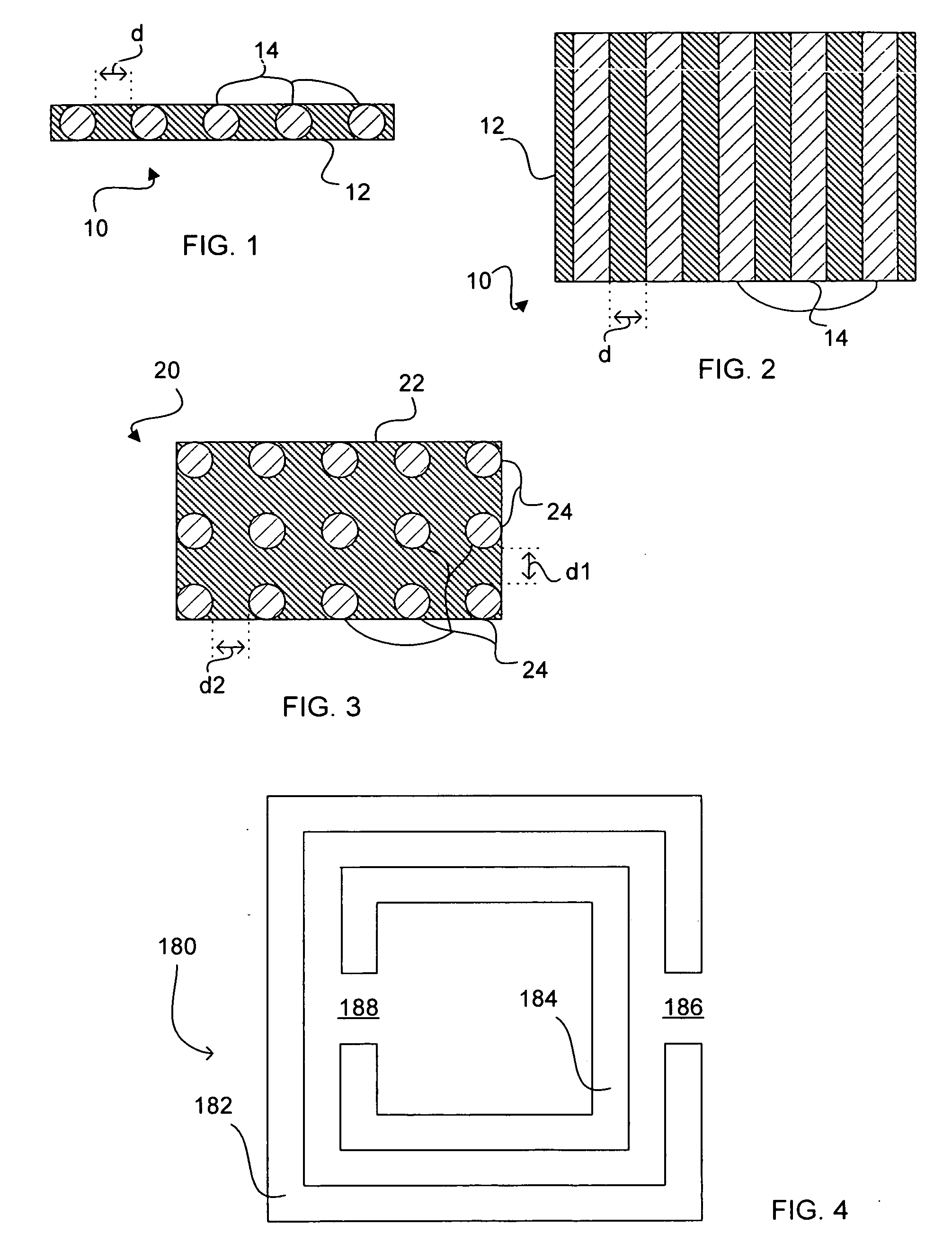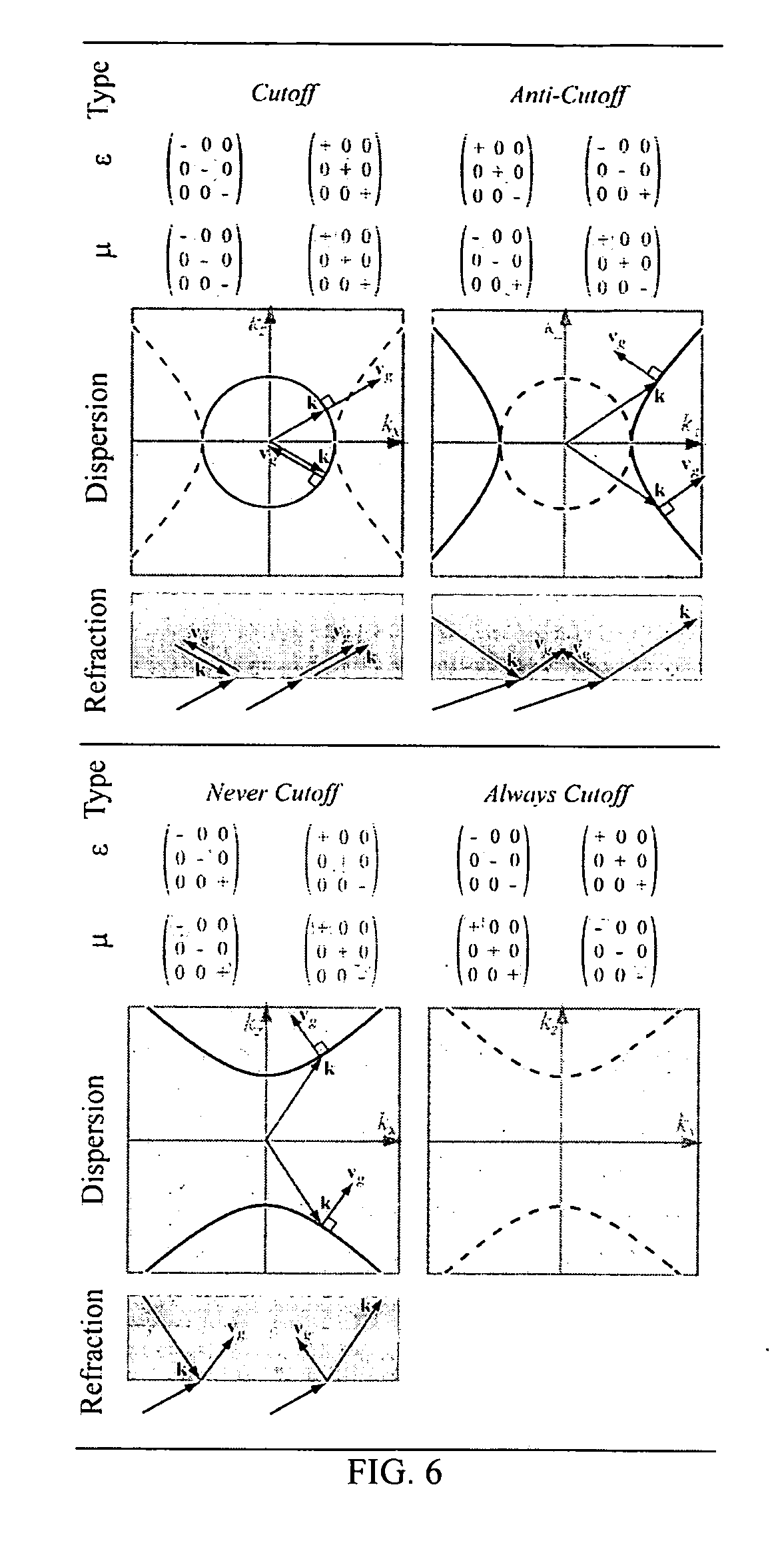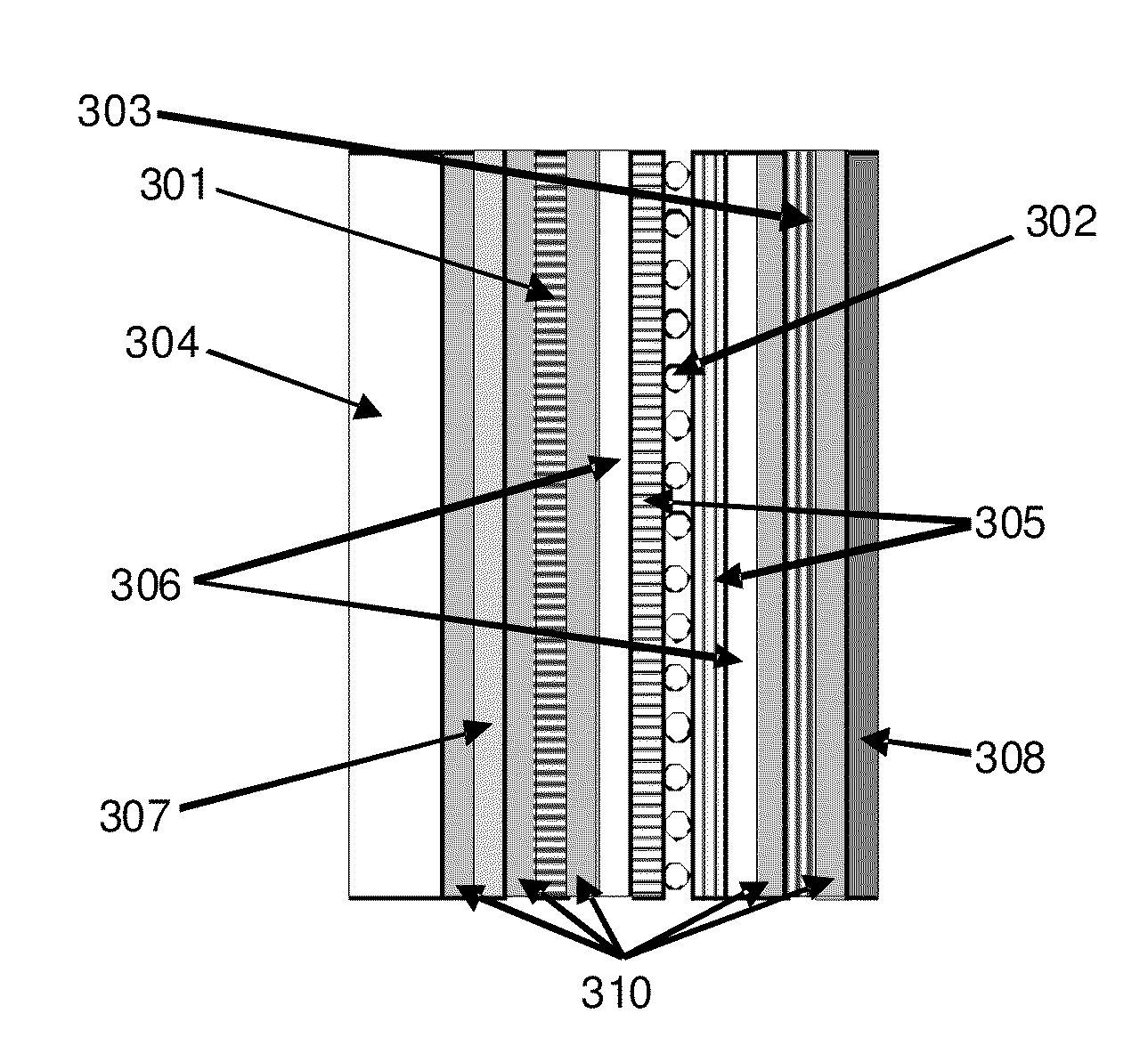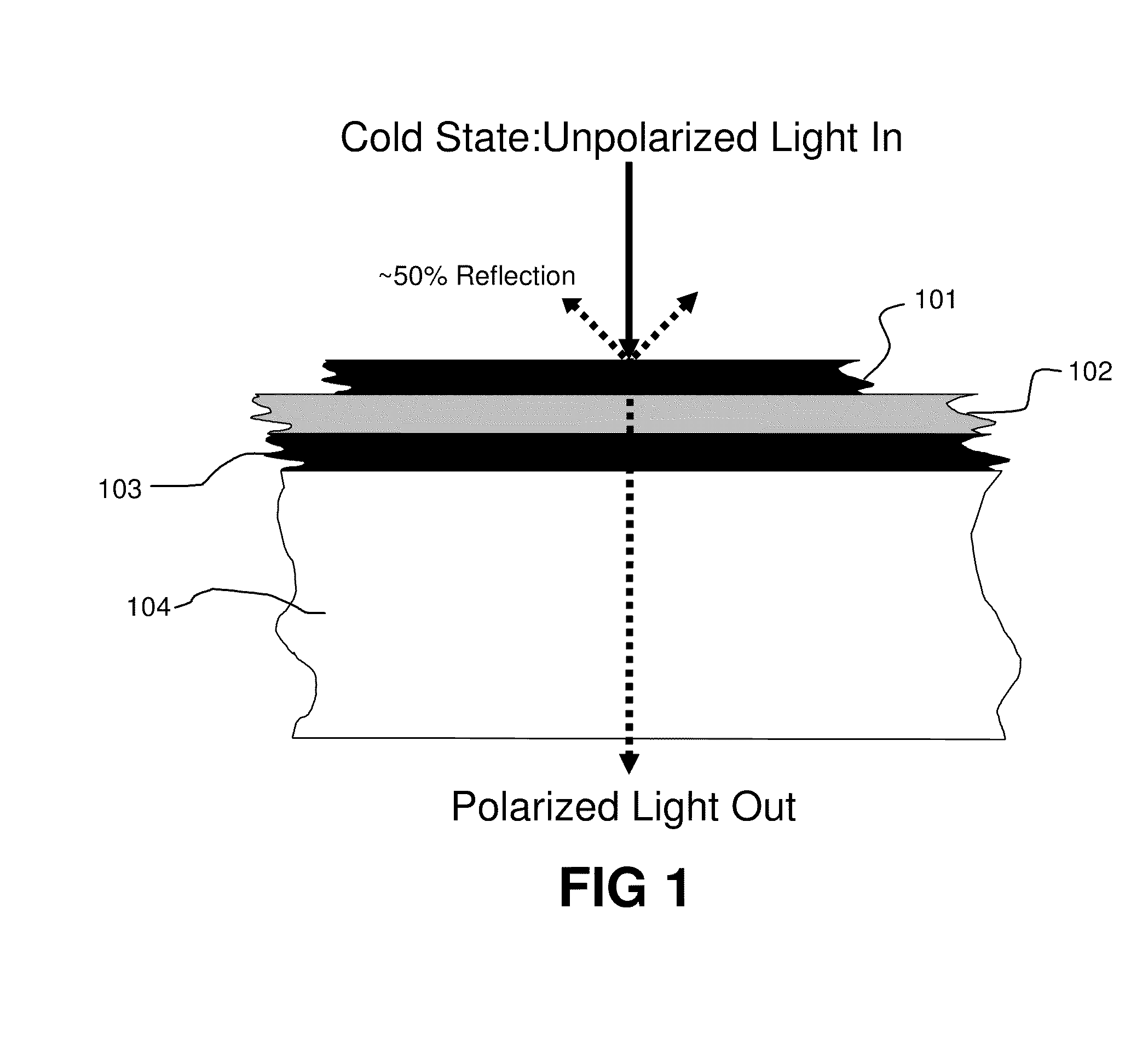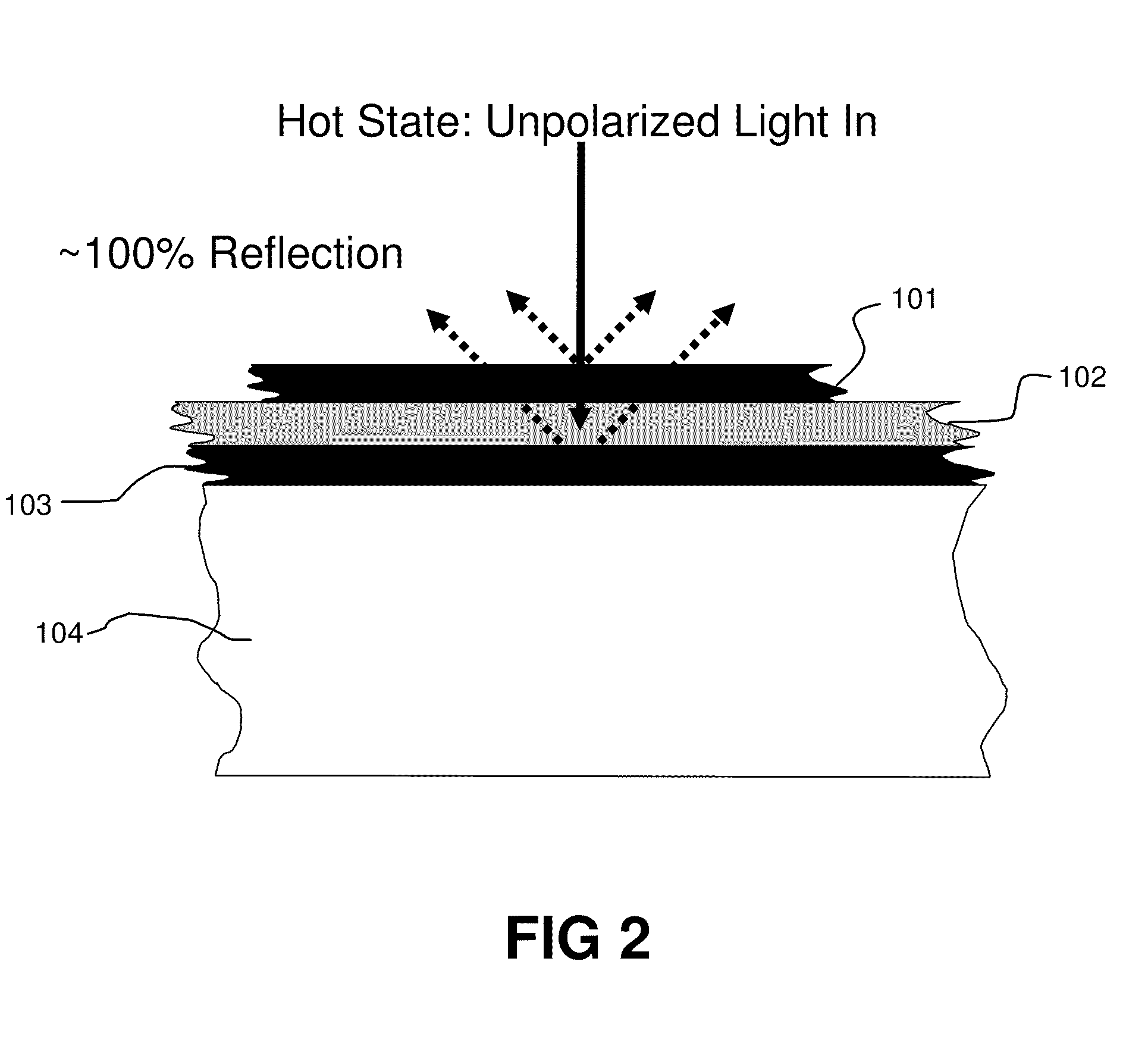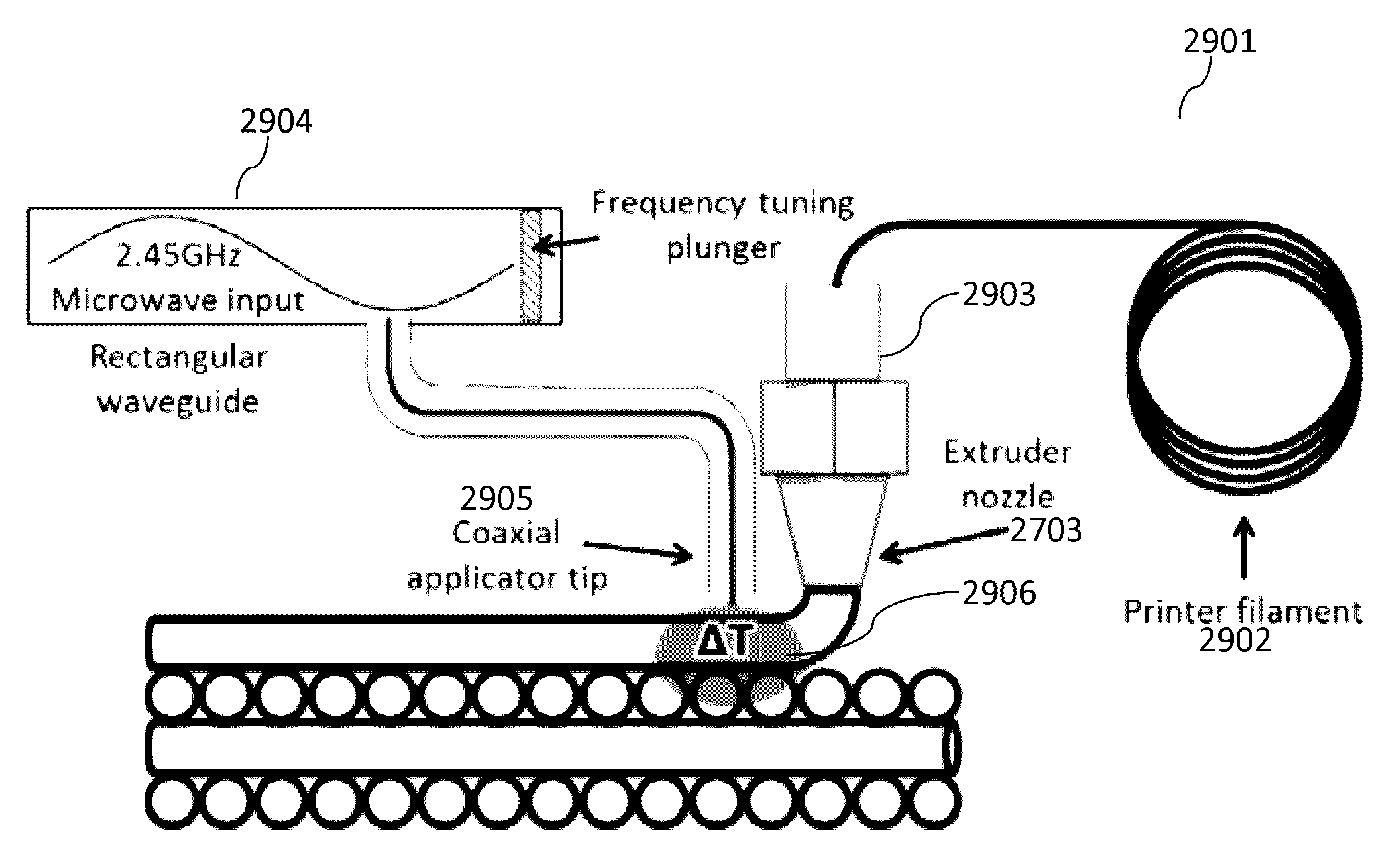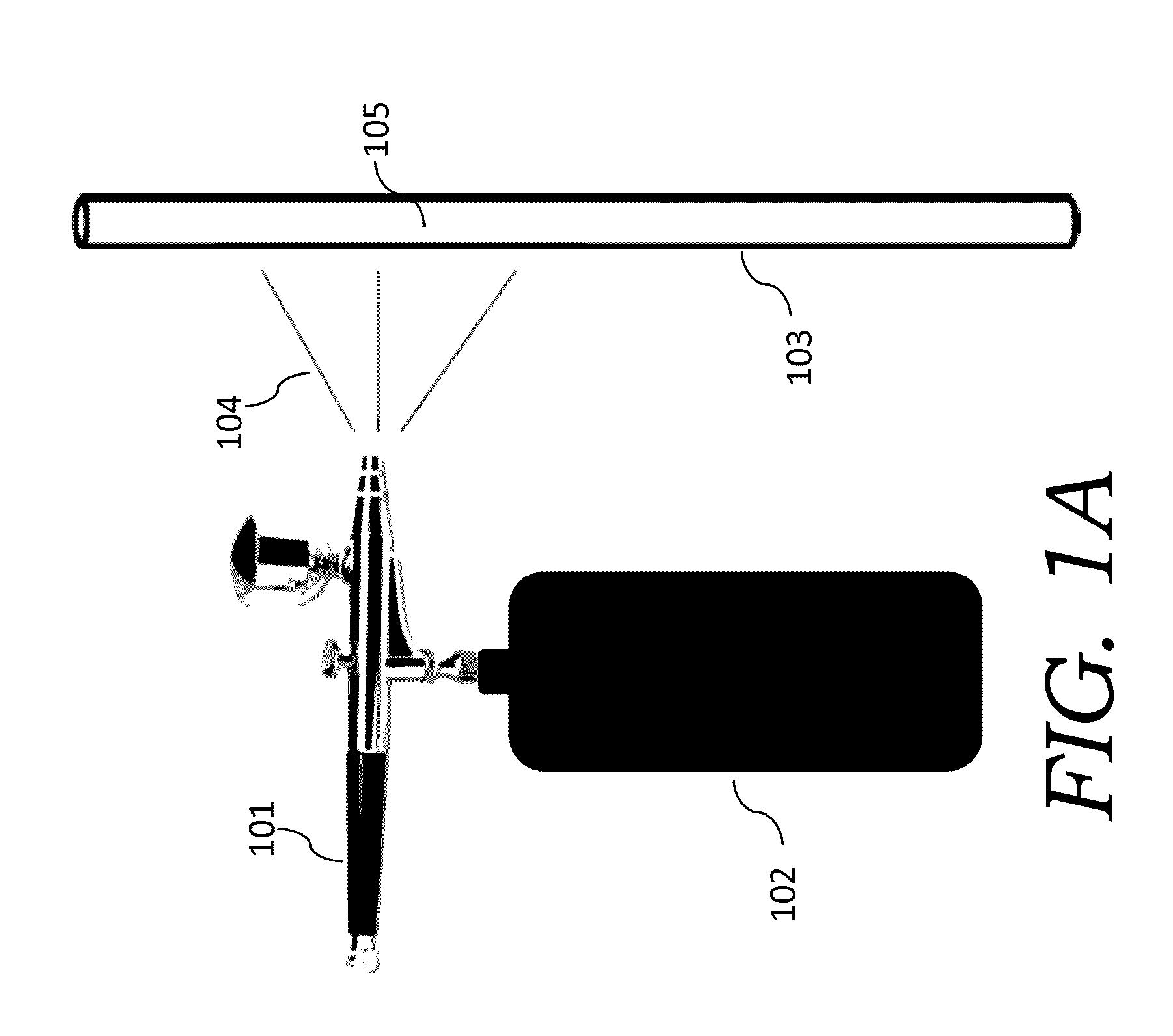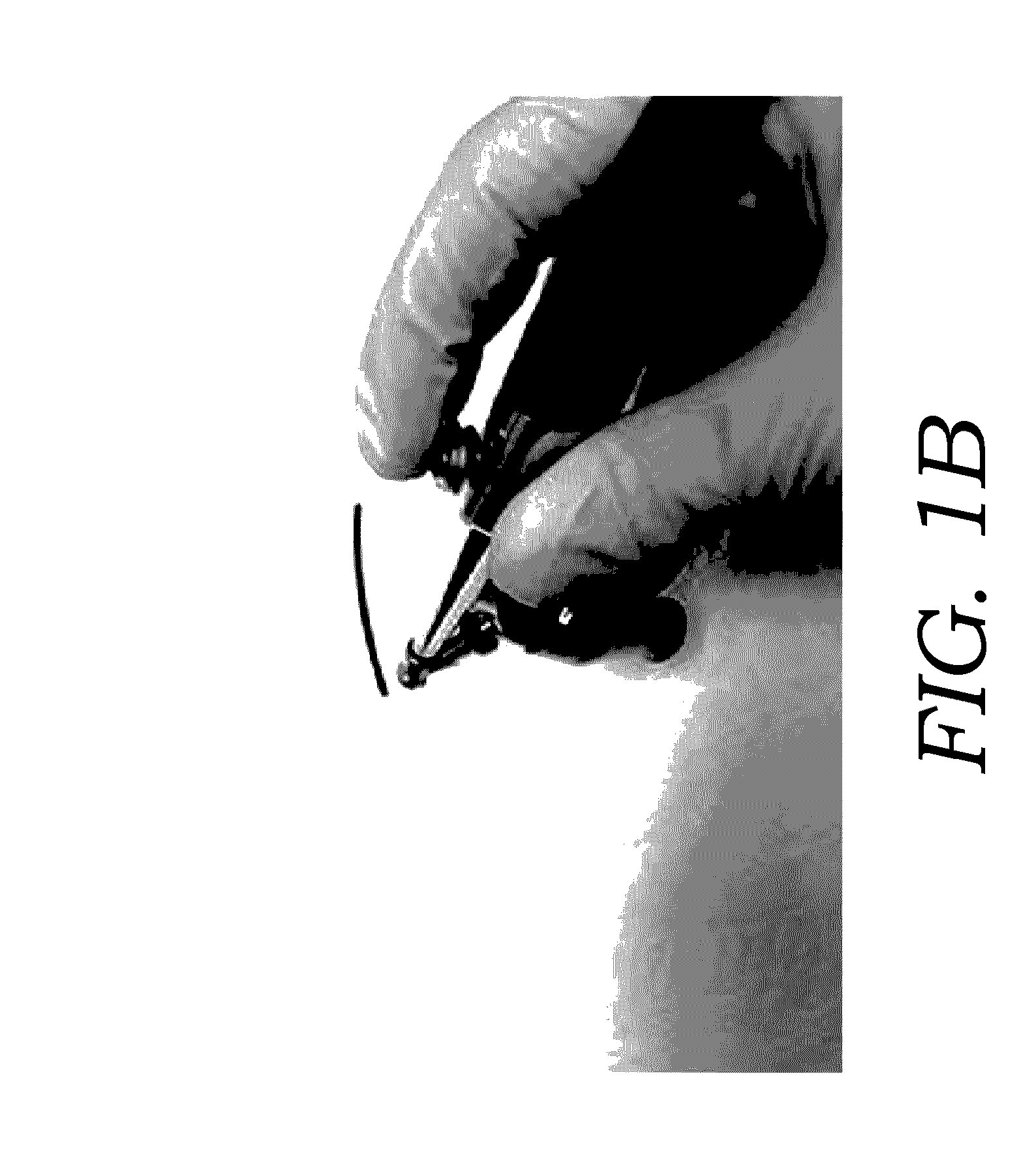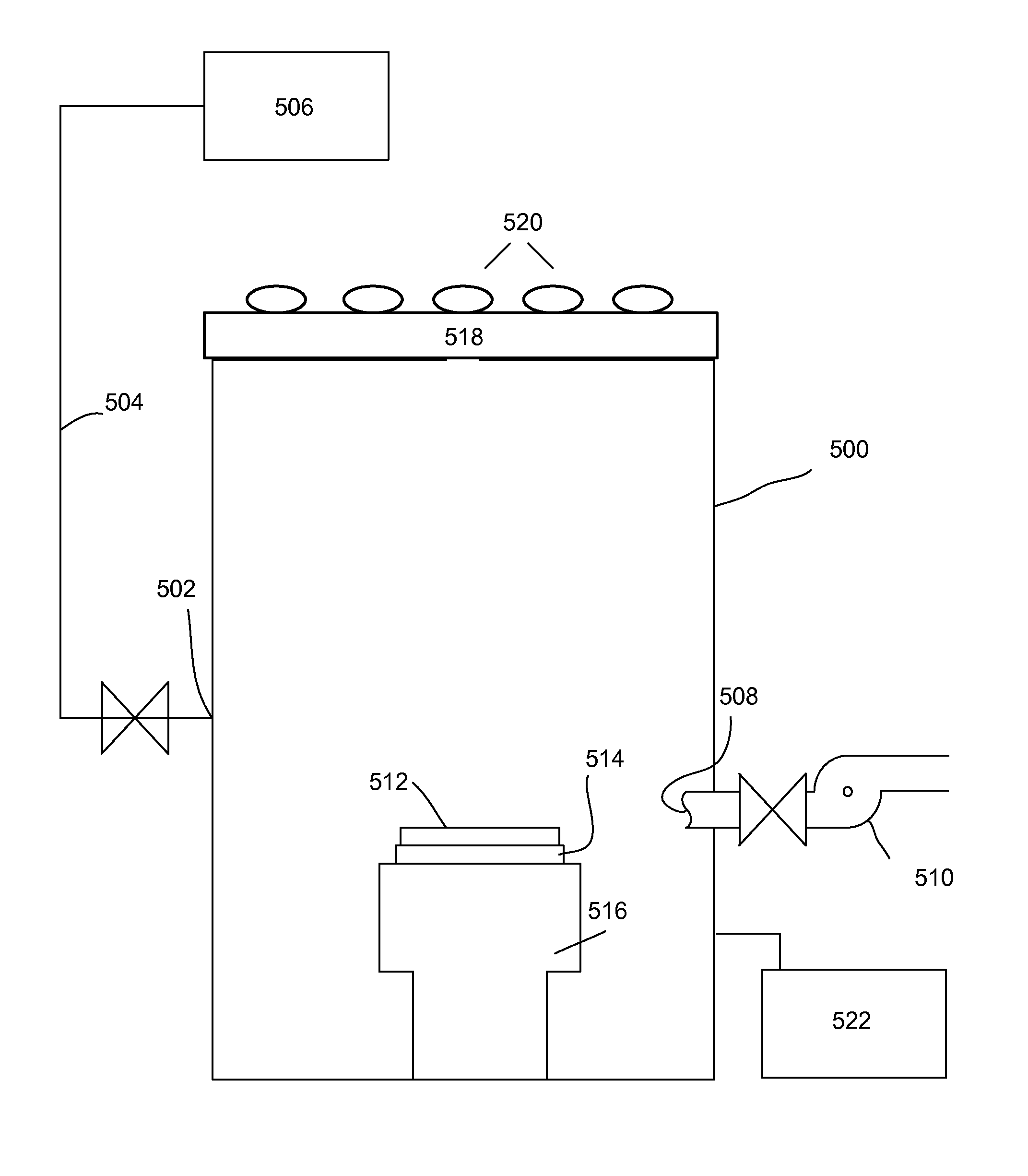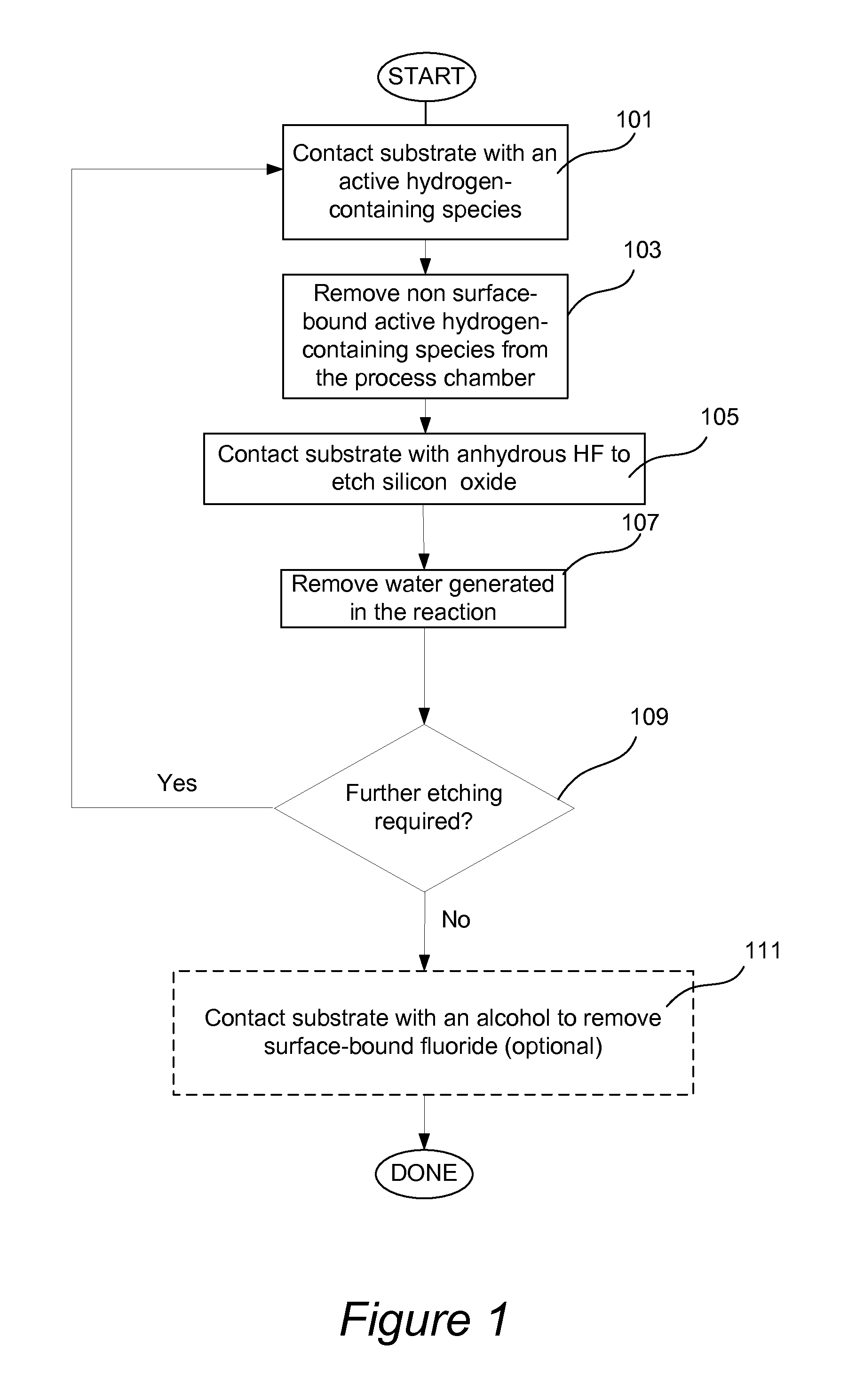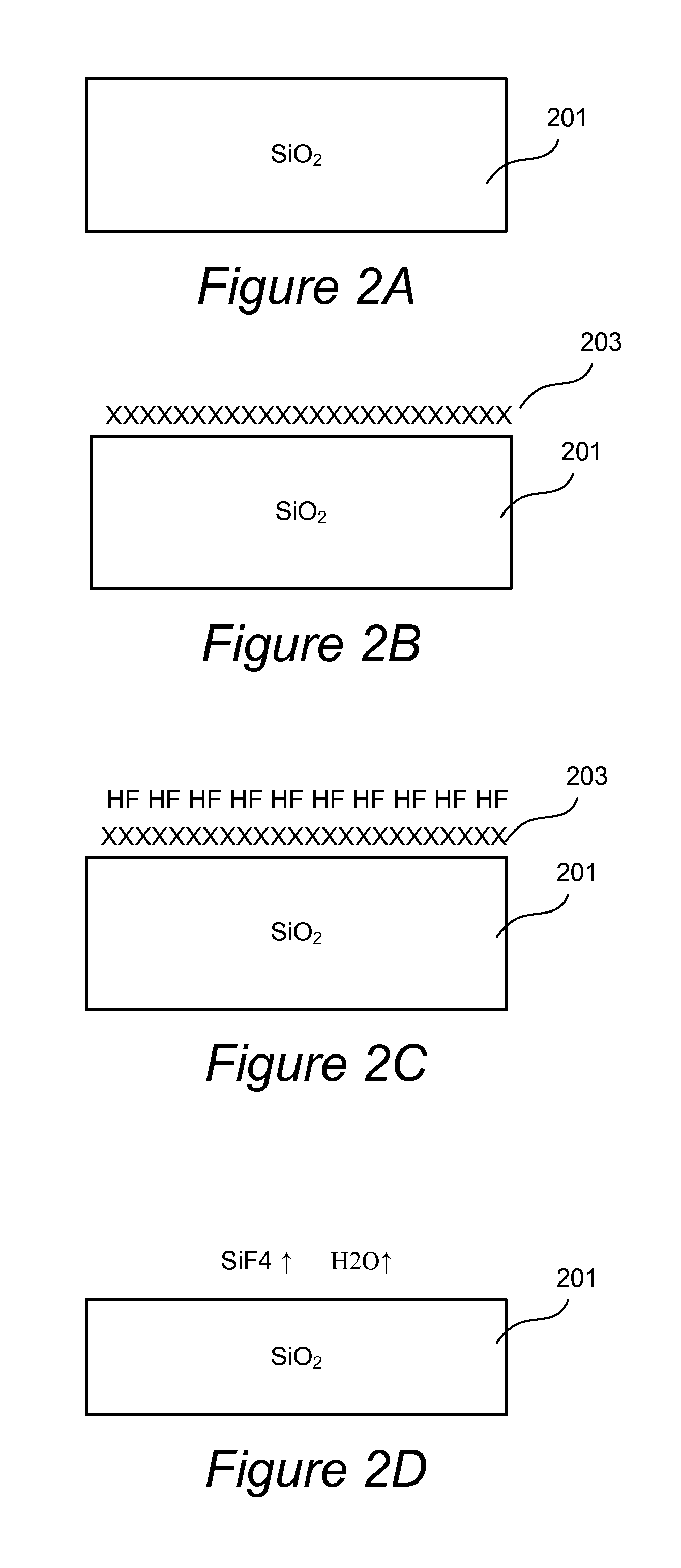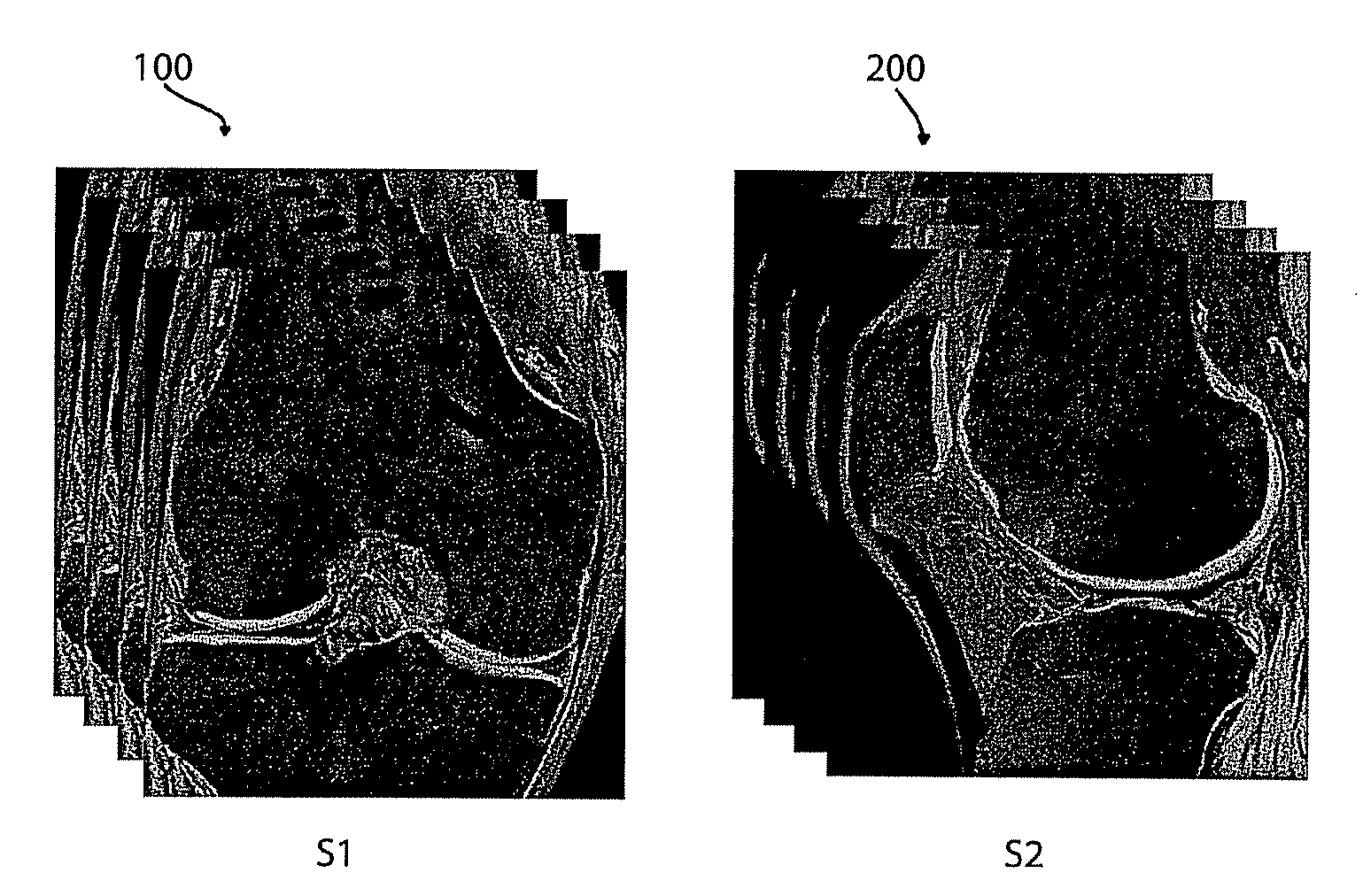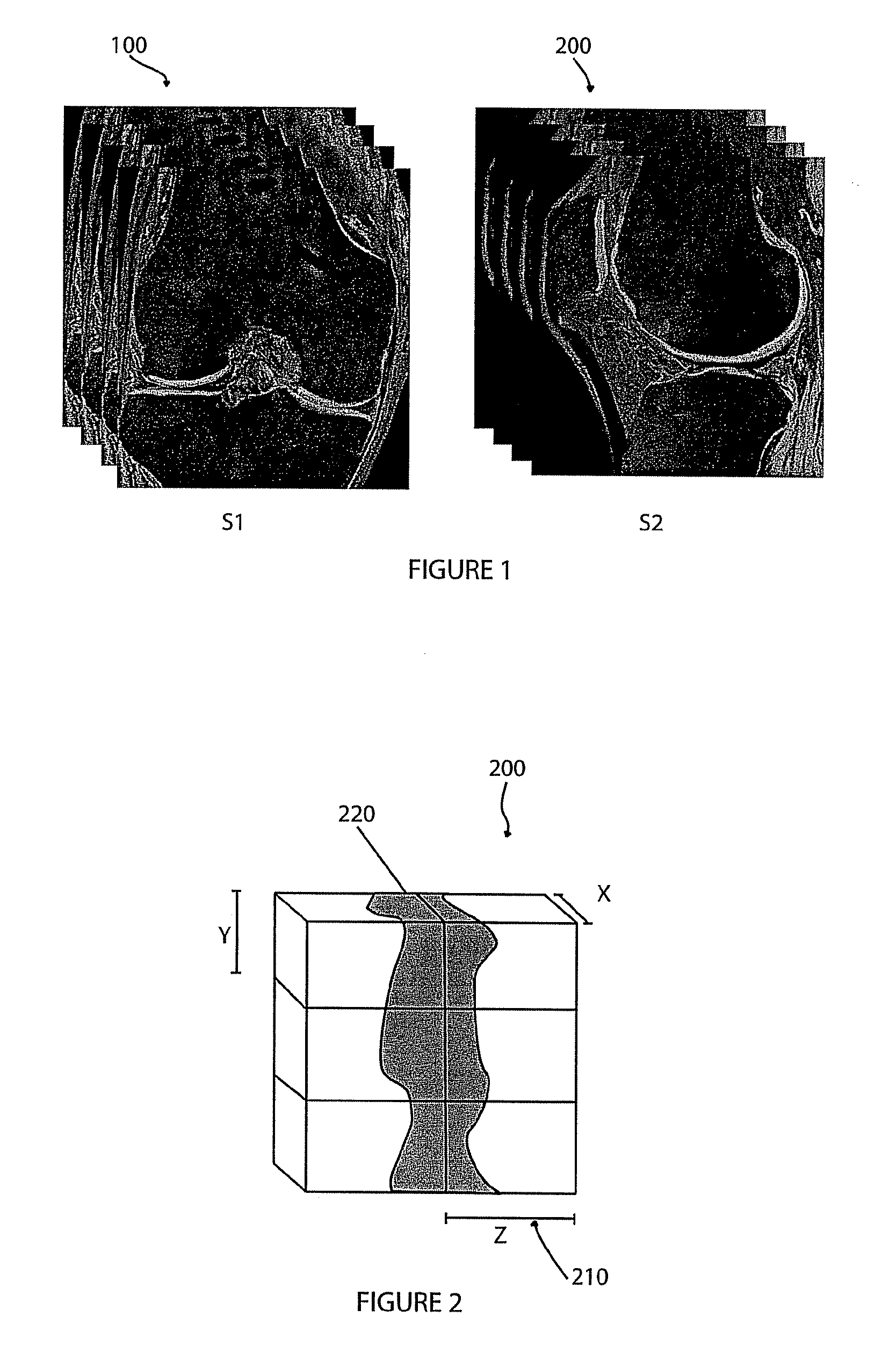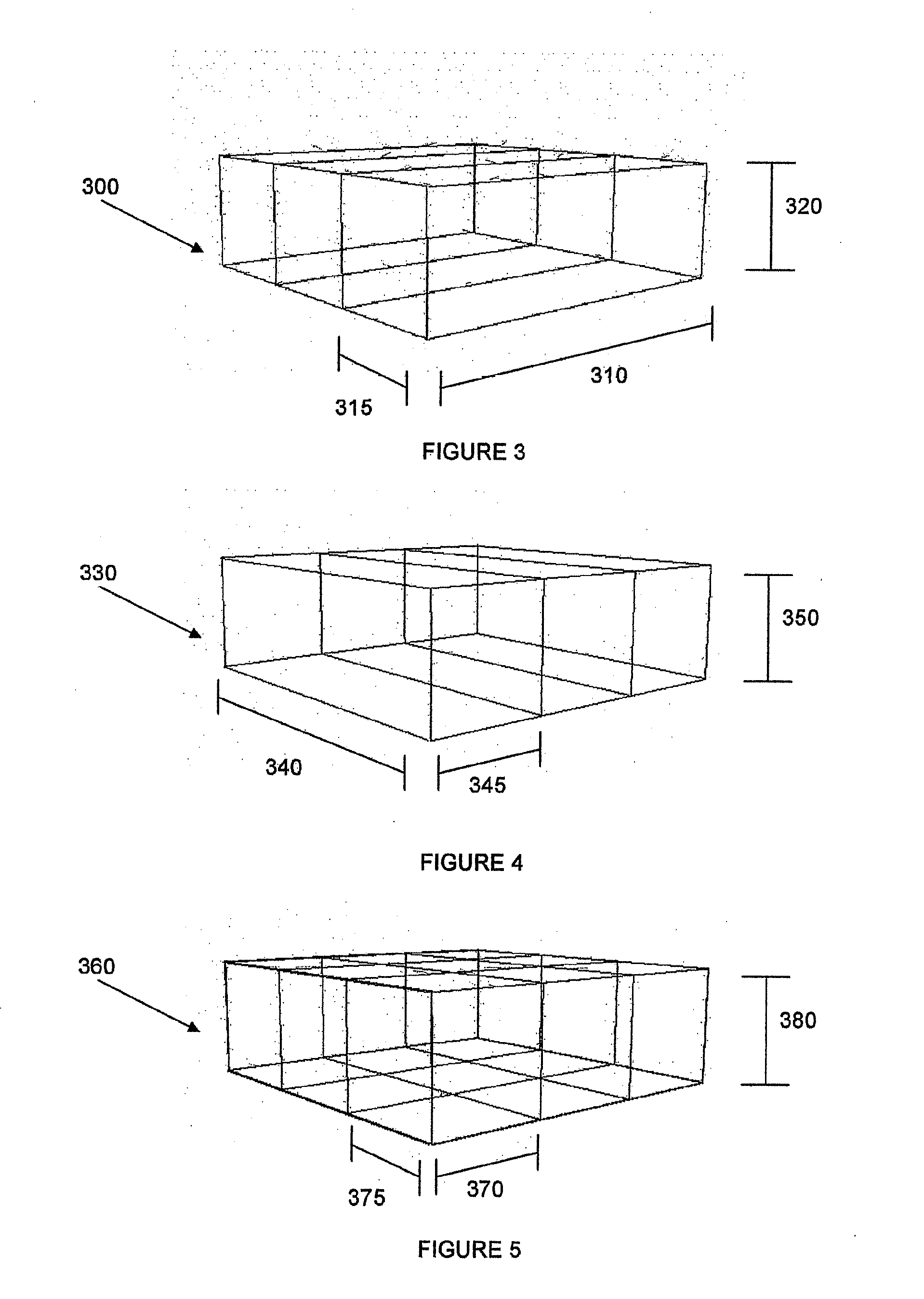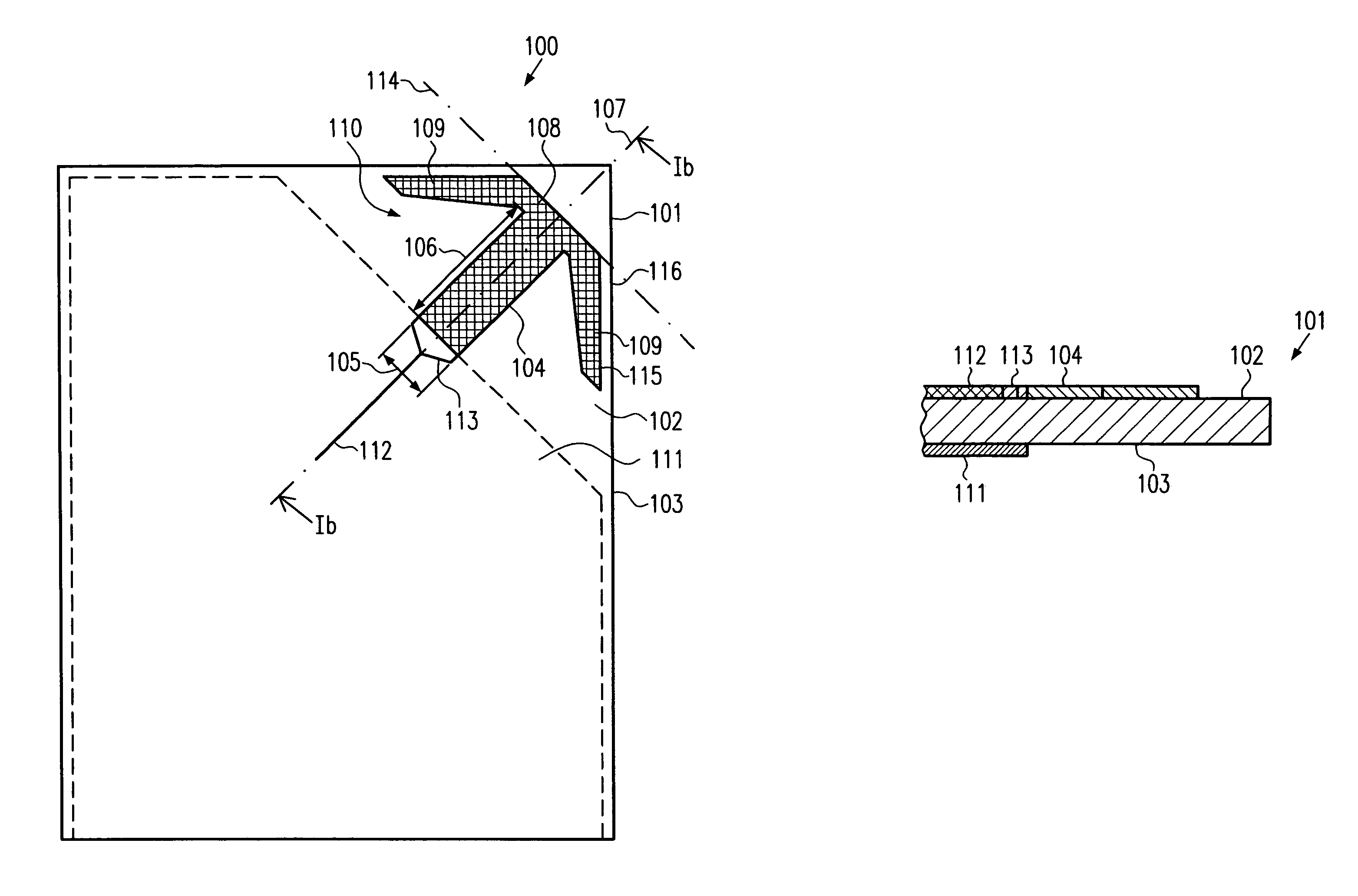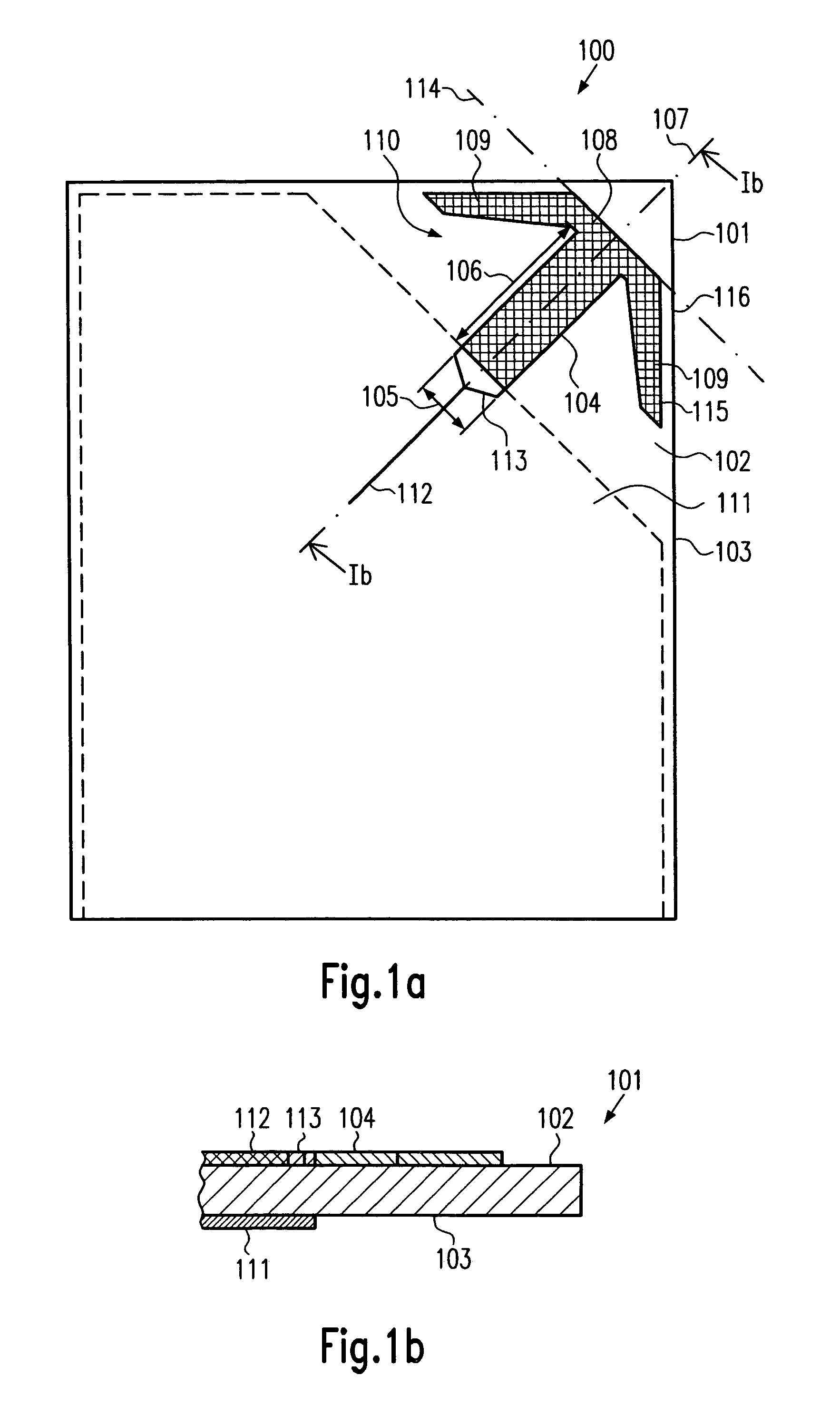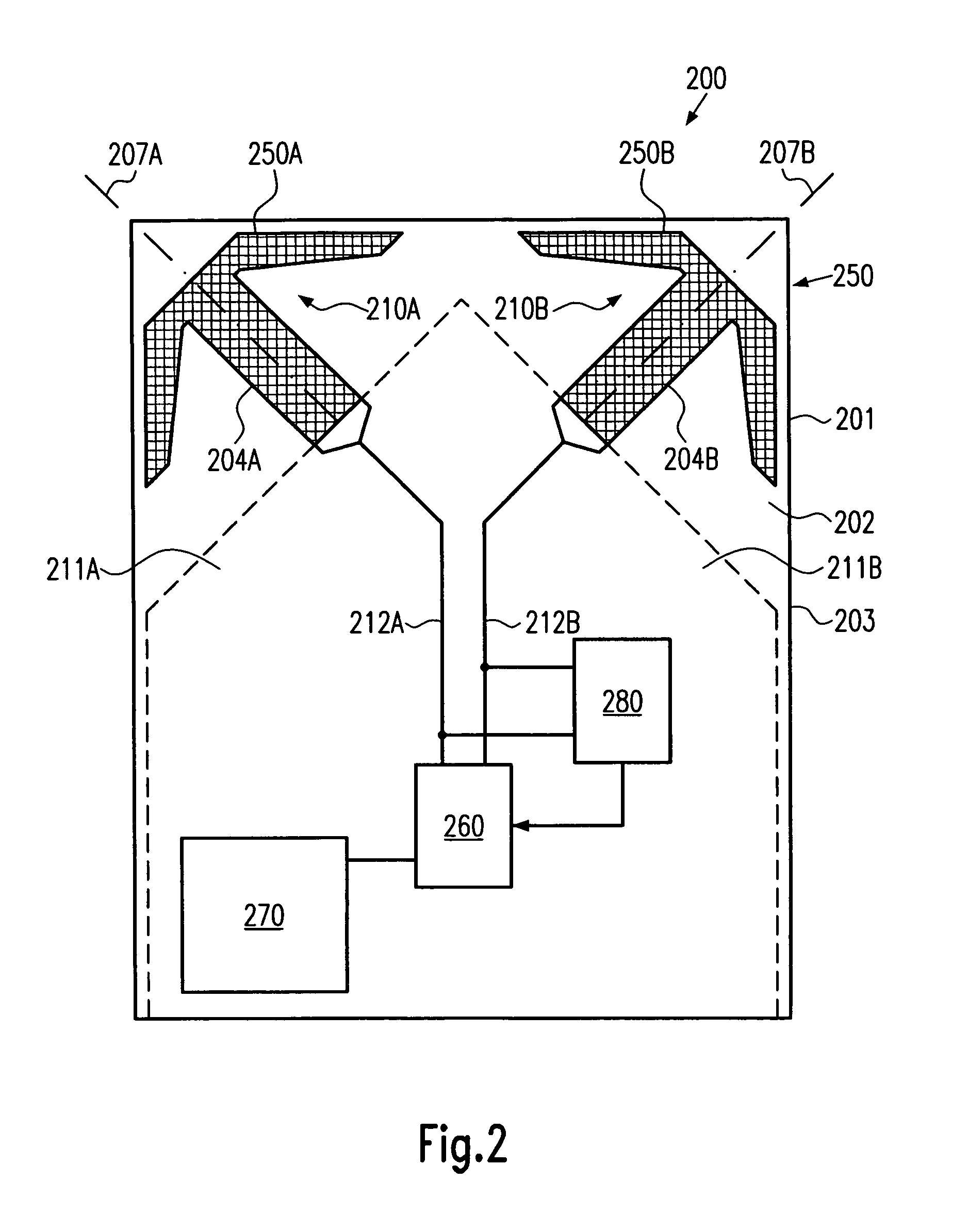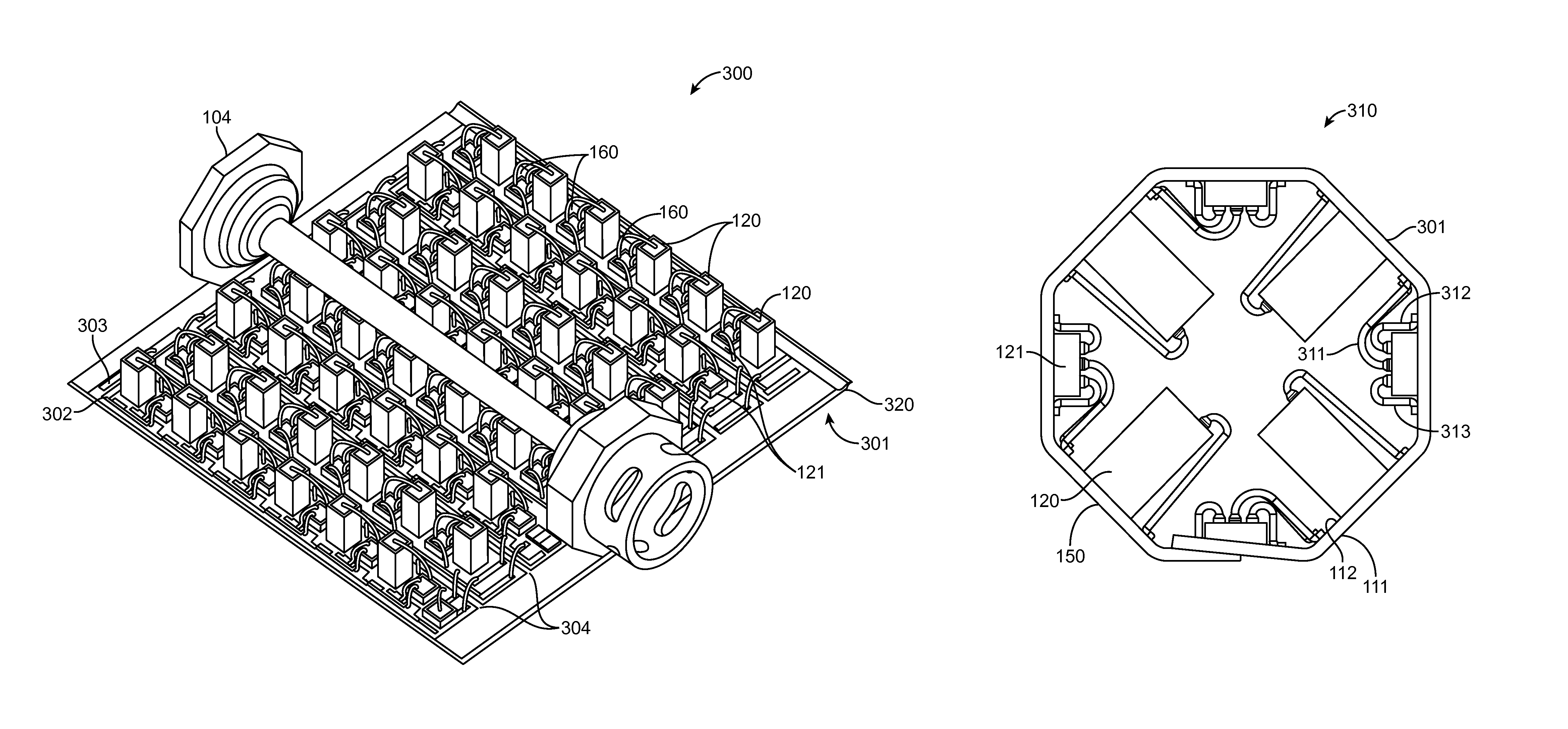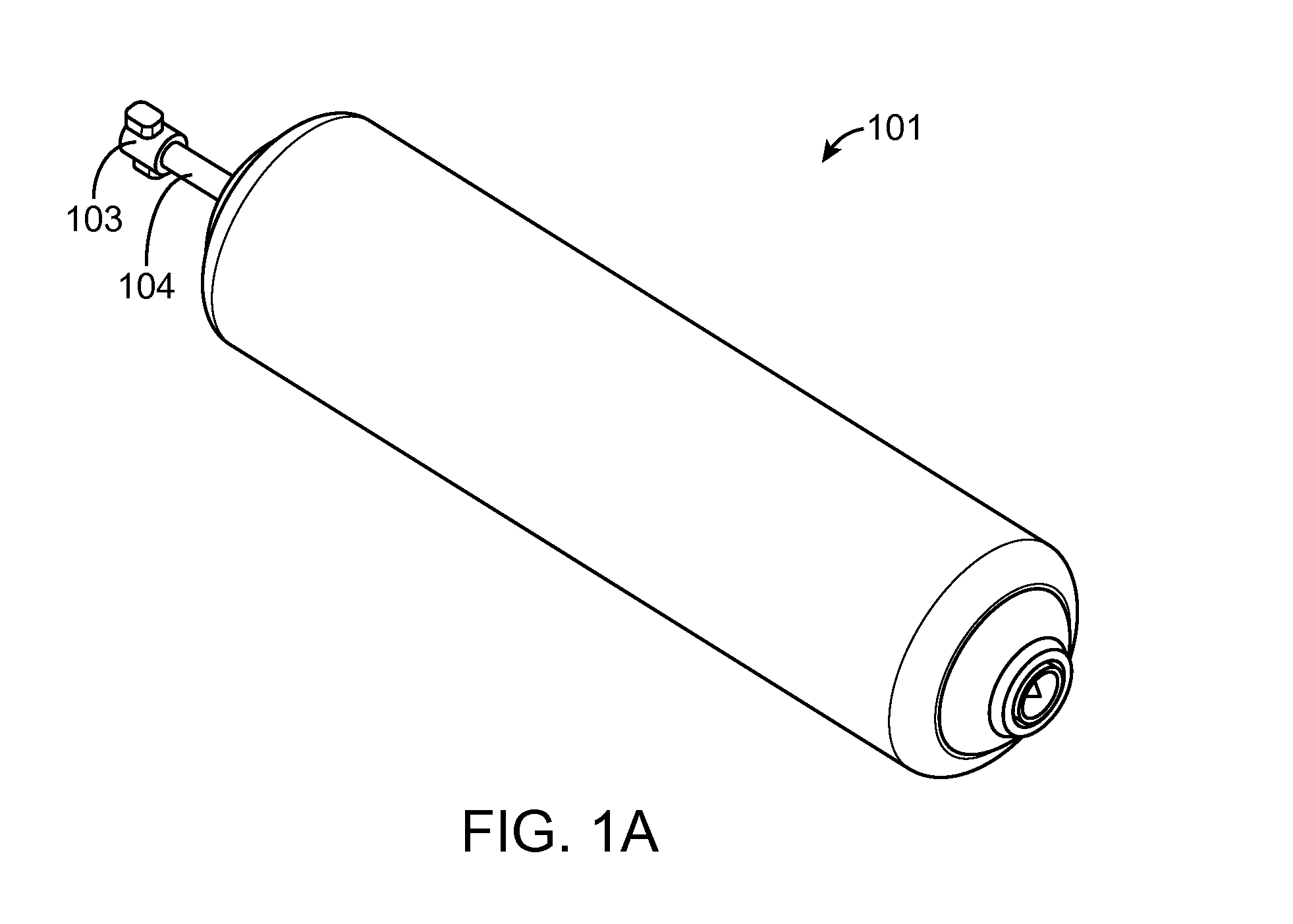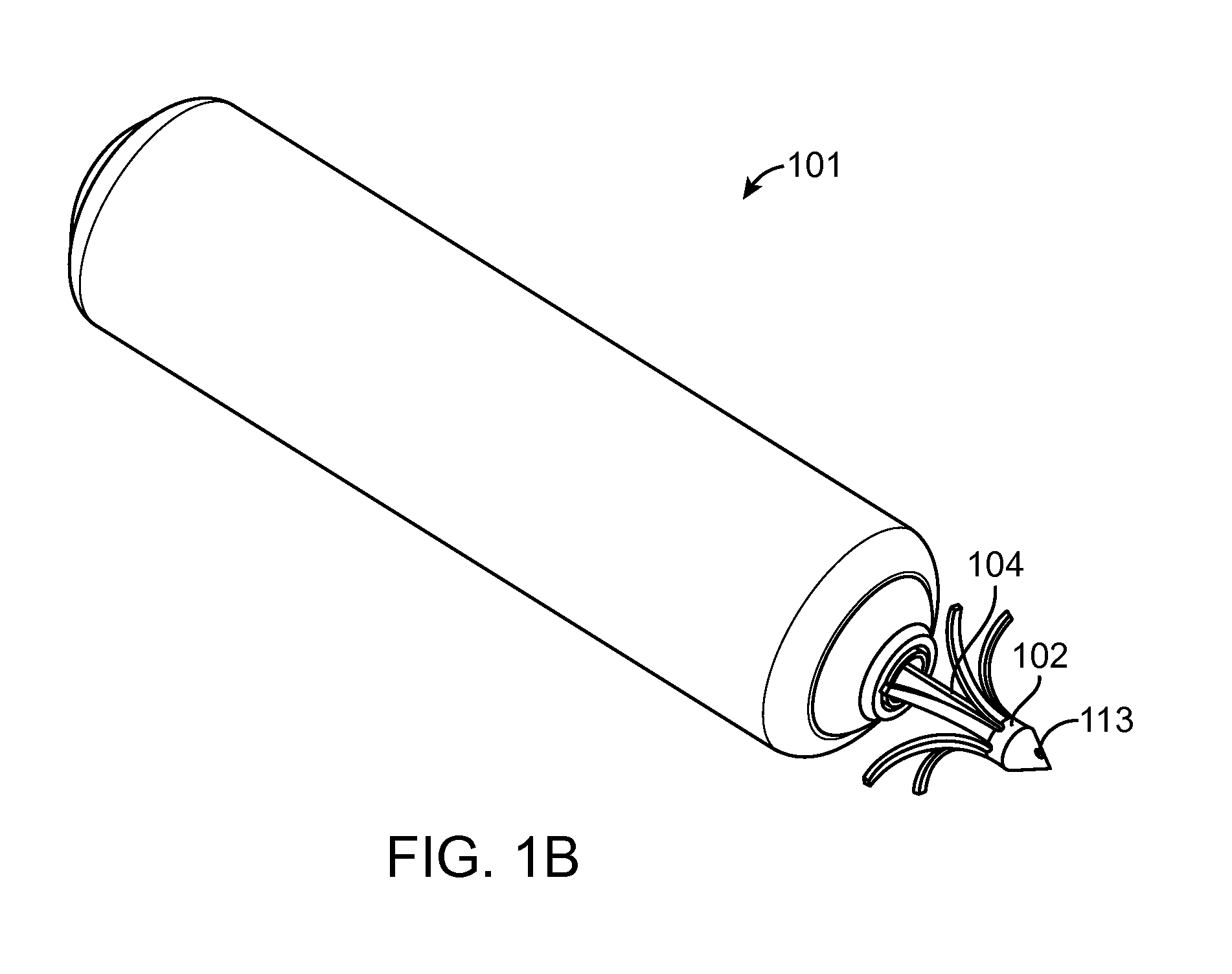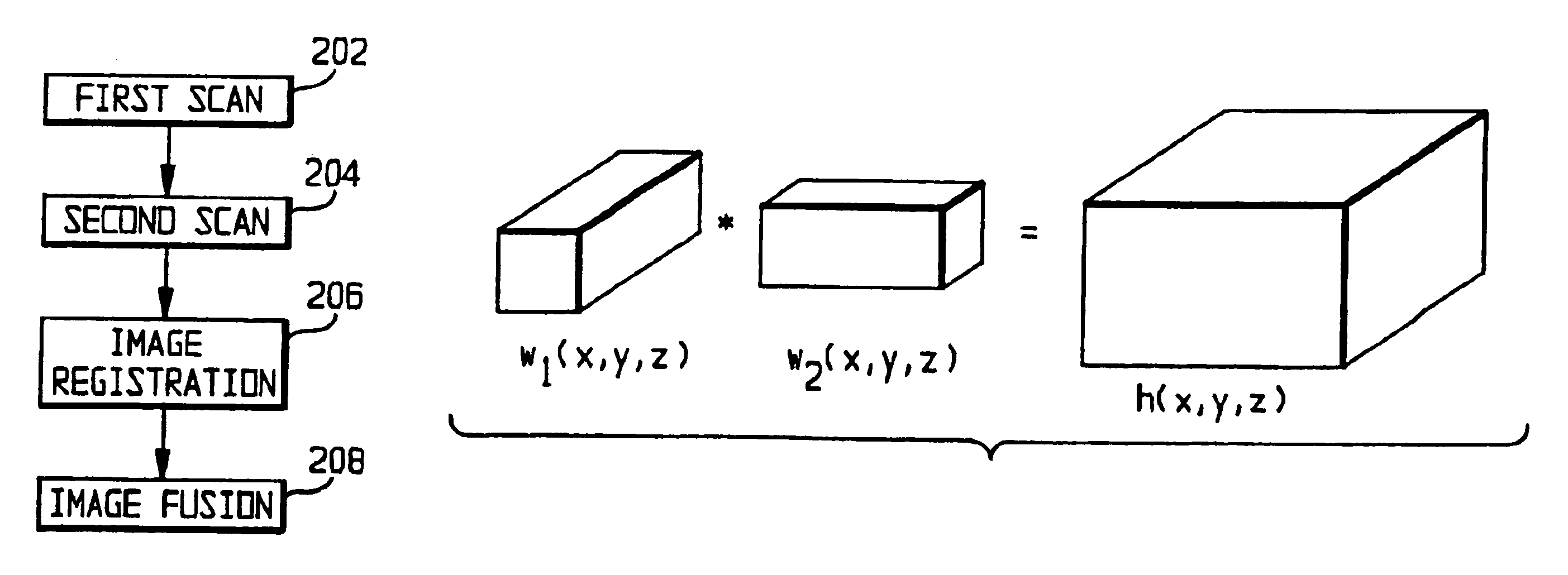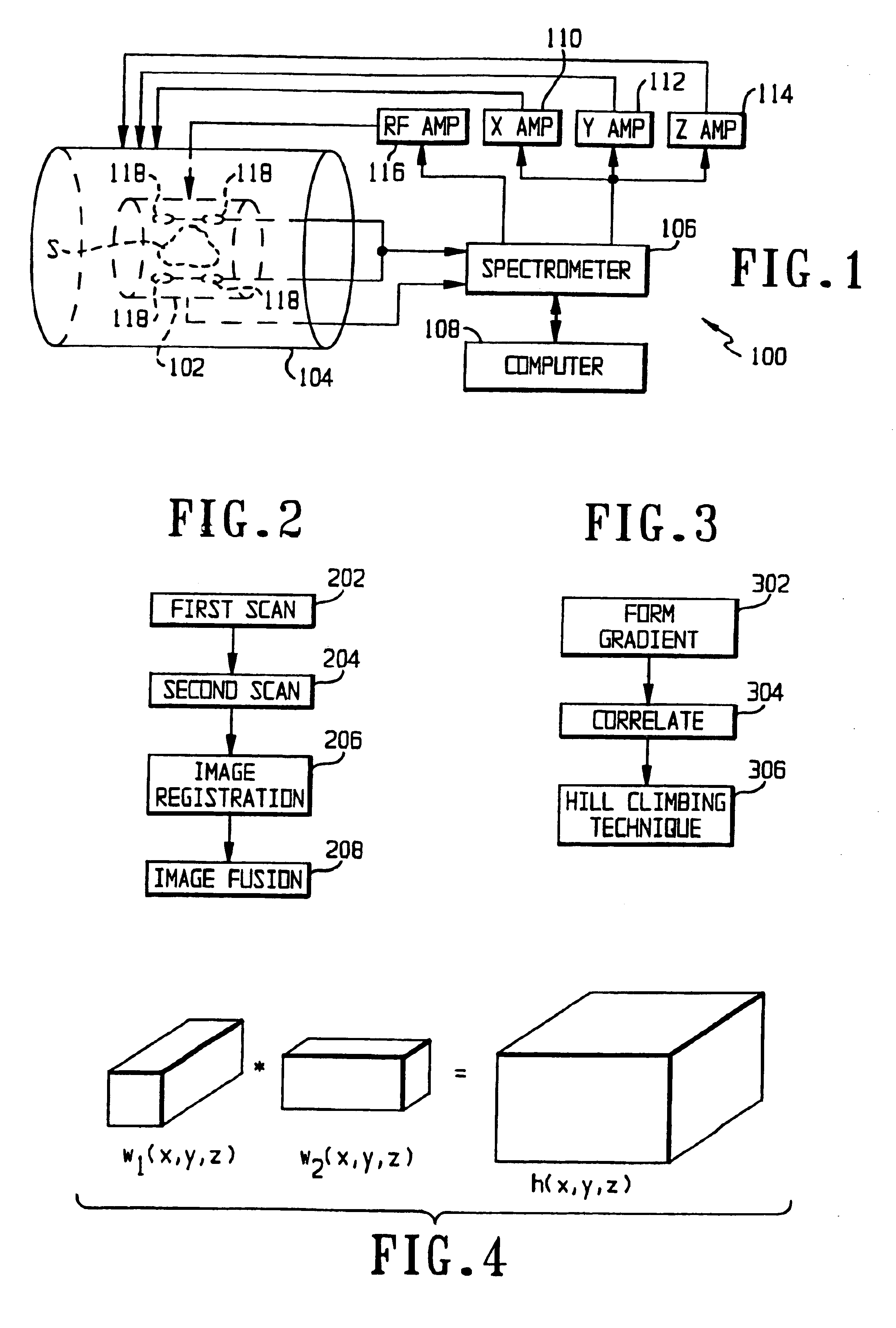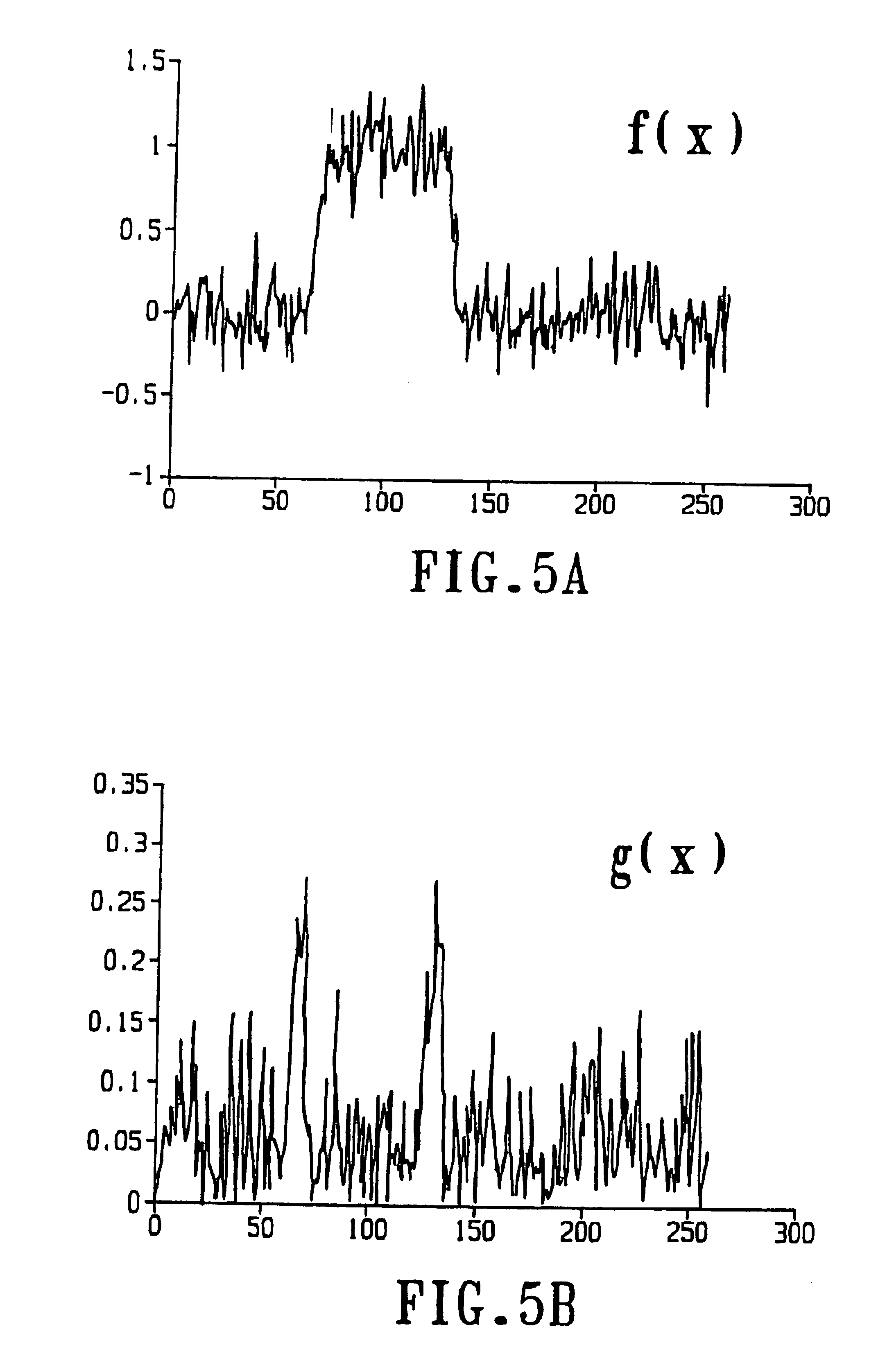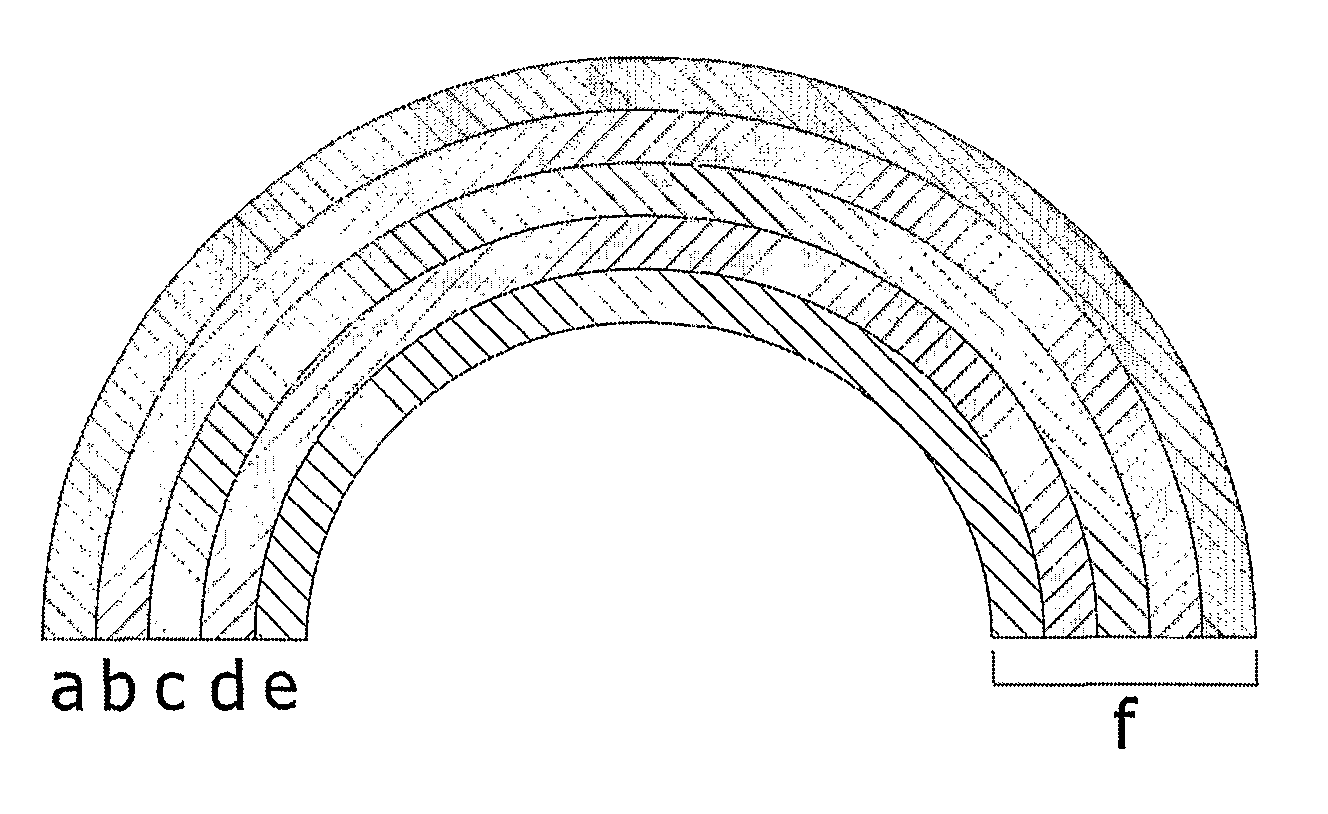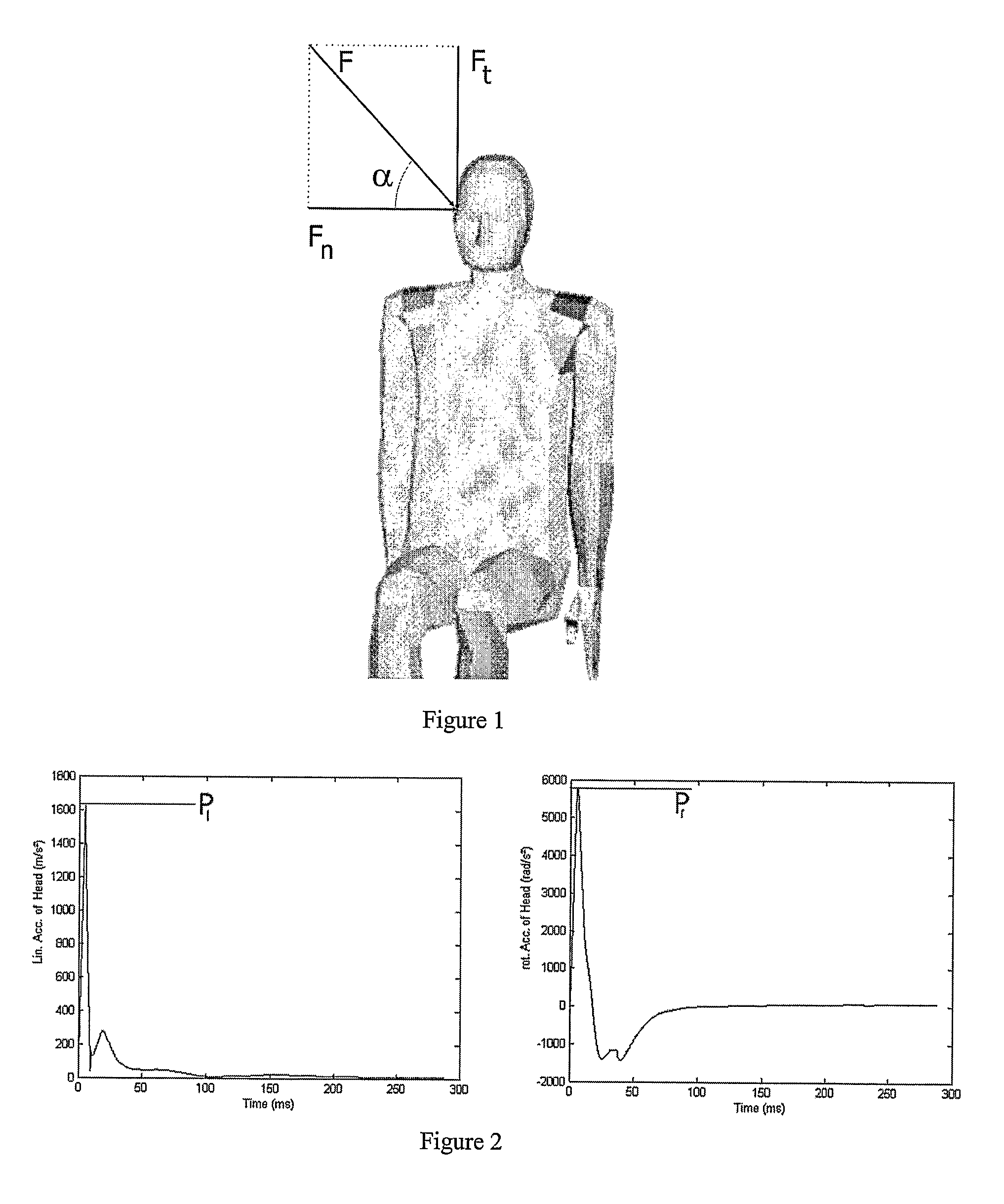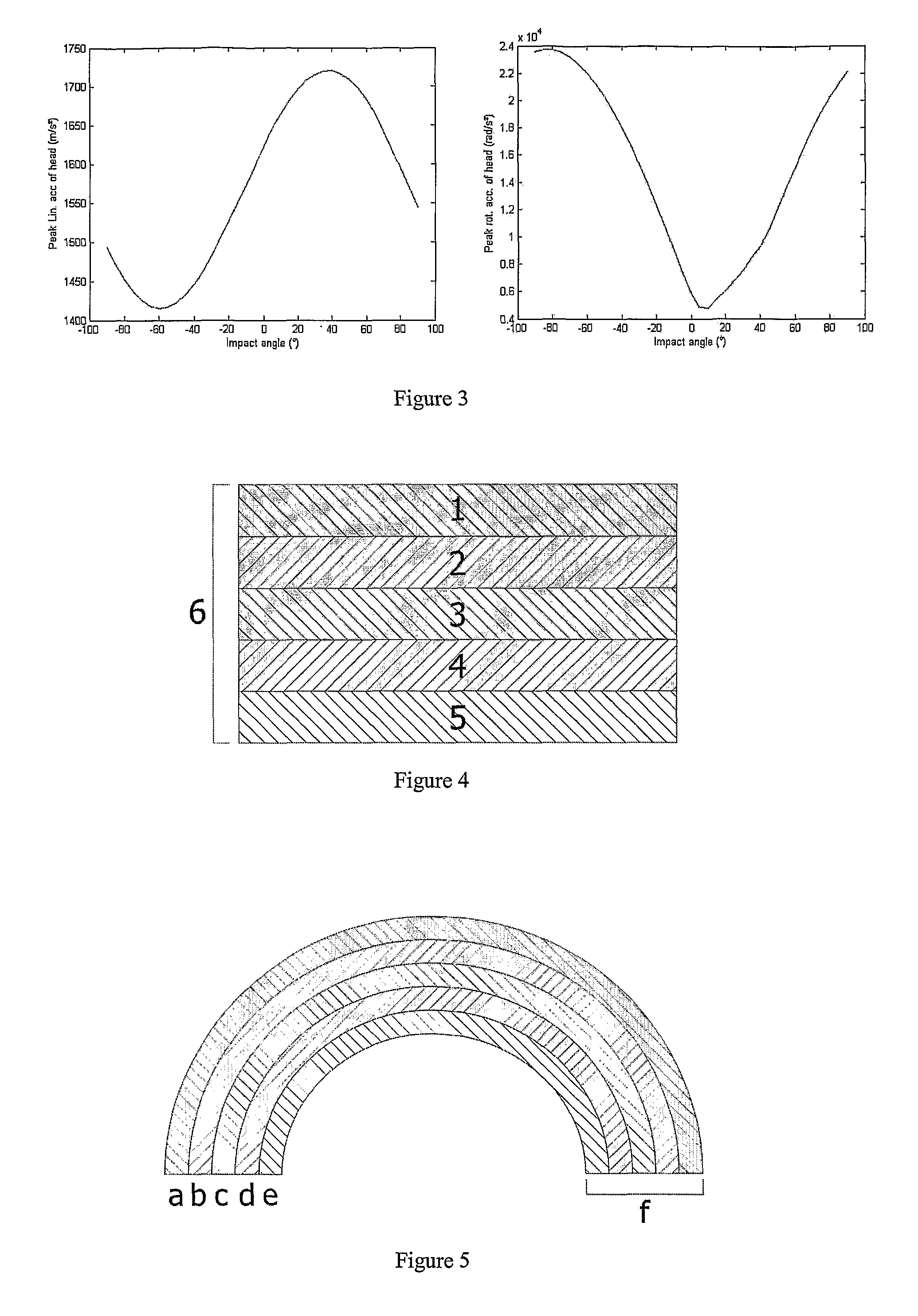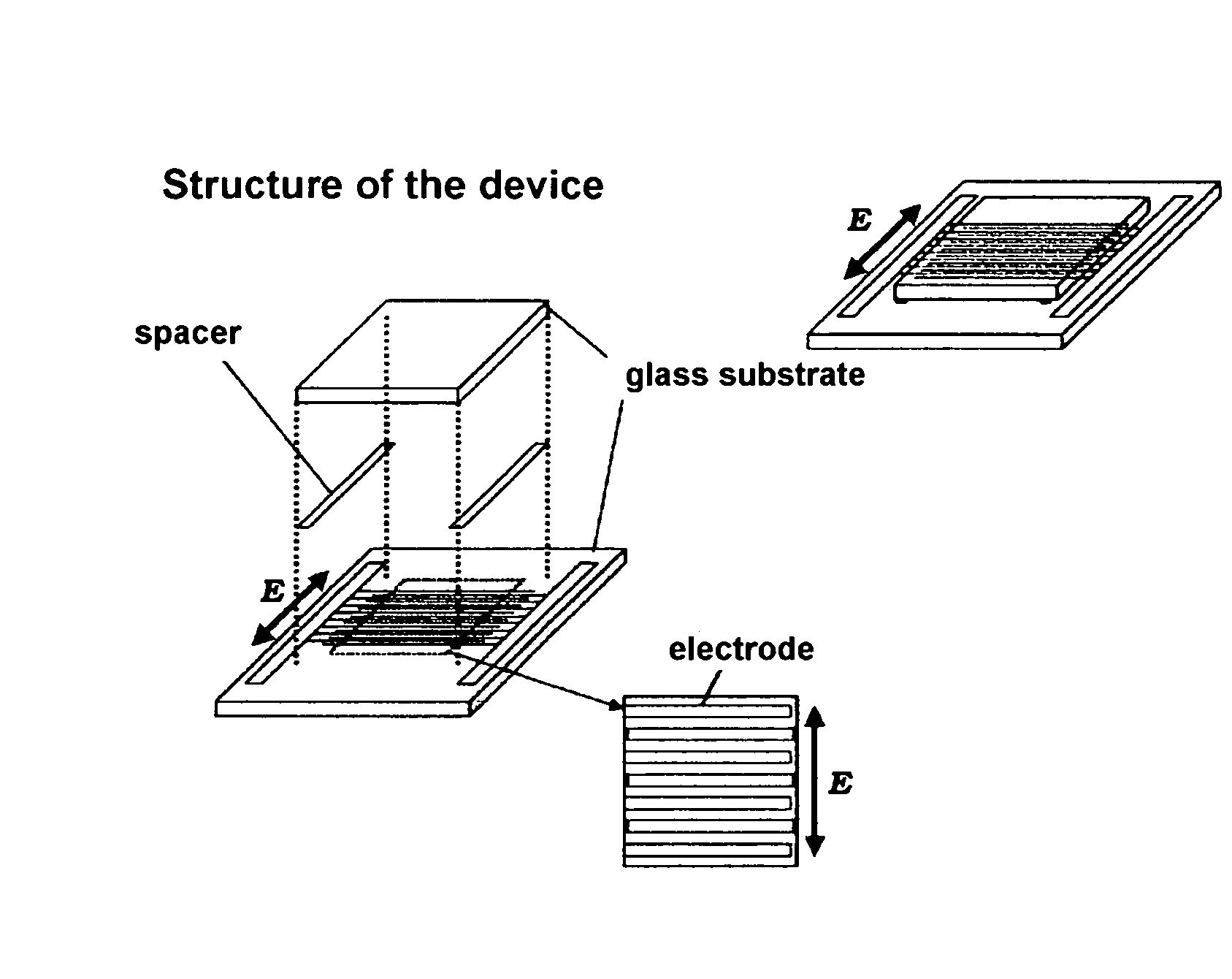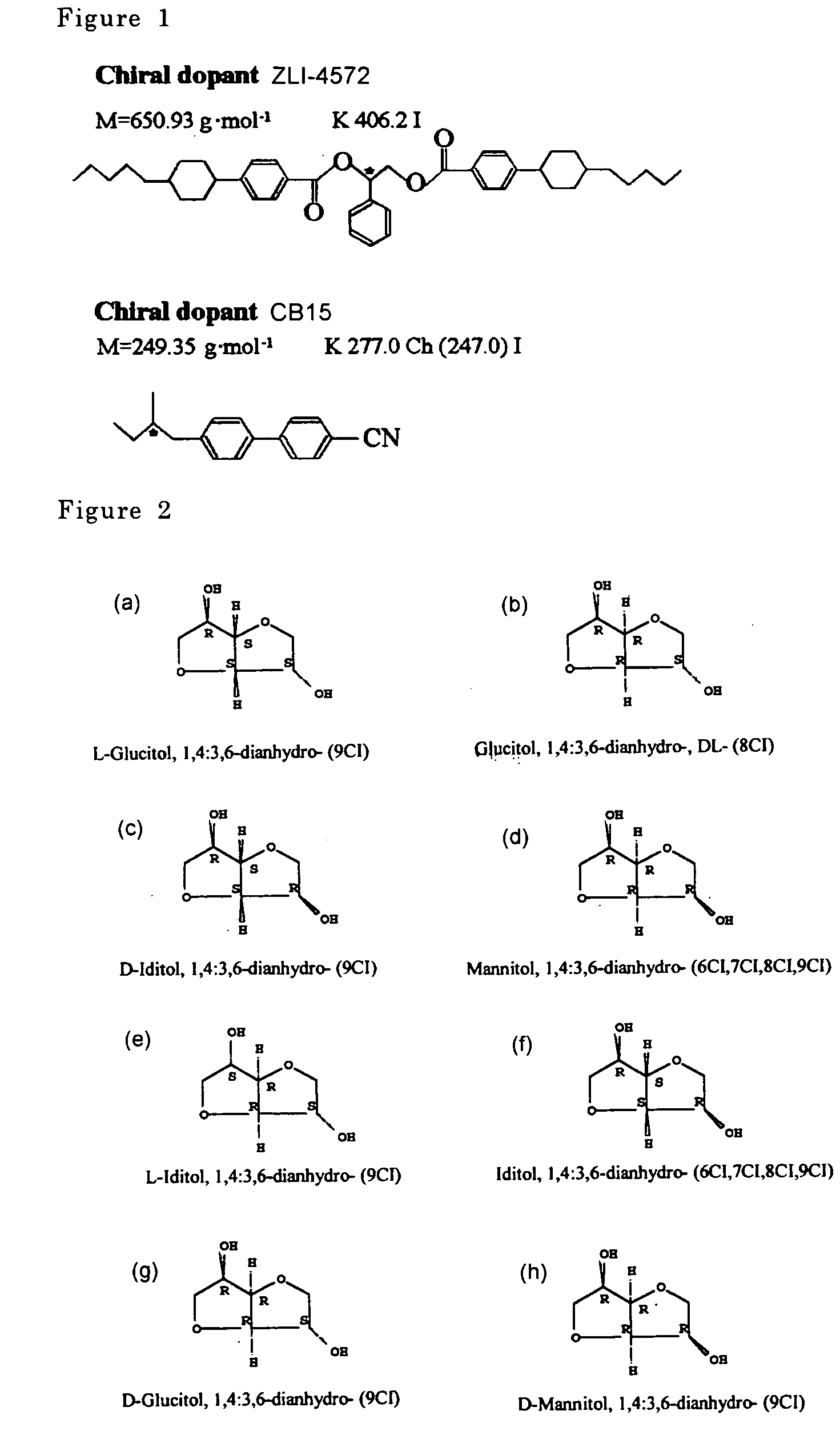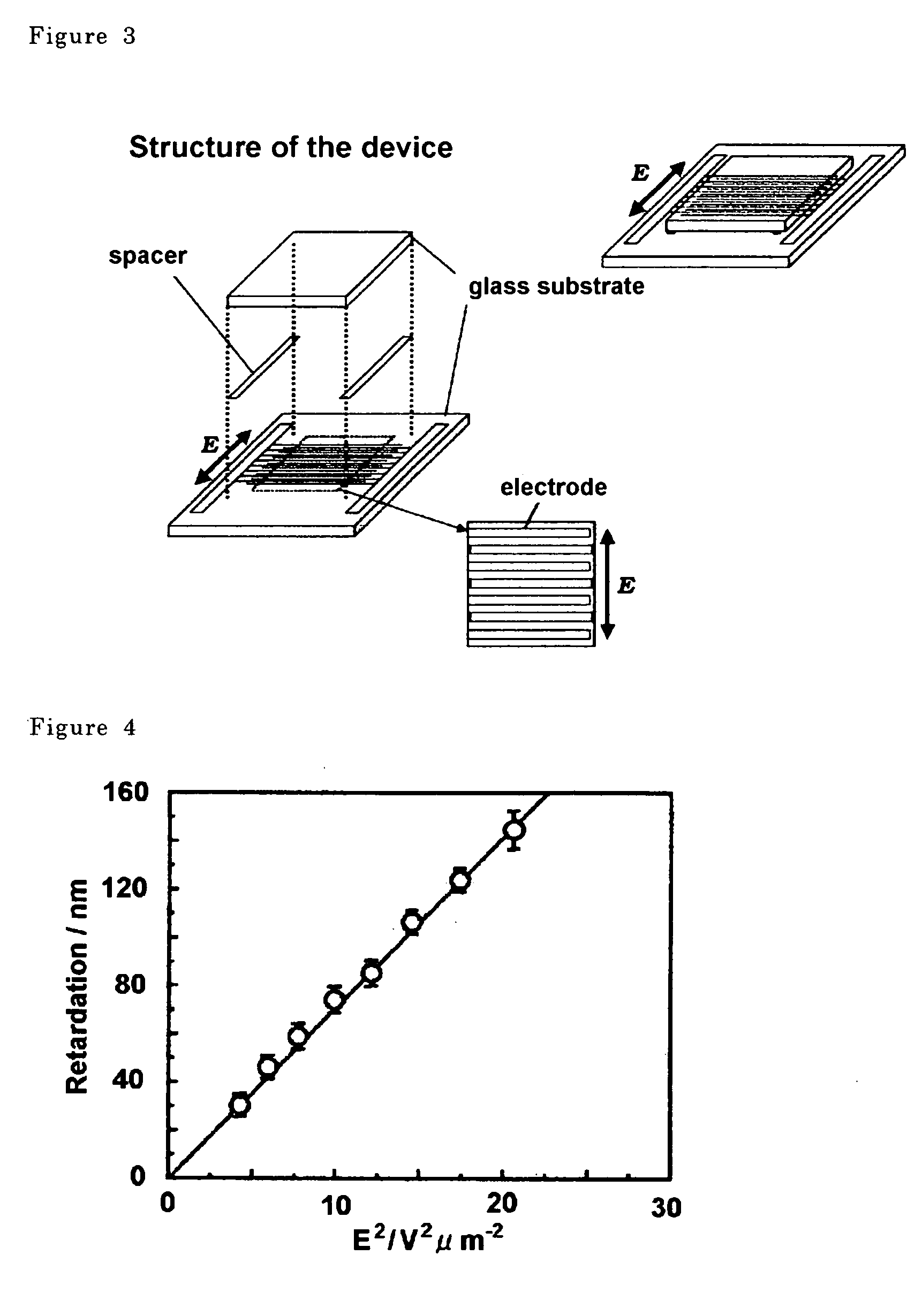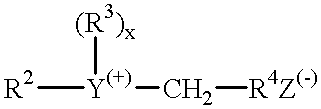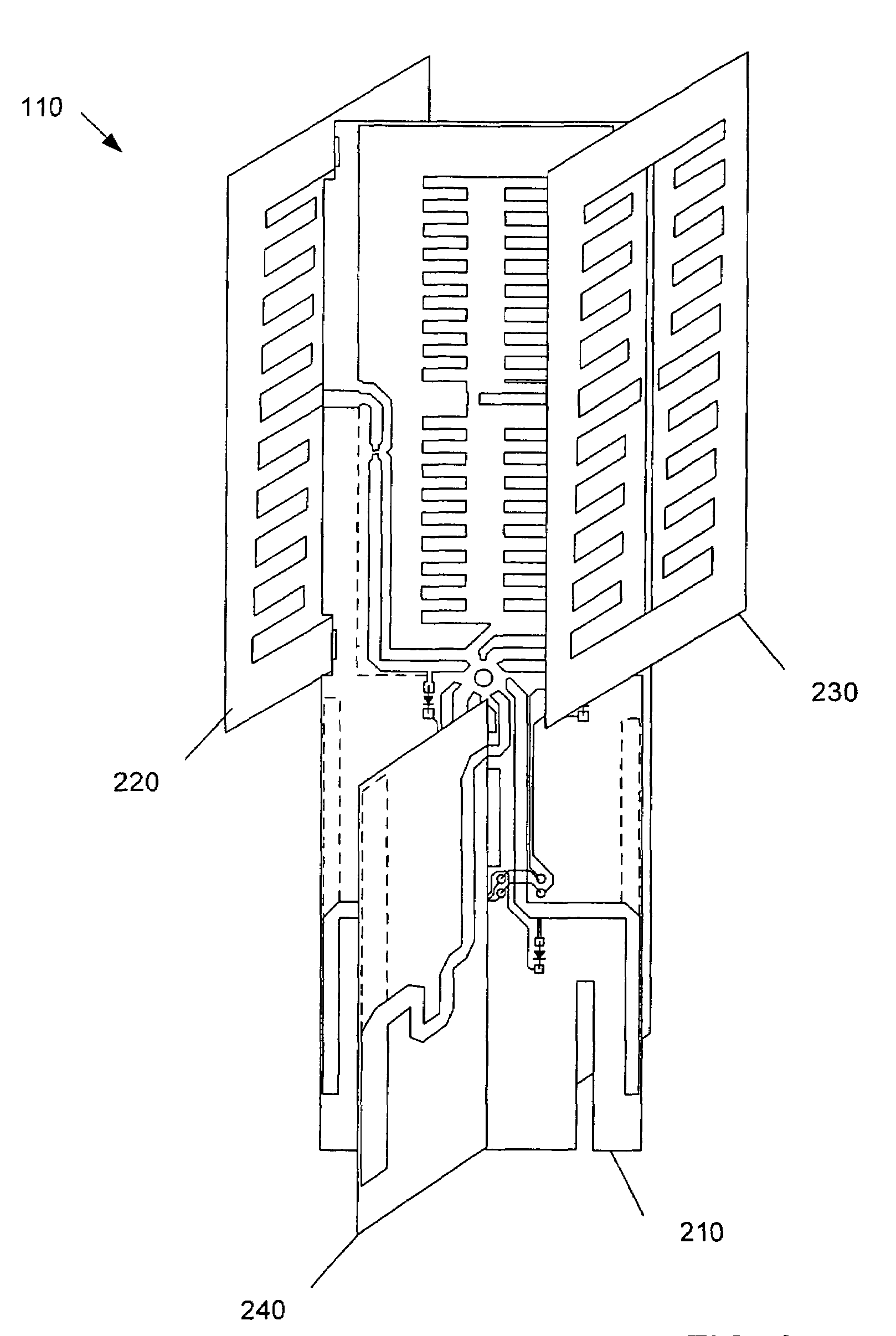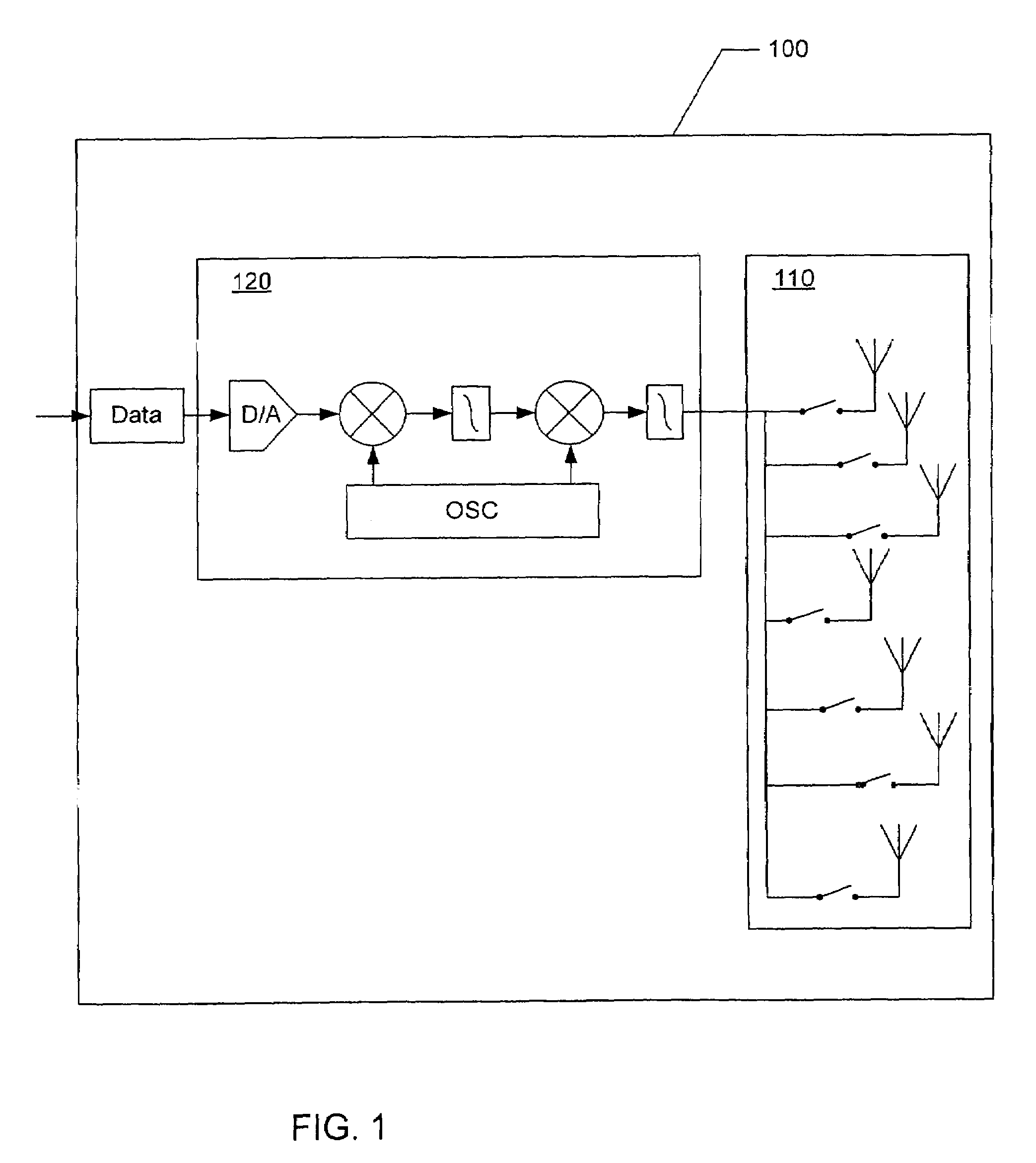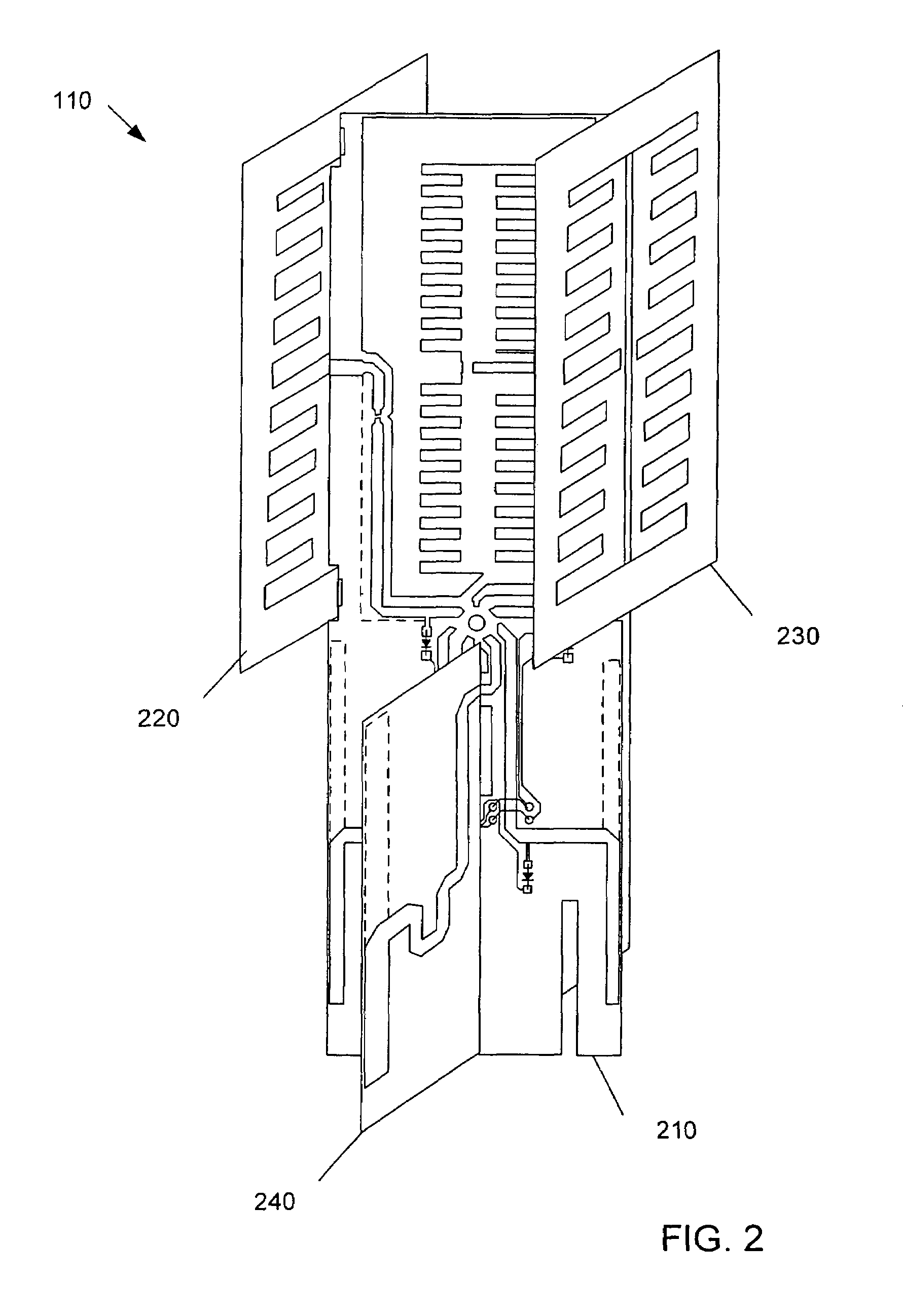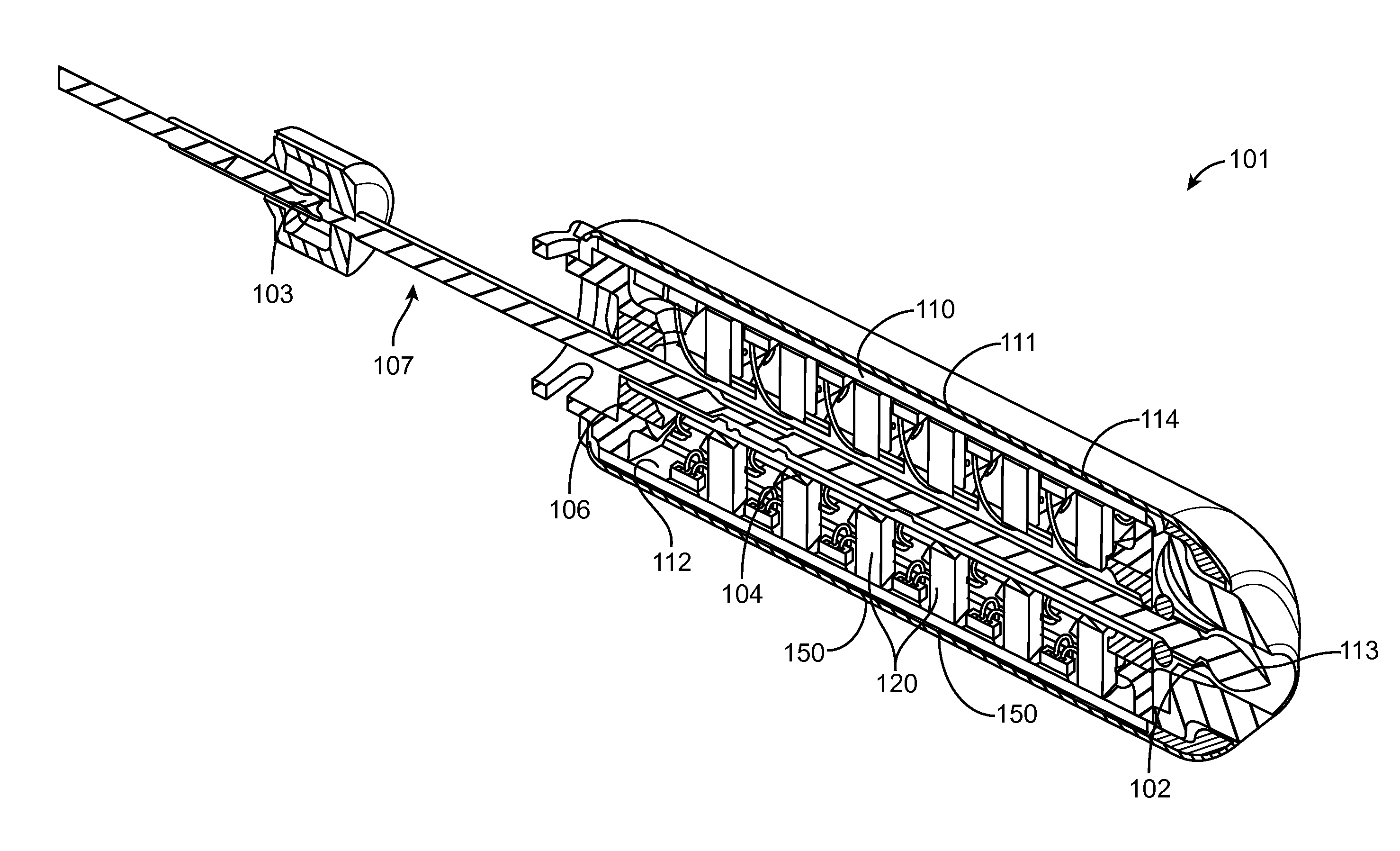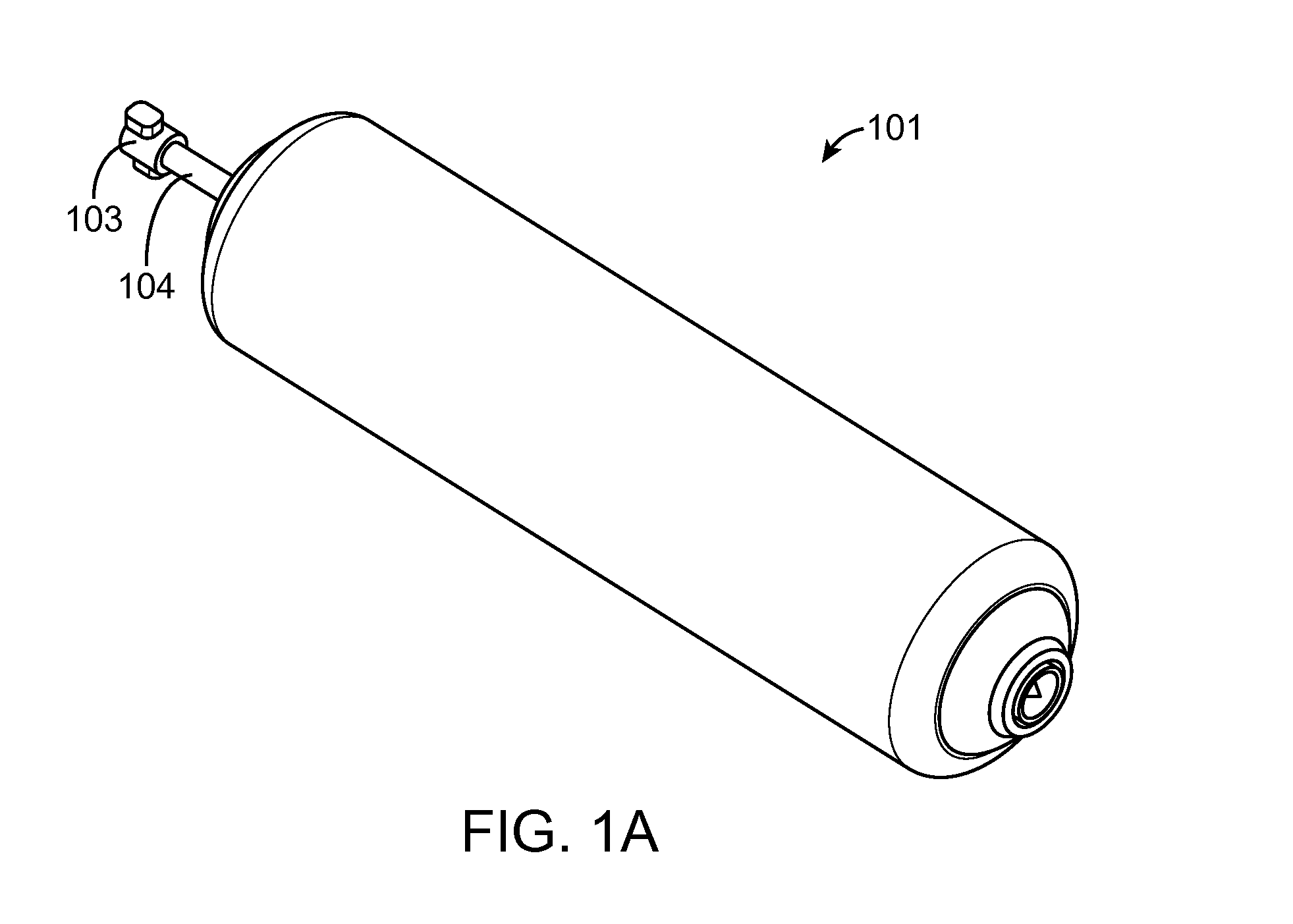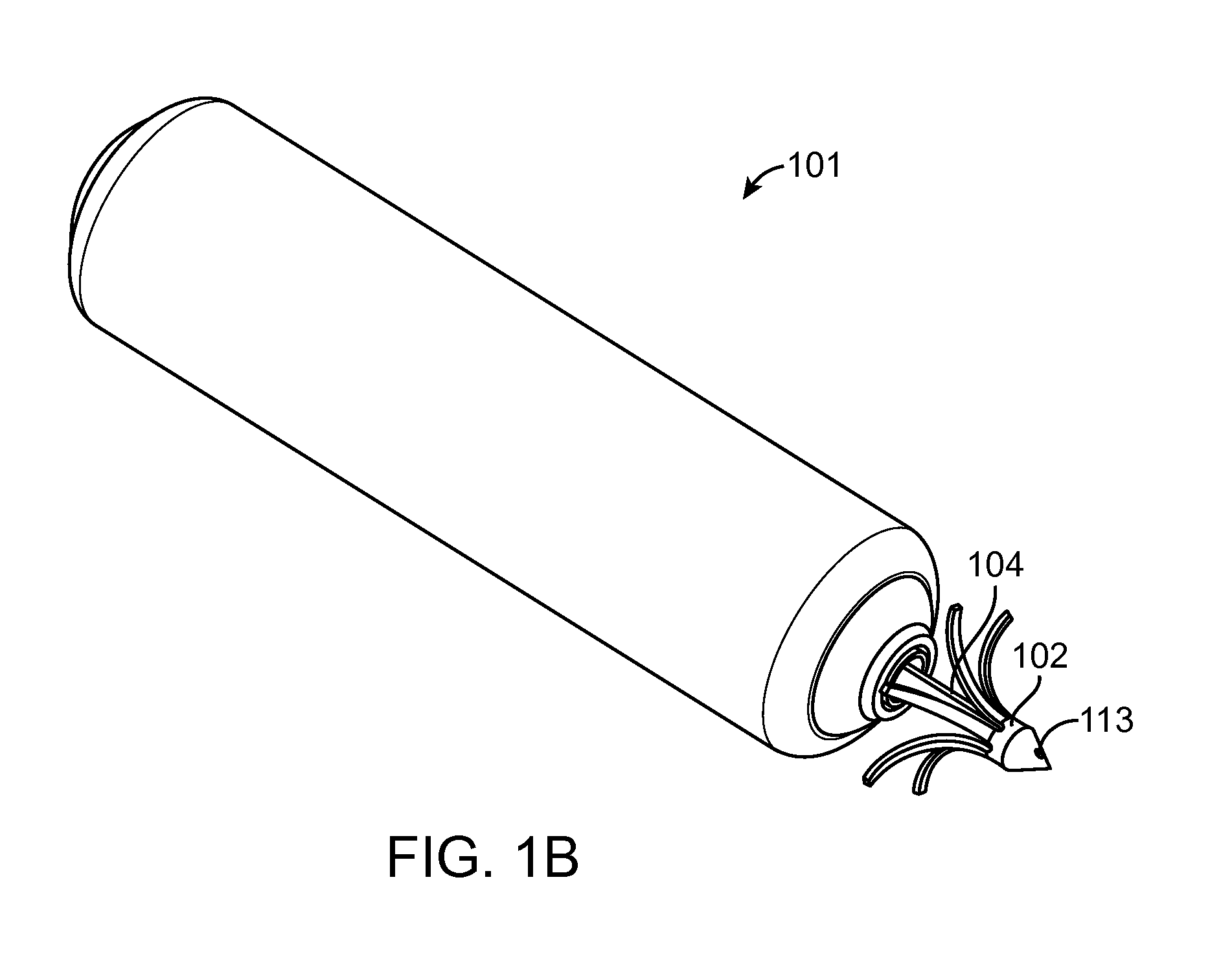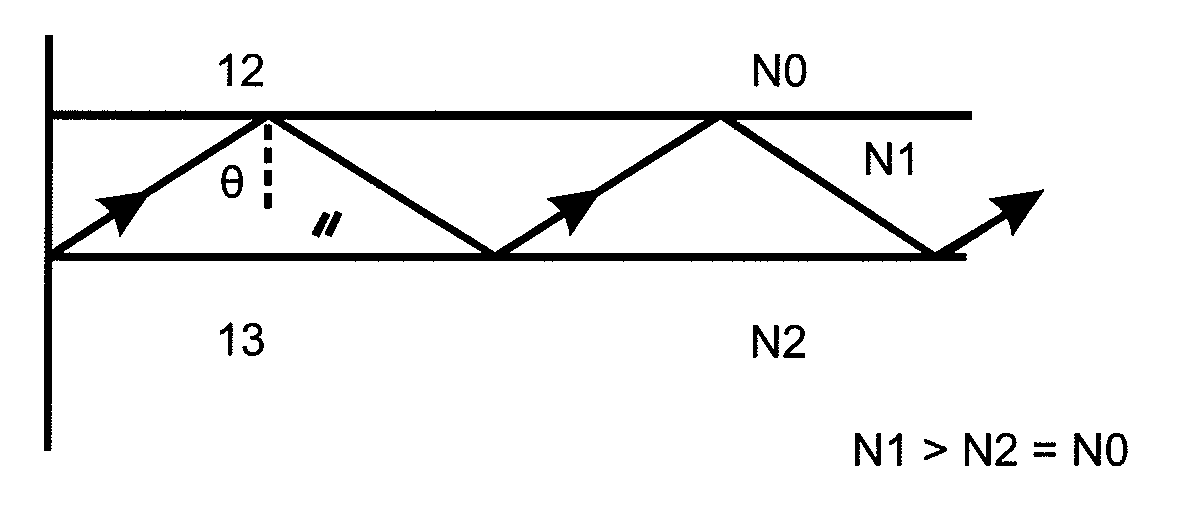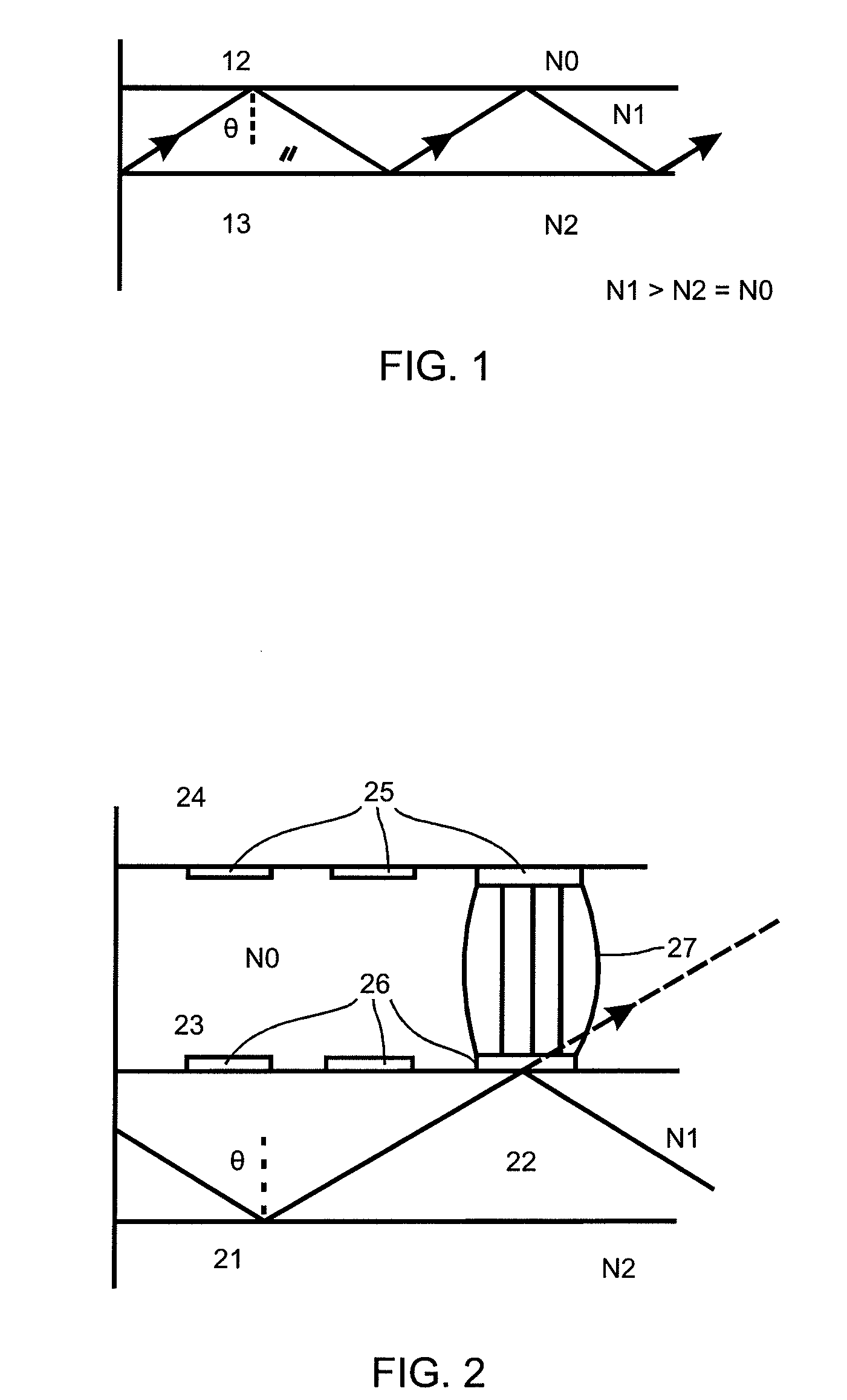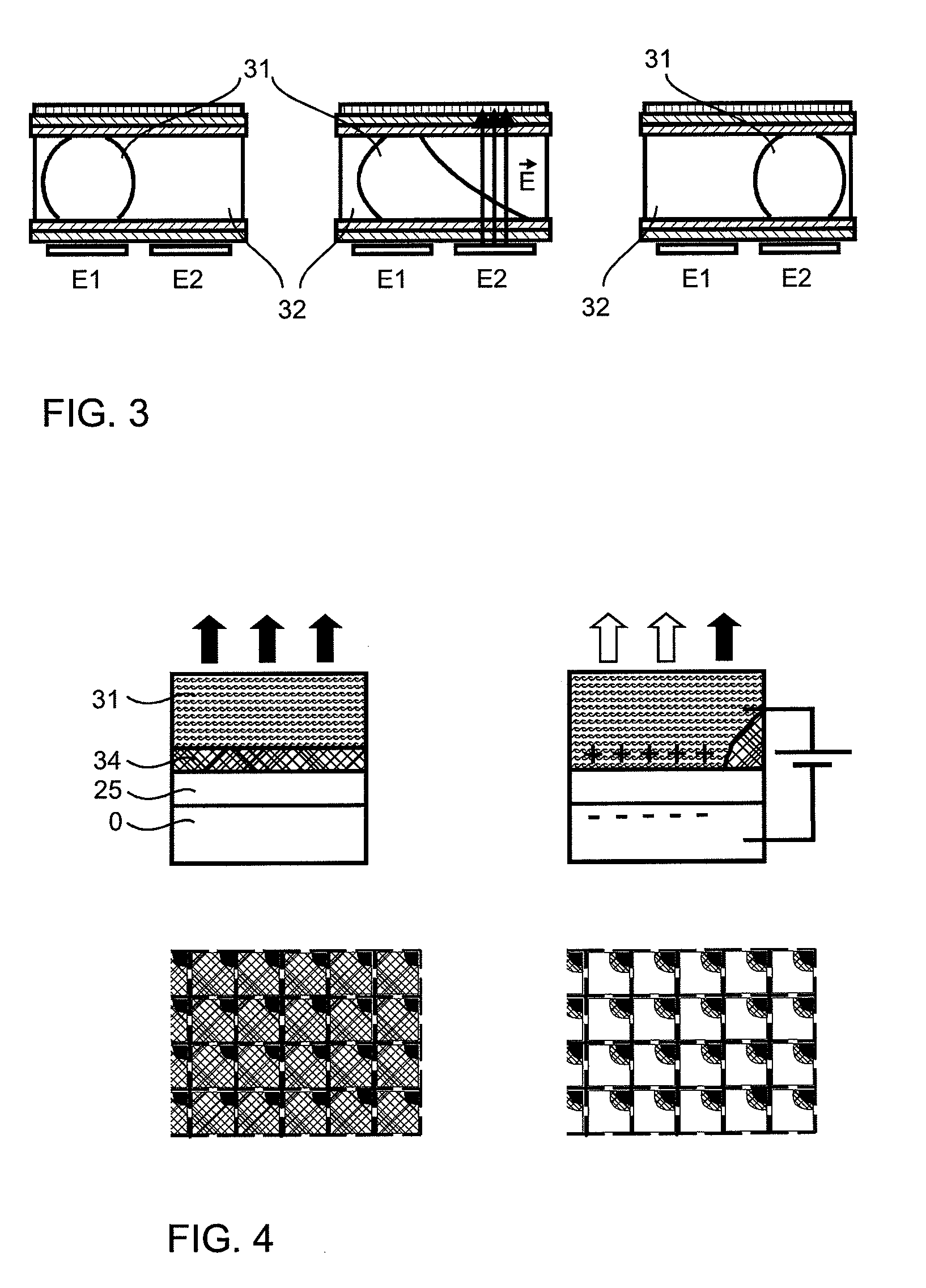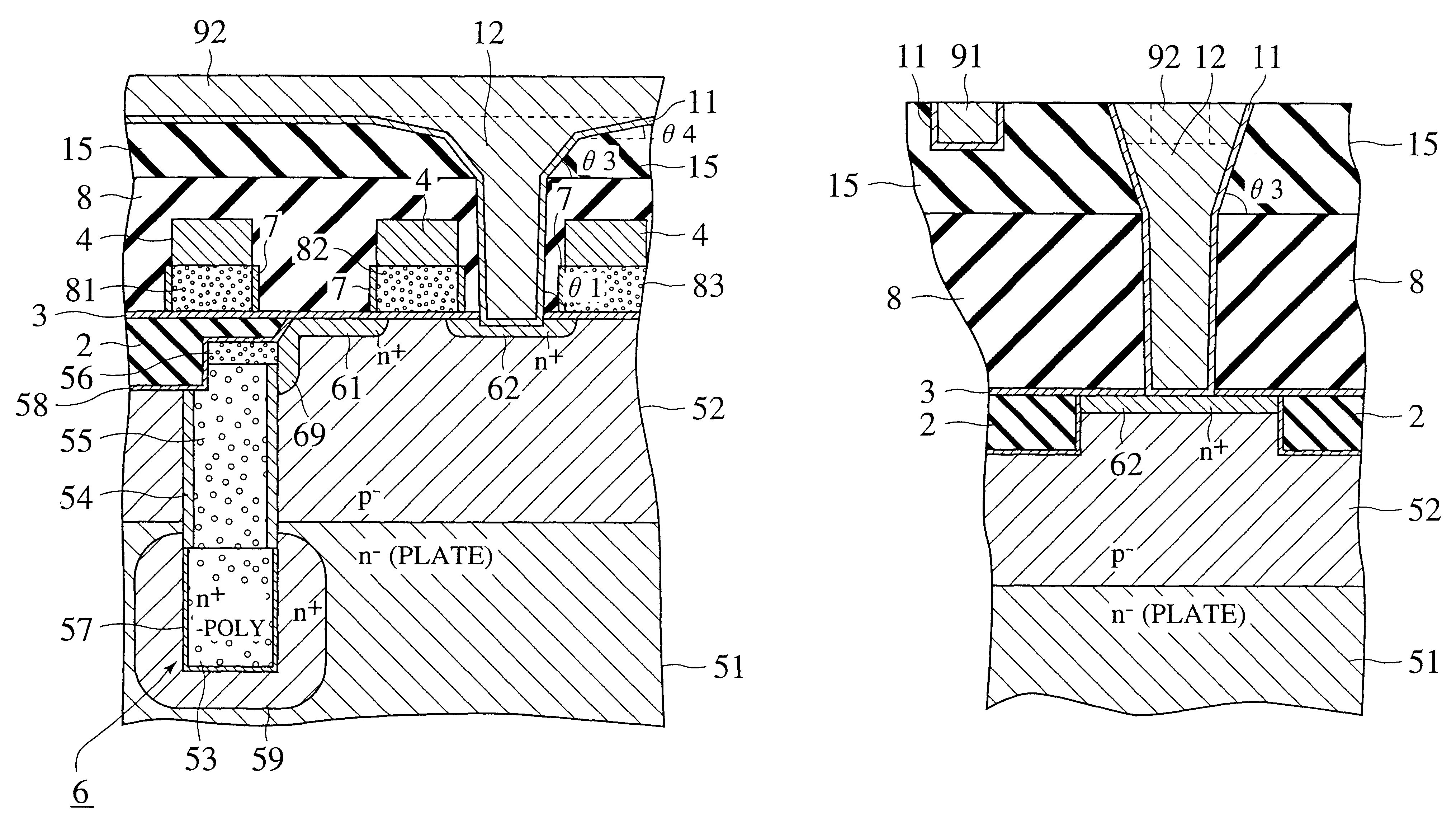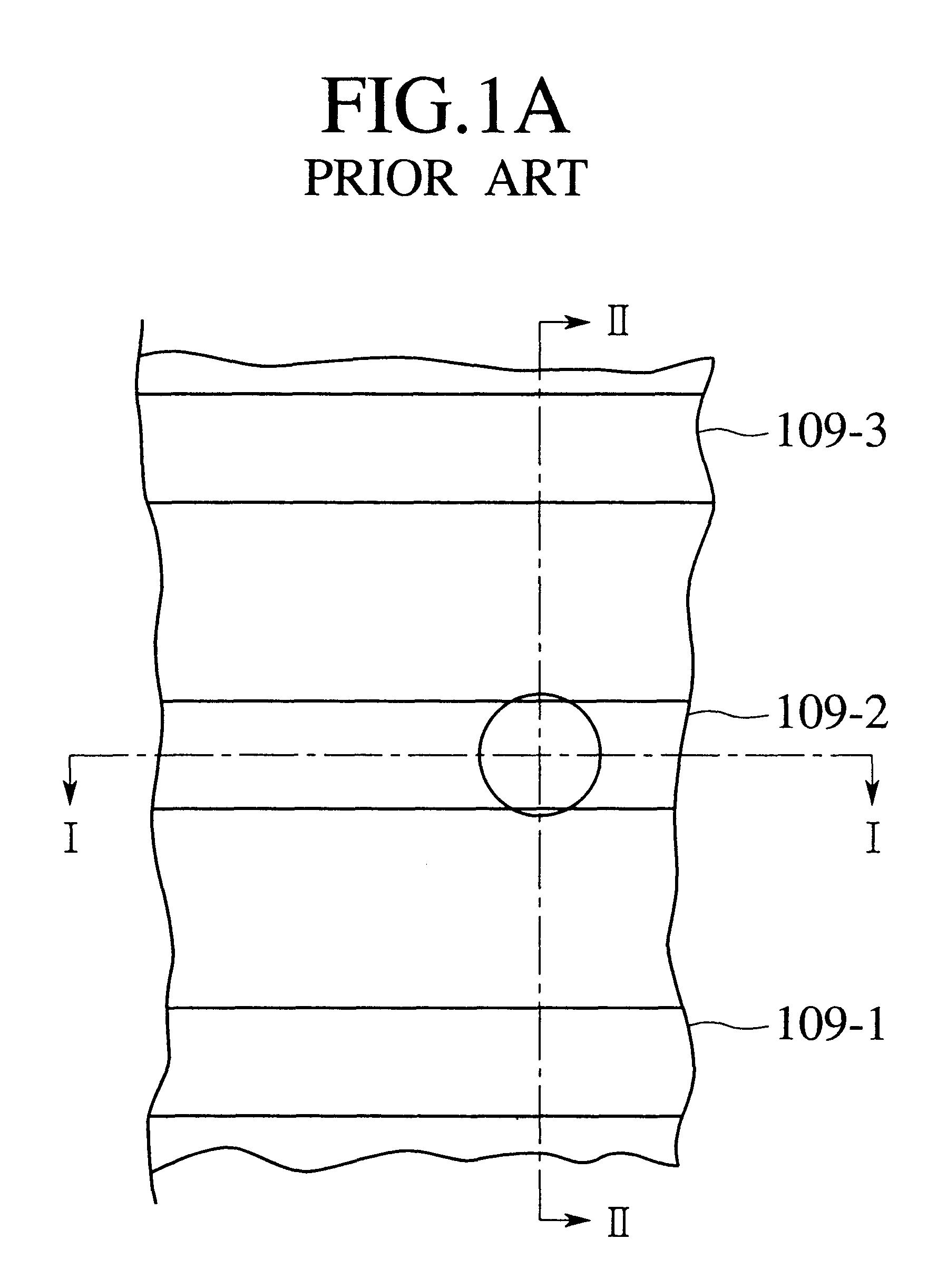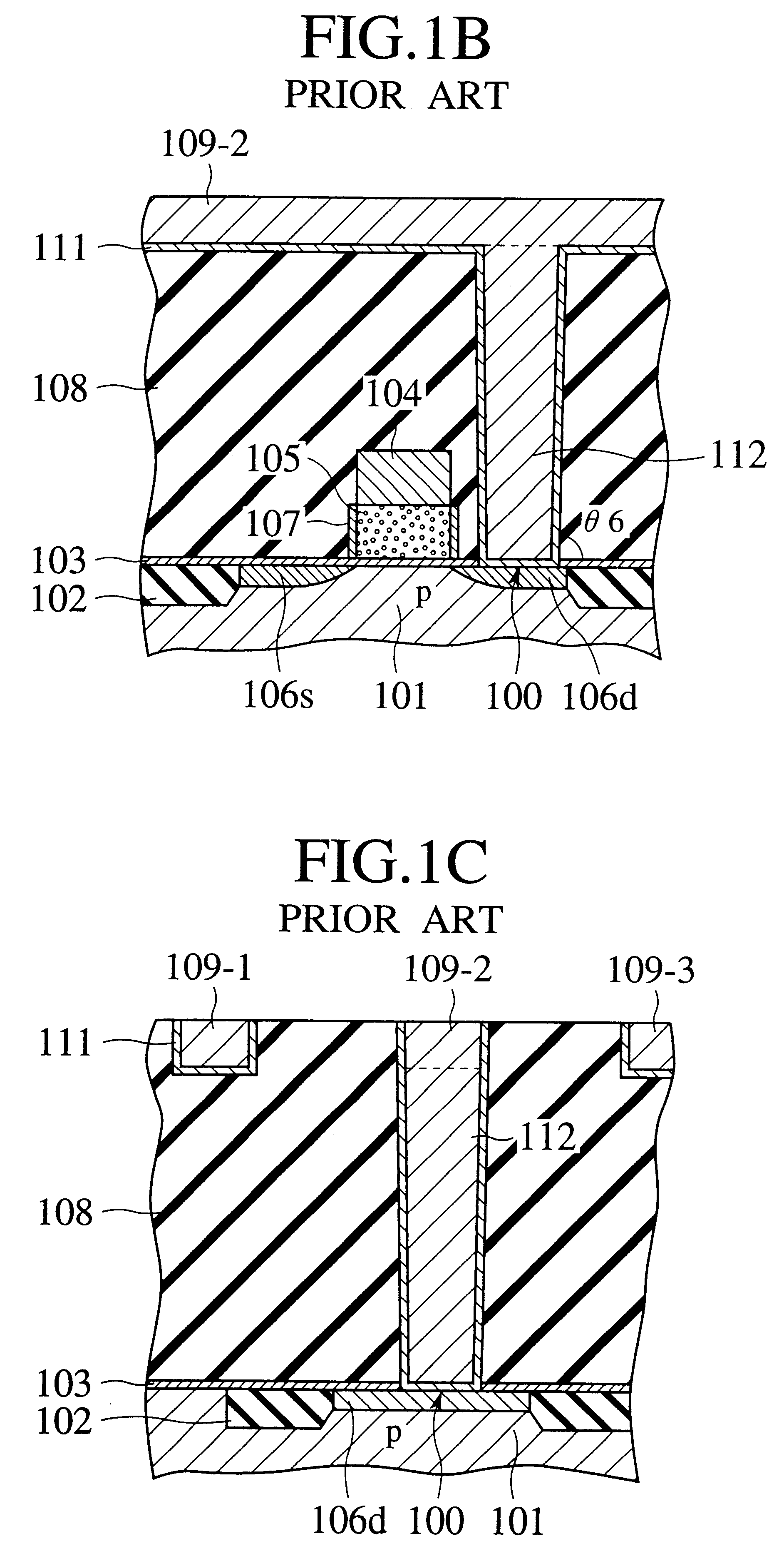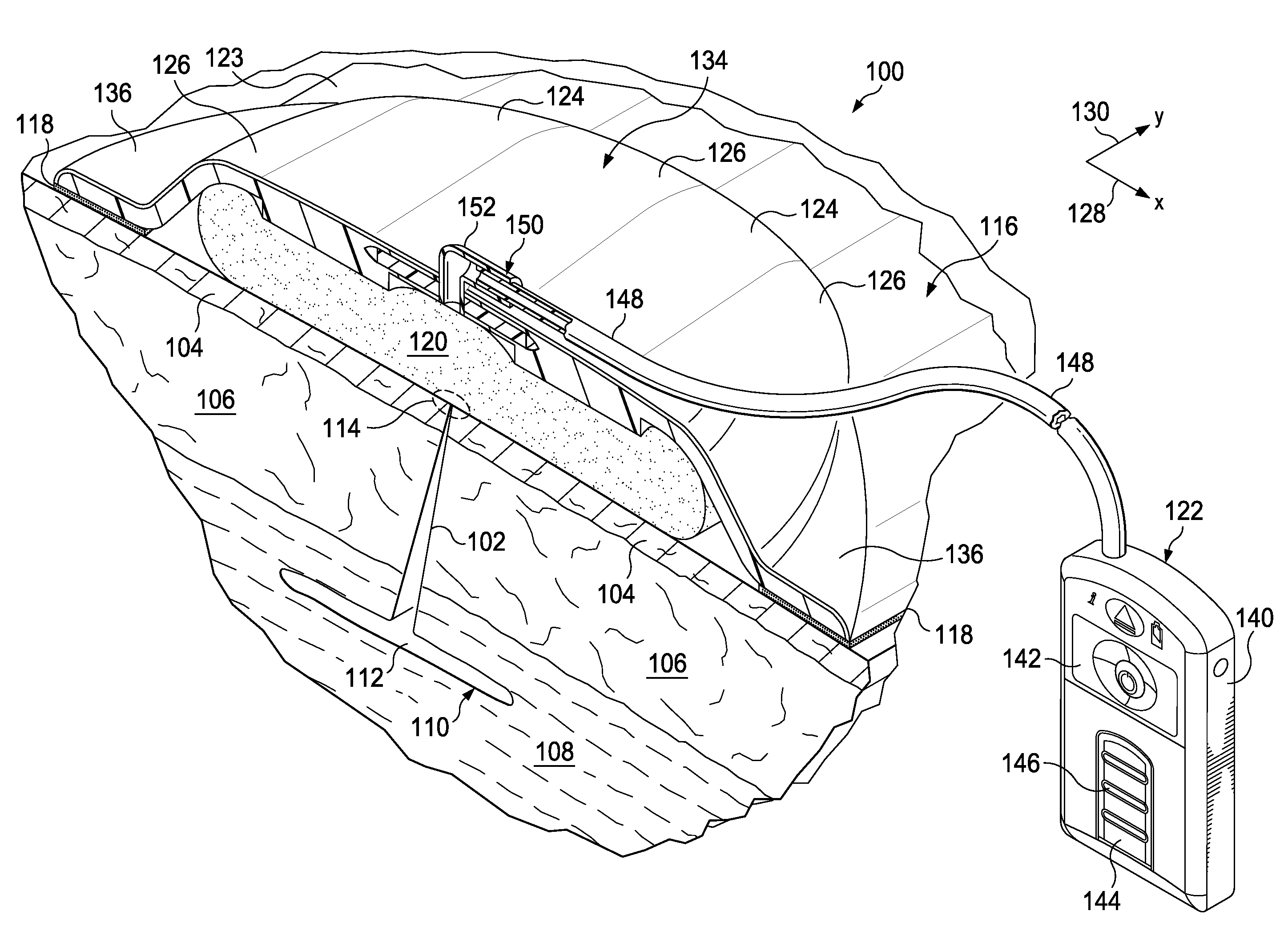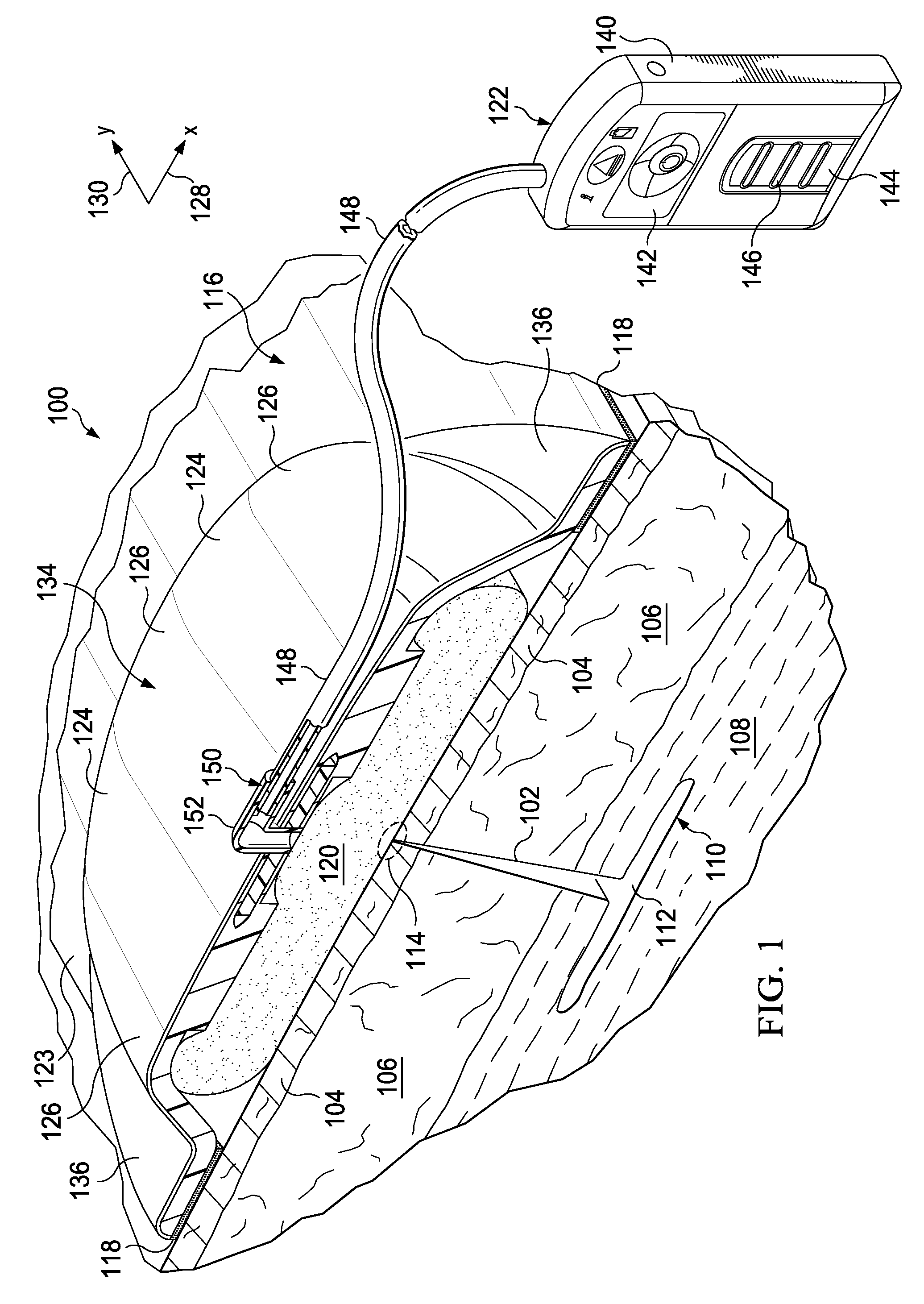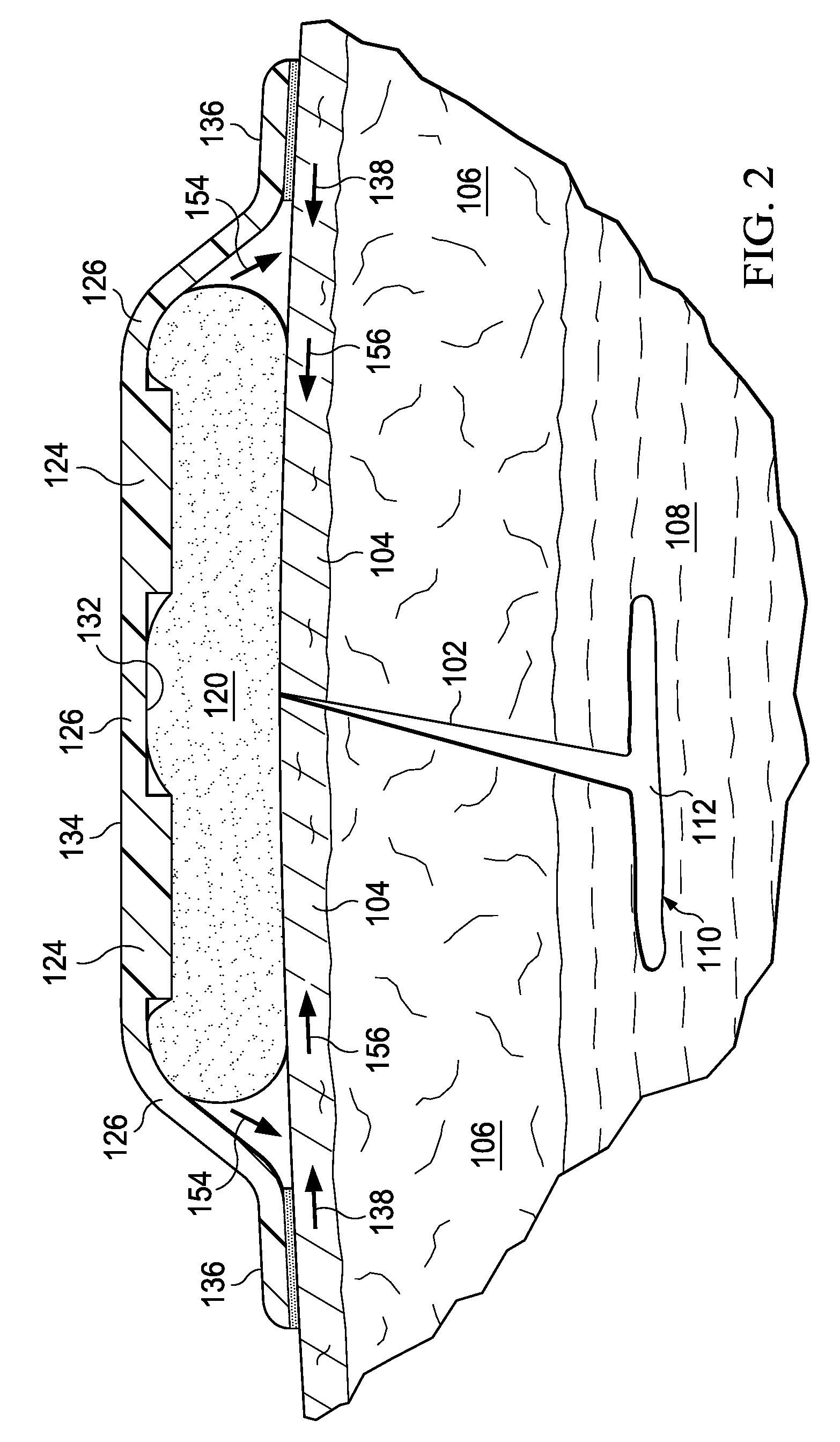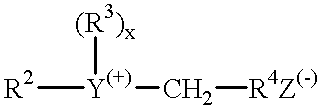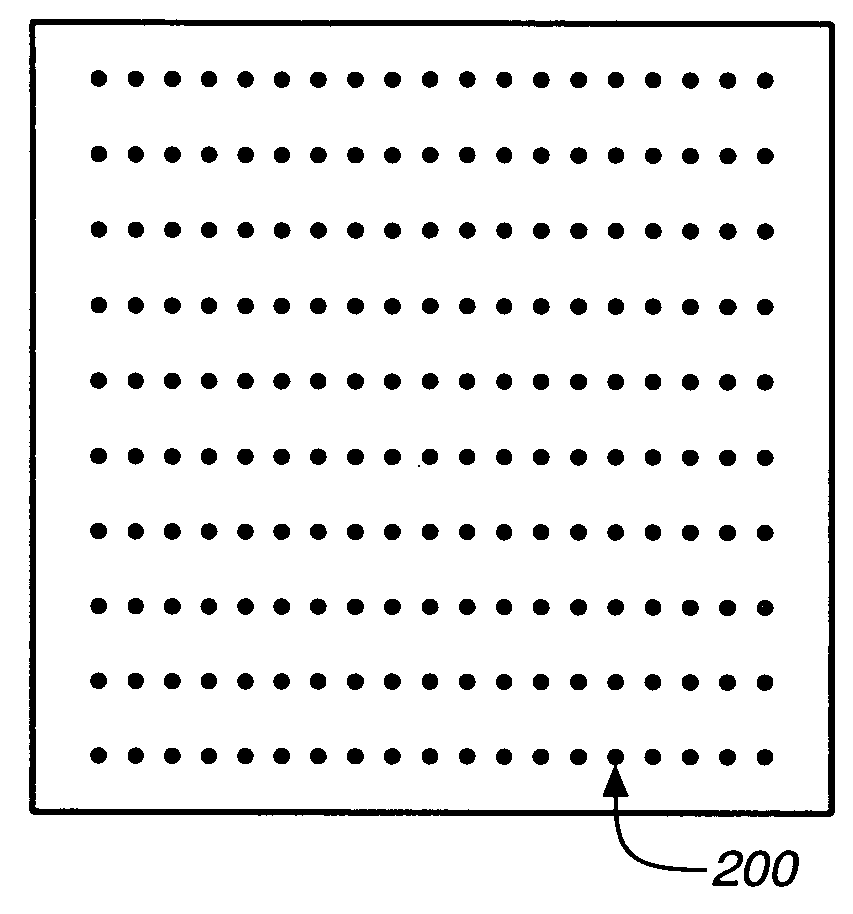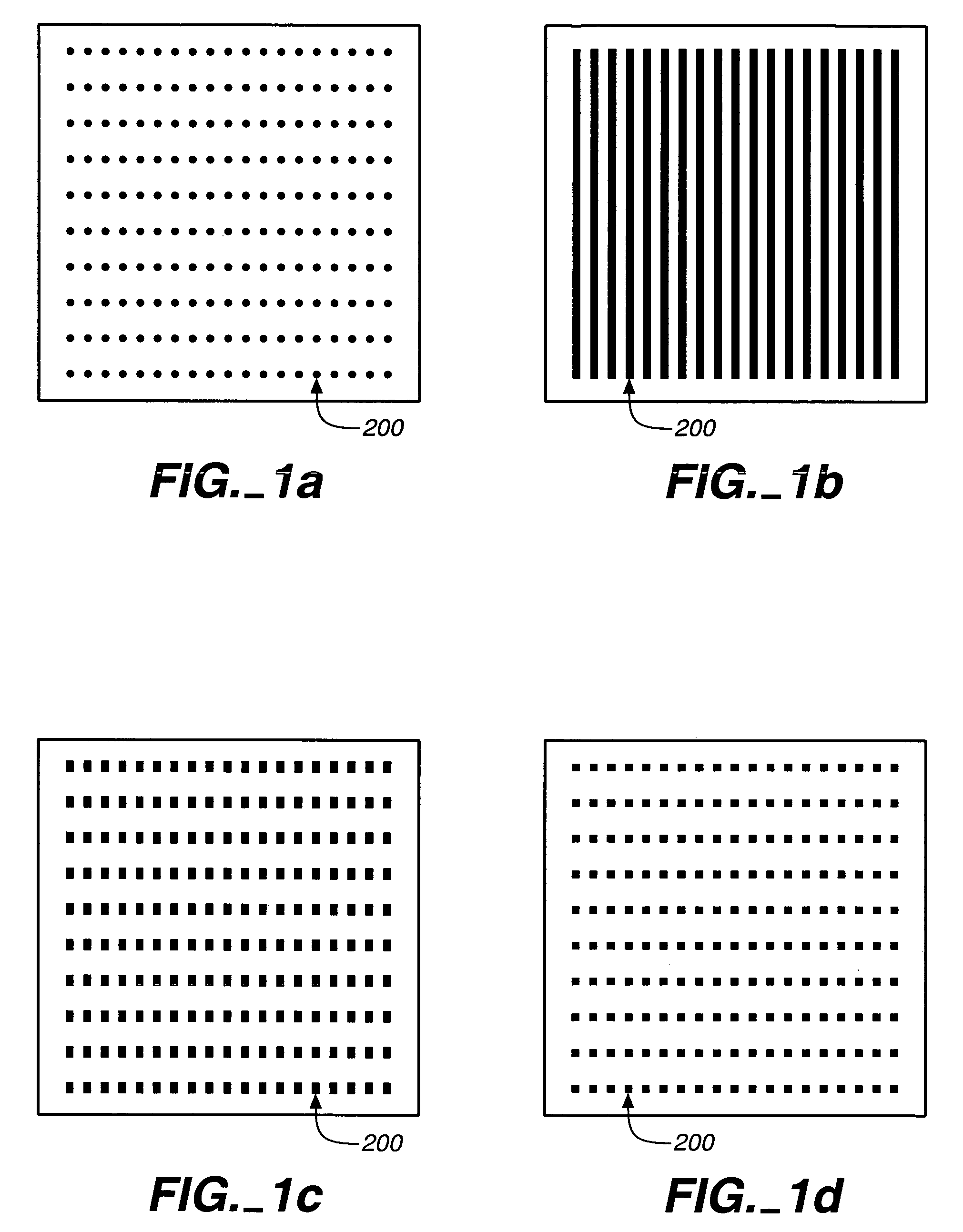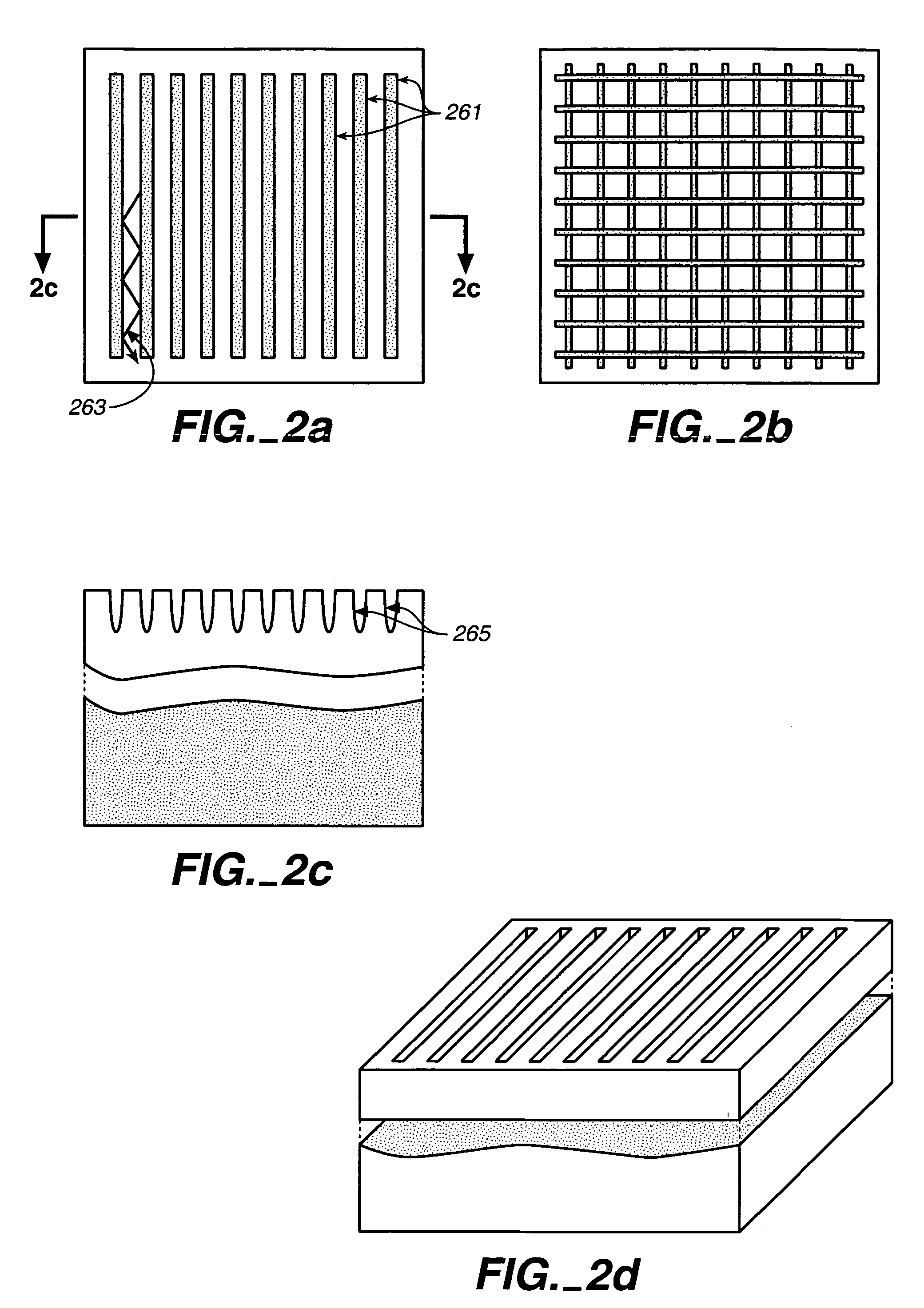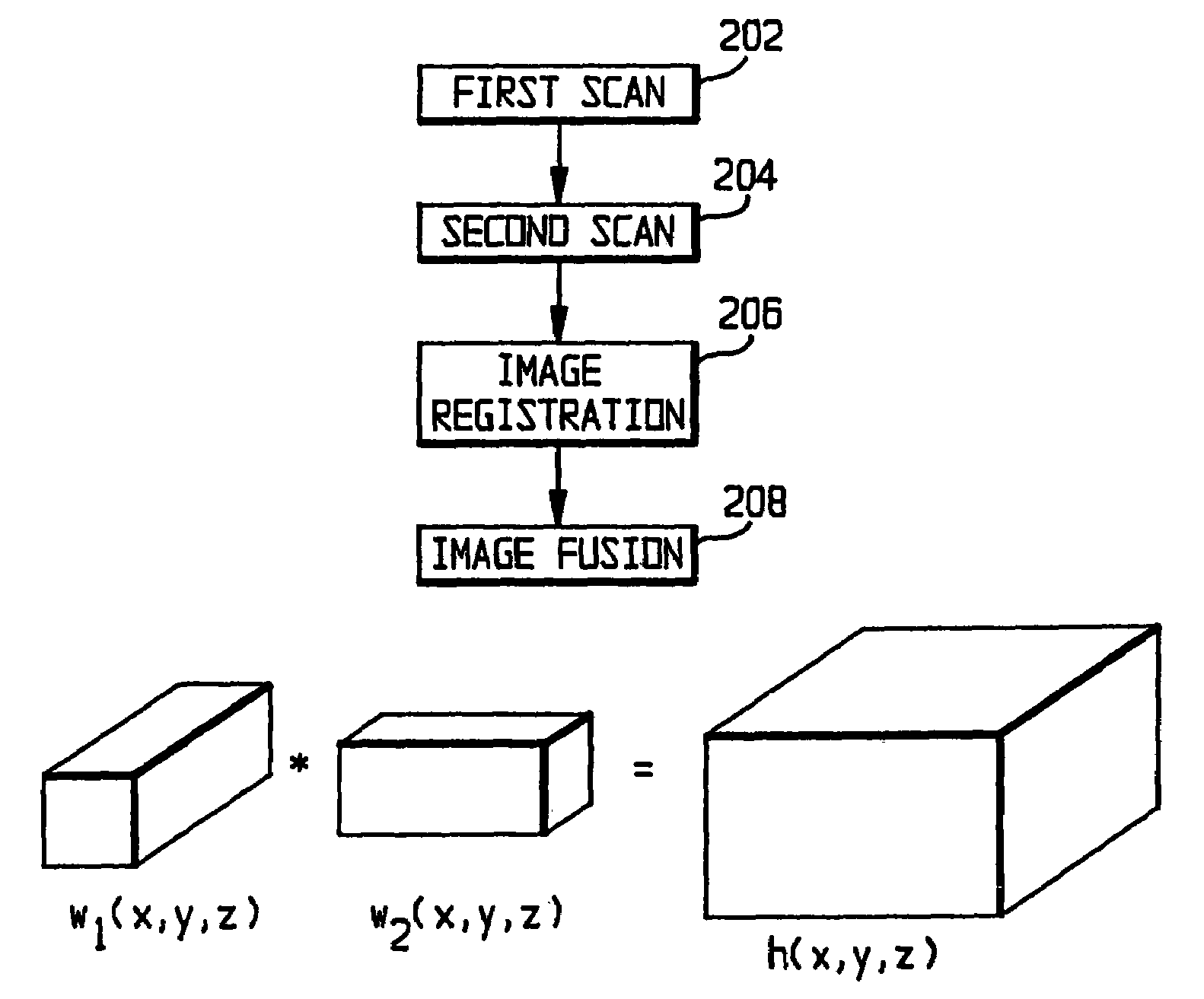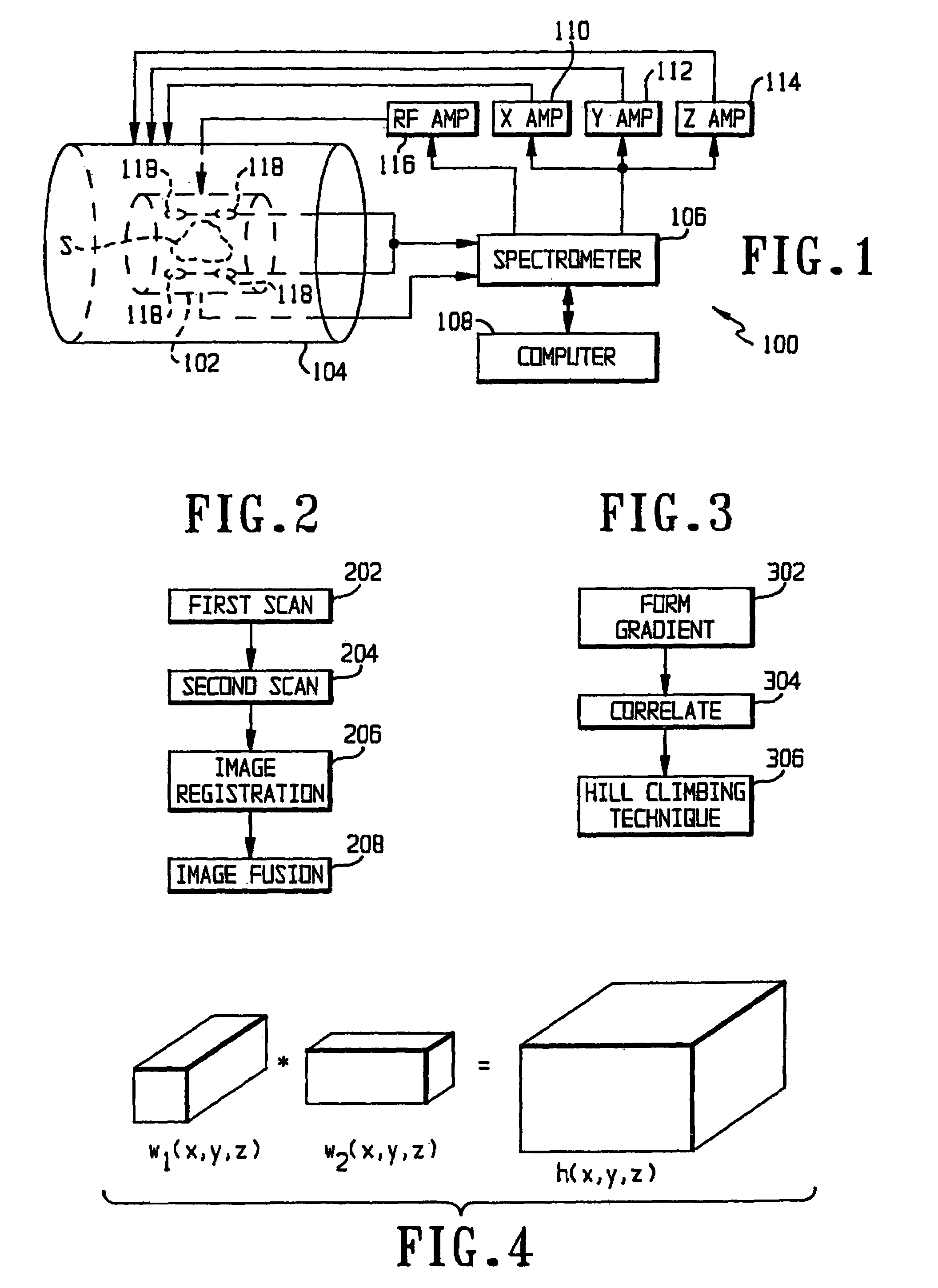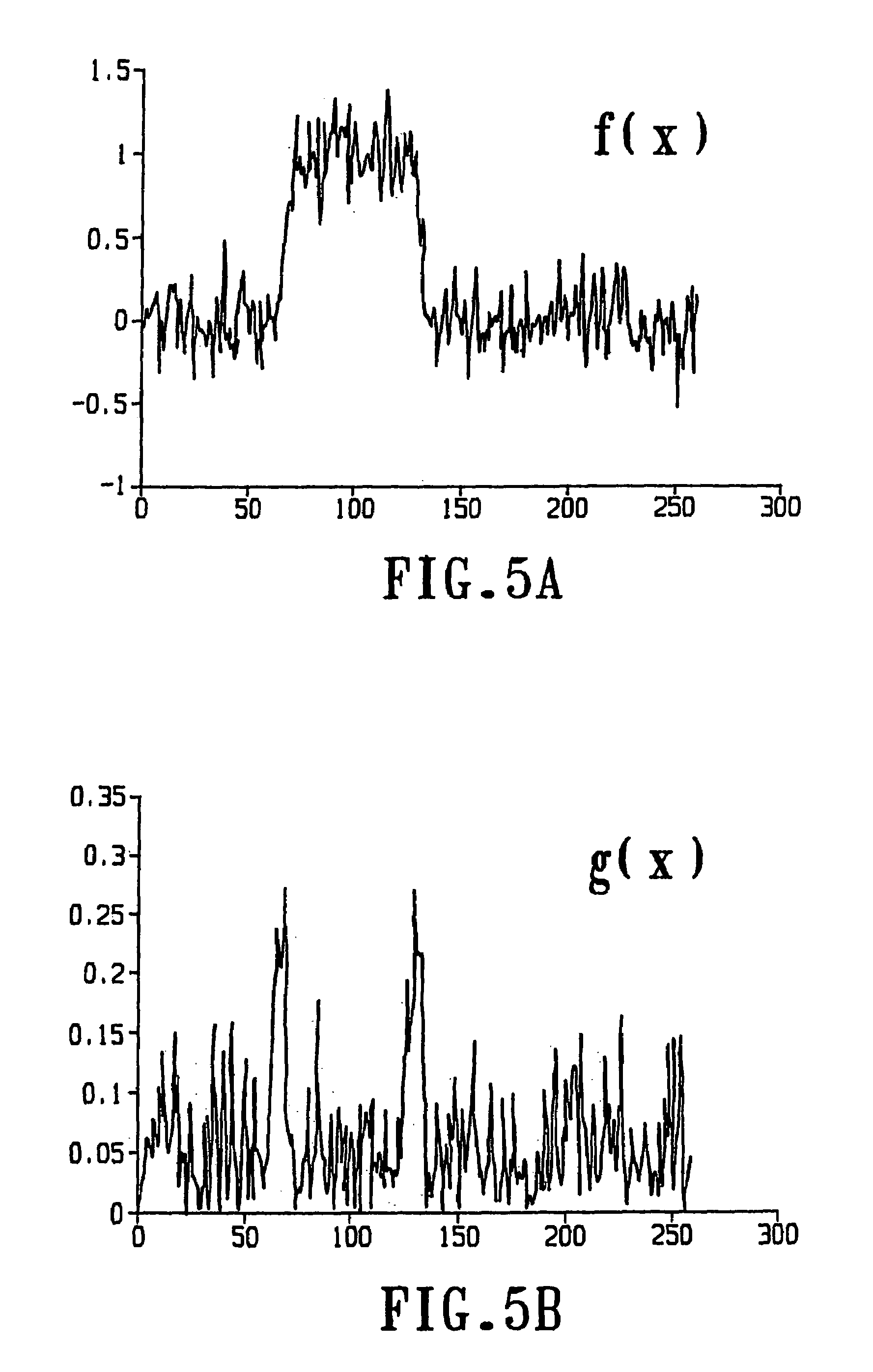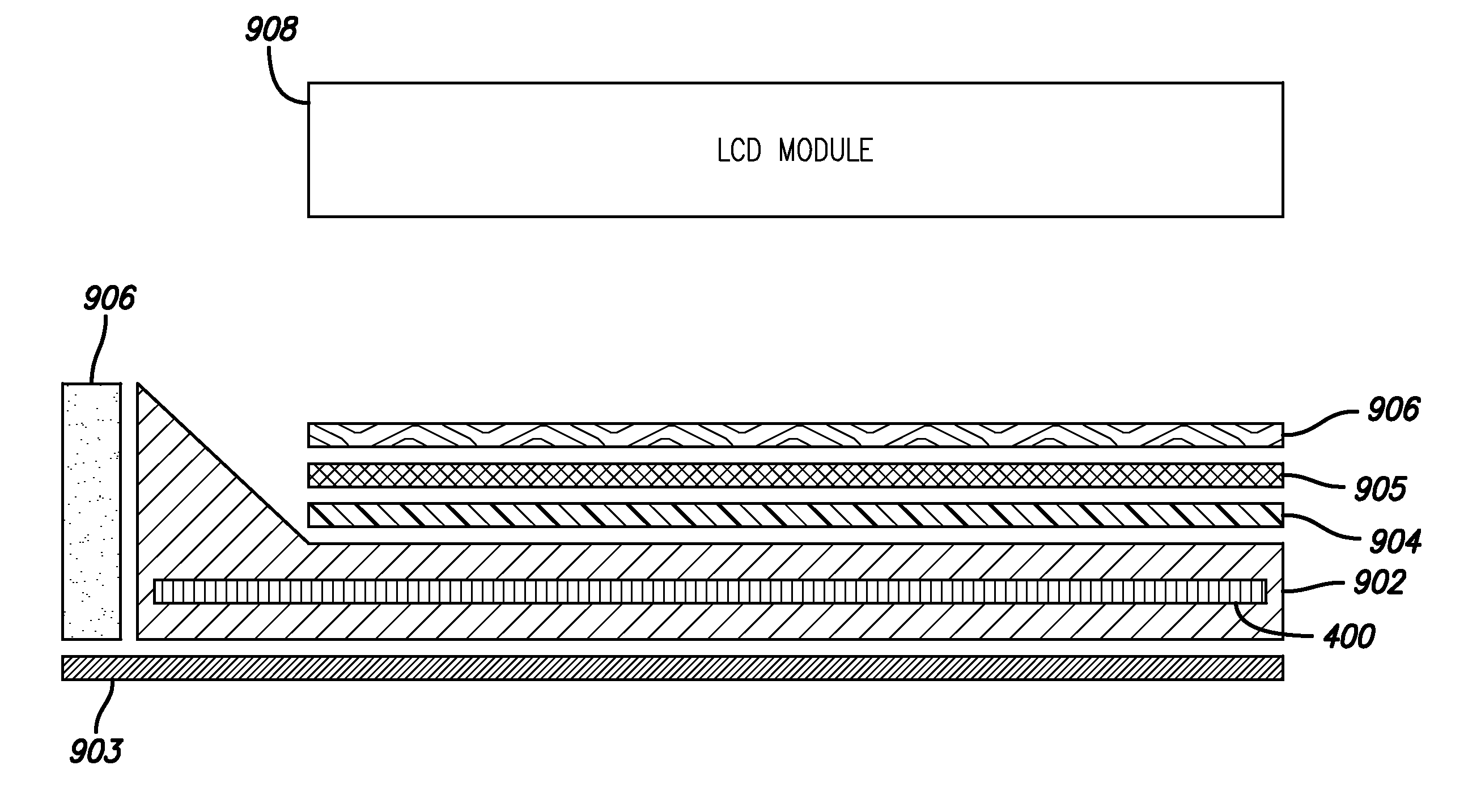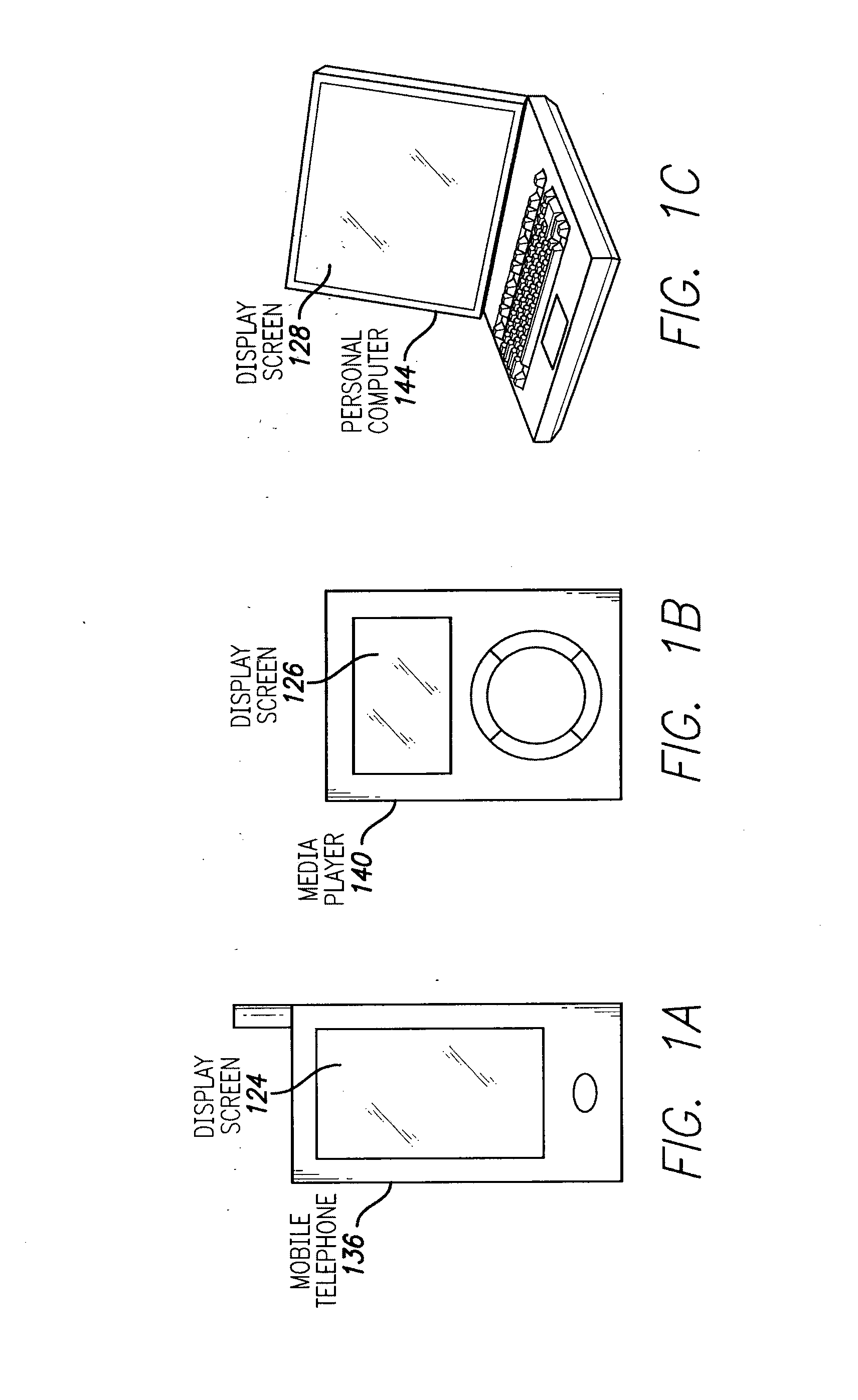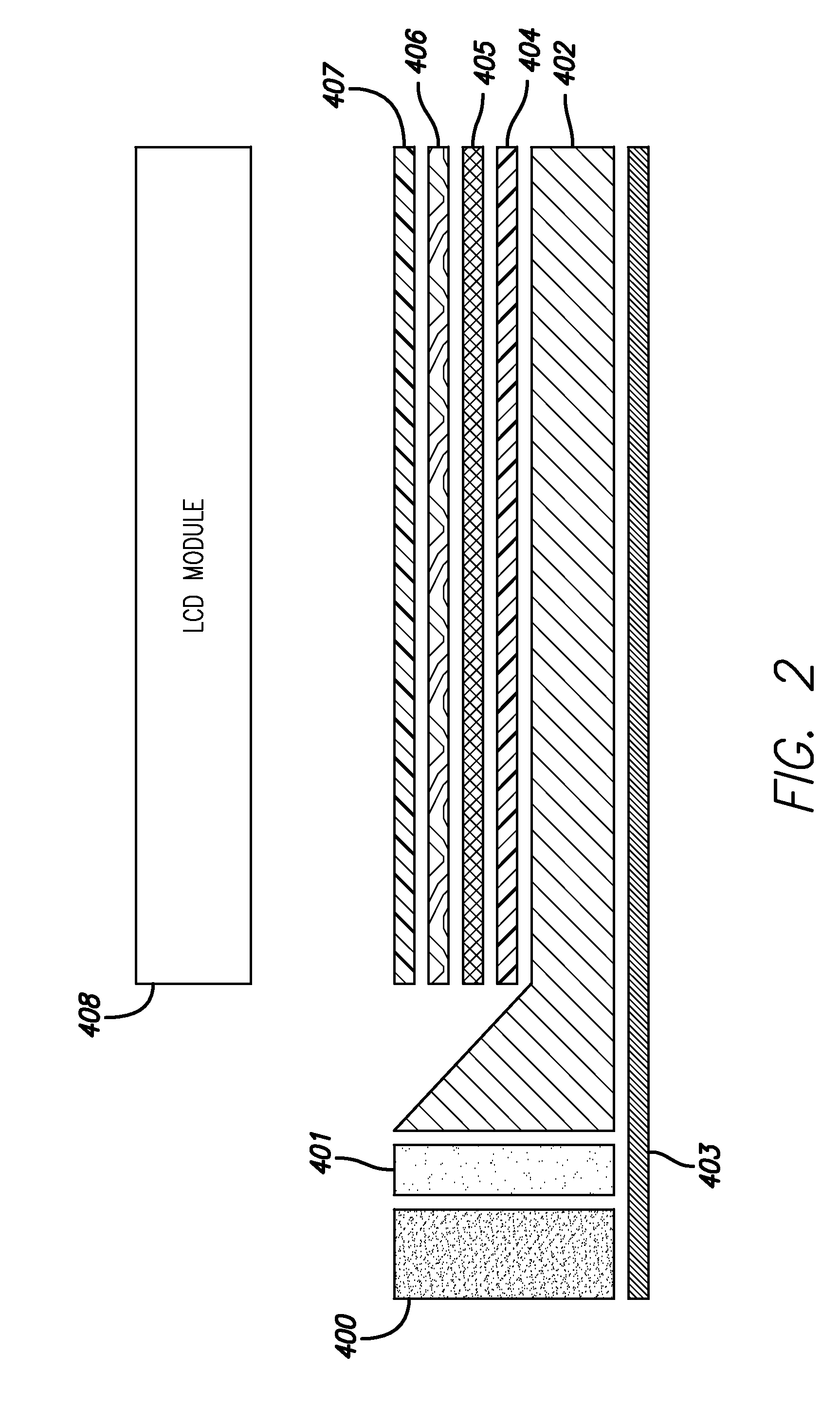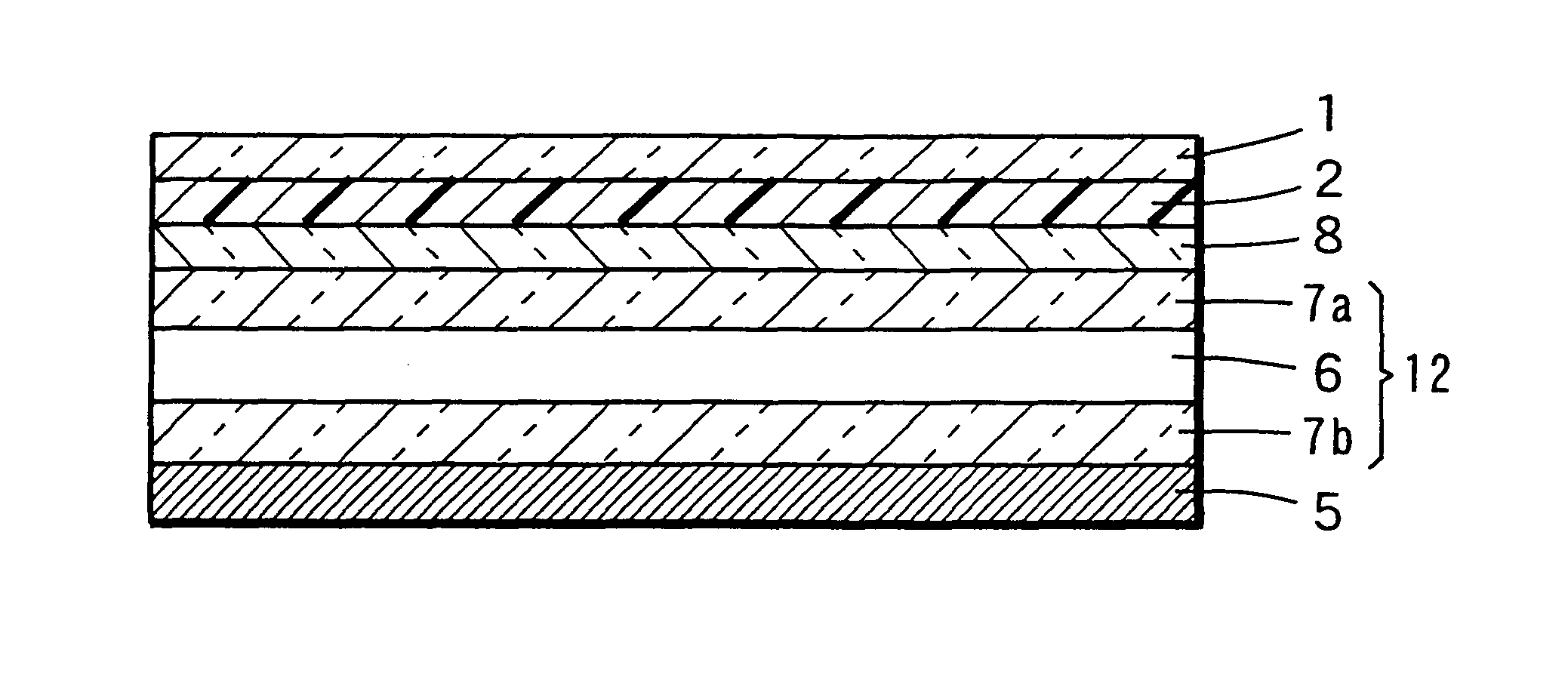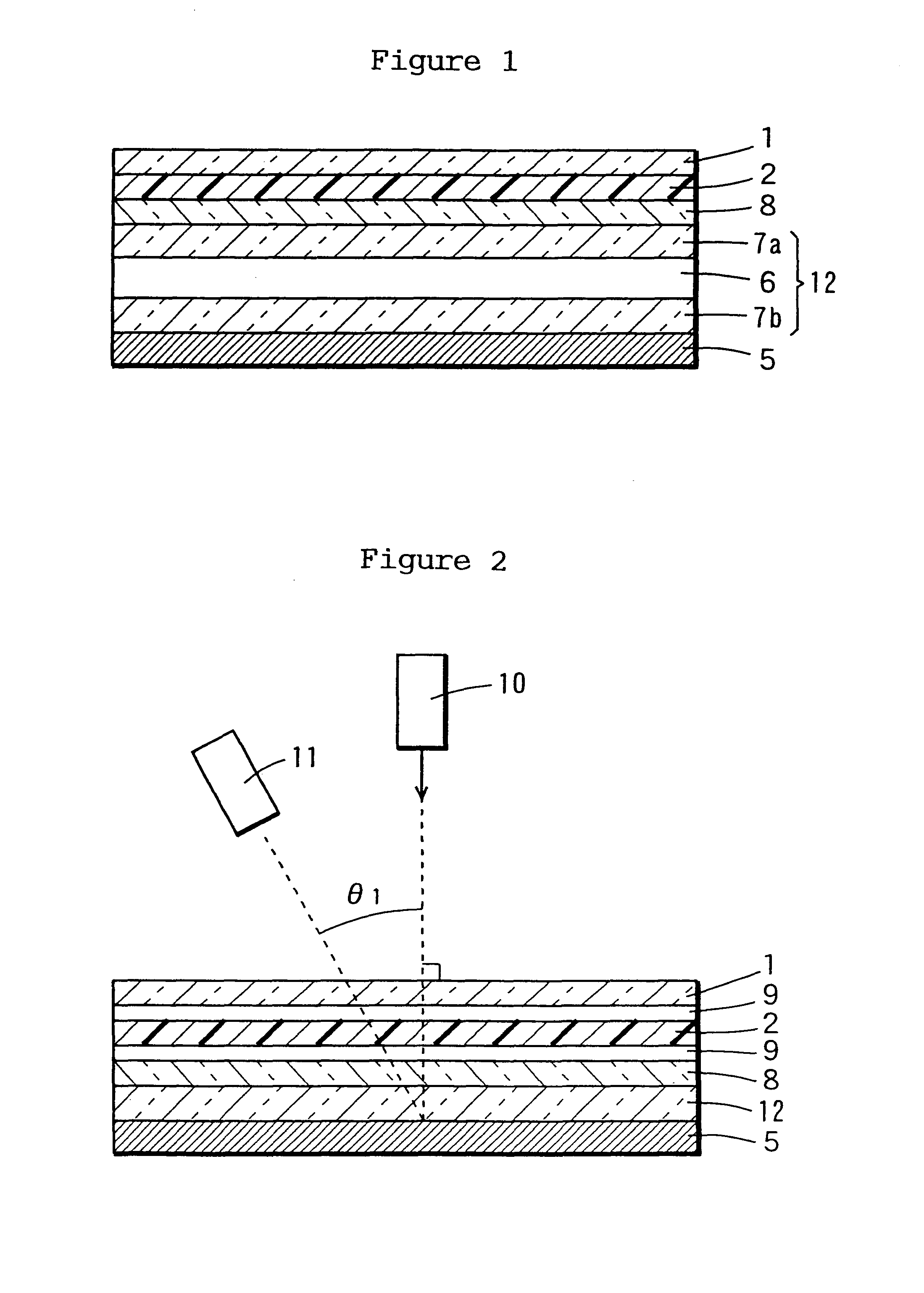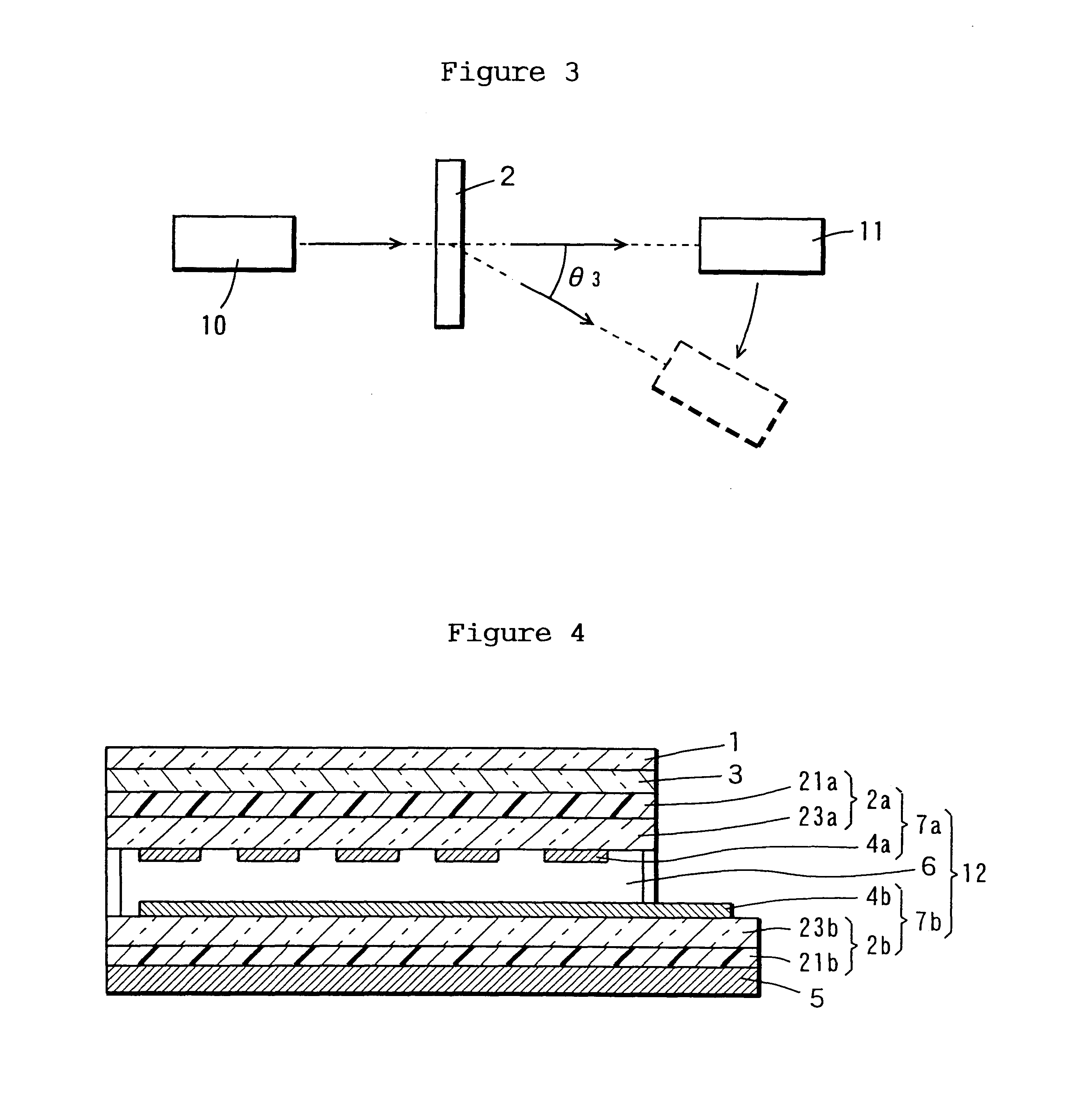Patents
Literature
2559 results about "Isotropy" patented technology
Efficacy Topic
Property
Owner
Technical Advancement
Application Domain
Technology Topic
Technology Field Word
Patent Country/Region
Patent Type
Patent Status
Application Year
Inventor
Isotropy is uniformity in all orientations; it is derived from the Greek isos (ἴσος, "equal") and tropos (τρόπος, "way"). Precise definitions depend on the subject area. Exceptions, or inequalities, are frequently indicated by the prefix an, hence anisotropy. Anisotropy is also used to describe situations where properties vary systematically, dependent on direction. Isotropic radiation has the same intensity regardless of the direction of measurement, and an isotropic field exerts the same action regardless of how the test particle is oriented.
Conformal nanolaminate dielectric deposition and etch back gap fill process
InactiveUS7482247B1Reduce morbidityHigh aspect ratioSemiconductor/solid-state device manufacturingChemical vapor deposition coatingDielectricEngineering
Conformal nanolaminate dielectric deposition and etch back processes that can fill high aspect ratio (typically at least 5:1, for example 6:1), narrow width (typically sub 0.13 micron, for example 0.1 micron or less) gaps with significantly reduced incidence of voids or weak spots involve the use of any suitable confirmal dielectric deposition technique and a dry etch back. The etch back part of the process involves a single step or an integrated multi-step (for example, two-step) procedure including an anisotropic dry etch followed by an isotropic dry etch. The all dry deposition and etch back process in a single tool increases throughput and reduces handling of wafers resulting in more efficient and higher quality nanolaminate dielectric gap fill operations.
Owner:NOVELLUS SYSTEMS
Method for Making Advanced Smart Cards With Integrated Electronics Using Isotropic Thermoset Adhesive Materials With High Quality Exterior Surfaces
InactiveUS20080096326A1Speed up the flowPrinted circuit assemblingLine/current collector detailsIntegrated electronicsSmart card
Advanced Smart Cards and similar form factors (e.g. documents, tags) having high quality external surfaces of Polyvinylchloride (PVC), Polycarbonate (PC), synthetic paper or other suitable material can be made with highly sophisticated electronic components (e.g. Integrated Circuit chips, batteries, microprocessors, Light Emitting Diodes, Liquid Crystal Displays, polymer dome switches, and antennae), integrated in the bottom layer of the card structure, through use of injection molded thermosetting or thermoplastic material that becomes the core layer of said Advanced Smart Cards. A lamination finishing process can provide a high quality lower surface, and the encapsulation of the electronic components in the thermosetting or thermoplastic material provides protection from the lamination heat and pressure.
Owner:CARDXX
Fusion of multiple imaging planes for isotropic imaging in MRI and quantitative image analysis using isotropic or near-isotropic imaging
ActiveUS7634119B2Improve imaging resolutionHigh resolutionCharacter and pattern recognitionDiagnostic recording/measuringImaging analysisComputer vision
In accordance with the present invention there is provided methods for generating an isotropic or near-isotropic three-dimensional images from two-dimensional images. In accordance with the present invention the method includes, obtaining a first image of a body part in a first plane, wherein the first image generates a first image data volume; obtaining a second image of the body part in a second plane, wherein the second image generates a second image data volume; and combining the first and second image data volumes to form a resultant image data volume, wherein the resultant image data volume is isotropic or near-isotropic.
Owner:CONFORMIS
Method for making memory cards and similar devices using isotropic thermoset materials with high quality exterior surfaces
InactiveUS7225537B2Shorten the timeQuality improvementPrinted circuit assemblingLine/current collector detailsEngineeringInjection moulding
Memory Cards containing Integrated Circuits and other electronic components (e.g. resistors) in a variety of form factors having high quality external surfaces of polycarbonate, synthetic paper (e.g. Teslin), or other suitable material (e.g. PVC) can be made through use of injection molded thermoplastic material or thermosetting material that becomes the core layer of said Memory Cards and similar devices. The object of the invention is to provide the following properties to Memory Cards: rapid production cycle, high volume manufacturing throughput, security, electronics protection, better tamper resistance, durability, and highly reliable complex electronics encapsulation, achieved through a process utilizing low temperature and low pressure.
Owner:CARDXX
Structured materials with tailored isotropic and anisotropic poisson's ratios including negative and zero poisson's ratios
The invention described herein relates to structured porous materials, where the porous structure provides a tailored Poisson's ratio behavior. In particular, the structures of this invention are tailored to provide a range in Poisson's ratio ranging from a negative Poisson's ratio to a zero Poisson's. Two exemplar structures, each consisting of a pattern of elliptical or elliptical-like voids in an elastomeric sheet, are presented. The Poisson's ratios are imparted to the substrate via the mechanics of the deformation of the voids (stretching, opening, and closing) and the mechanics of the material (rotation, translation, bending, and stretching). The geometry of the voids and the remaining substrate are not limited to those presented in the models and experiments of the exemplars, but can vary over a wide range of sizes and shapes. The invention applies to both two-dimensional structured materials as well as three dimensionally structured materials.
Owner:BOYCE CHRISTOPHER M +3
Method and system for cleaning magnetic artifacts using a carbonyl reactive ion etch
A method and system for providing a magnetic structure that includes at least one magnetic material is disclosed. The method and system include defining the magnetic structure. The magnetic structure also includes a top layer that is insensitive to an istroropic carbonyl reactive ion etch. The defining of the magnetic structure results in at least one artifact. The method and system further includes cleaning the at least one artifact using at least one isotropic carbonyl reactive ion etch.
Owner:WESTERN DIGITAL TECH INC
Liquid crystal display device, image shifting device, and image display apparatus
ActiveUS6885412B2Quality improvementQuick responseLiquid crystal compositionsTelevision system detailsLiquid-crystal displayEngineering
A liquid crystal display device includes a first substrate, a second substrate opposing the first substrate, a liquid crystal layer provided in a gap between the first substrate and the second substrate, and a temperature adjustment member formed on the first substrate and / or the second substrate. The panel temperature T (° C.) of the liquid crystal display device is controlled to be equal to or greater than TNI-65 and less than or equal to TNI-15, where TNI (° C.) is the nematic-isotropic phase transition temperature of the liquid crystal composition of the liquid crystal layer.
Owner:SHARP KK
Optical element employing liquid crystal having optical isotropy
InactiveUS20060227283A1High speed responseHigh-speed opticalStatic indicating devicesNon-linear opticsRefractive indexIsotropy
An optical element is provided, which can realize high speed response equivalent or more than that of conventional elements without depending on incident polarization. A diffraction element 10 comprises transparent substrates 5 and 6, a grating 2A made of an isotropic refractive index solid material formed on the transparent substrate 5 and having a cross-sectional structure having a periodical concavo-convex shape, a blue phase liquid crystal 2B which fills the concave portions of grating 2A including a periodical concave-convex shape having a refractive index which changes isotropically, and transparent electrodes 3 and 4 for applying voltage to the blue phase liquid crystal 2B, wherein the grating 2A and the blue phase liquid crystal 2B constitutes a diffraction grating 1, and the diffraction element 10 has a construction that the refractive index of the blue phase liquid crystal 2B is changed by the voltage applied via the transparent electrodes 3 and 4.
Owner:ASAHI GLASS CO LTD
Indefinite materials
InactiveUS20060125681A1Protective material radiating elementsRadio wave reradiation/reflectionAntenna substrateWavelength
A compensating multi layer material includes two compensating layers adjacent to one another. A multi-layer embodiment of the invention produces subwavelength near-field focusing, but mitigates the thickness and loss limitations of the isotropic “perfect lens”. An antenna substrate comprises an indefinite material.
Owner:RGT UNIV OF CALIFORNIA
Methods for Fabricating Thermochromic Filters
InactiveUS20100045924A1Easy and less-expensive to manufactureEasy to installSolar heating energySolar heat collector controllersSelective reflectionElectrical polarity
Thermochromic liquid crystal filters are fabricated by providing two polarizers oriented at offset polarity with respect to each other; providing alignment structures adjacent the inner surfaces of the polarizers; placing a plurality of spacers between the polarizers; and filling a space created by the spacers with a thermotropic liquid crystal that acts as a wave block in an isotropic state and acts as a depolarizer in a nematic state. Alternatively, the filters can be created by encapsulating a thermochromic liquid crystal with a polymer material to form a flexible film and orienting the thermochromic liquid crystal in the polymer material to create a structure that functions as a thermochromic optical filter. Such filters can control the flow of light and radiant heat through selective reflection, transmission, absorption, and / or re-emission. The filters have particular application in passive or active light-regulating and temperature-regulating films, materials, and devices, and particularly as construction materials.
Owner:RAVENBRICK
Microwave-induced localized heating of cnt filled polymer composites for enhanced inter-bead diffusive bonding of fused filament fabricated parts
ActiveUS20160325491A1Increase inter-bead bond strengthImprove mechanical propertiesMaterial nanotechnologyElectroconductive/antistatic filament manufacture3d printCarbon nanotube
A microwave-induced heating of CNT filled (or coated) polymer composites for enhancing inter-bead diffusive bonding of fused filament fabricated parts. The technique incorporates microwave absorbing nanomaterials (carbon nanotubes (CNTs)) onto the surface or throughout the volume of 3D printer polymer filament to increase the inter-bead bond strength following a post microwave irradiation treatment and / or in-situ focused microwave beam during printing. The overall strength of the final 3D printed part will be dramatically increased and the isotropic mechanical properties of fused filament part will approach or exceed conventionally manufactured counterparts.
Owner:TEXAS TECH UNIV SYST
Isotropic atomic layer etch for silicon and germanium oxides
ActiveUS9431268B2Rapid and controlled changeElectric discharge tubesSemiconductor/solid-state device manufacturingAlcoholHydrogen
Methods for controlled isotropic etching of layers of silicon oxide and germanium oxide with atomic scale fidelity are provided. The methods make use of a reaction of anhydrous HF with an activated surface of an oxide, with an emphasis on removal of water generated in the reaction. In certain embodiments the oxide surface is first modified by adsorbing an OH-containing species (e.g., an alcohol) or by forming OH bonds using a hydrogen-containing plasma. The activated oxide is then etched by a separately introduced anhydrous HF, while the water generated in the reaction is removed from the surface of the substrate as the reaction proceeds, or at any time during or after the reaction. These methods may be used in interconnect pre-clean applications, gate dielectric processing, manufacturing of memory devices, or any other applications where accurate removal of one or multiple atomic layers of material is desired.
Owner:LAM RES CORP
Fusion of Multiple Imaging Planes for Isotropic Imaging in MRI and Quantitative Image Analysis using Isotropic or Near-isotropic Imaging
InactiveUS20100054572A1Character and pattern recognitionDiagnostic recording/measuringImaging analysisComputer vision
Owner:CONFORMIS
High performance low cost monopole antenna for wireless applications
ActiveUS7064717B2Improve featuresImprove performanceAntenna supports/mountingsRadiating elements structural formsCommunication deviceMonopole antenna
A monopole antenna, a monopole antenna system and a data communication device are disclosed in which a high isotropic radiation characteristic is achieved with a minimum substrate area occupied by the antenna. To this end, a substantially T-shaped monopole design is used, wherein end portions of one of the resonating paths are oriented in conformity with respective edges of a substrate.
Owner:GLOBALFOUNDRIES US INC
Implantable wireless accoustic stimulators with high energy conversion efficiencies
ActiveUS8588926B2Efficient HarvestingImprove isotropyPiezoelectric/electrostrictive device manufacture/assemblyPiezoelectric/electrostriction/magnetostriction machinesElectricityAcoustic energy
Receiver-stimulator with folded or rolled up assembly of piezoelectric components, causing the receiver-stimulator to operate with a high degree of isotropy are disclosed. The receiver-stimulator comprises piezoelectric components, rectifier circuitry, and at least two stimulation electrodes. Isotropy allows the receiver-stimulator to be implanted with less concern regarding the orientation relative the transmitted acoustic field from an acoustic energy source.
Owner:EBR SYST
Method and system which forms an isotropic, high-resolution, three-dimensional diagnostic image of a subject from two-dimensional image data scans
InactiveUS6998841B1High resolutionIncrease contrastMagnetic property measurementsCharacter and pattern recognitionSpectral bandsImage resolution
MRI scans typically have higher resolution within a slice than between slices. To improve the resolution, two MRI scans are taken in different, preferably orthogonal, directions. The scans are registered by maximizing a correlation between their gradients and then fused to form a high-resolution image. Multiple receiving coils can be used. When the images are multispectral, the number of spectral bands is reduced by transformation of the spectral bands in order of image contrast and using the transformed spectral bands with the highest contrast.
Owner:VIRTUALSCOPICS
Protective helmet
InactiveUS7930771B2Improve protectionReduce the risk of injuryHatsHeadwear capsTangential forceCell wall
A protective helmet is described comprising: an outer layer (1); an inner layer (5) for contact with a head of a wearer; and an intermediate layer (3, 4) comprising an anisotropic cellular material comprising cells having cell walls, the anisotropic cellular material having a relatively low resistance against deformation resulting from tangential forces on the helmet. The anisotropic material can be a foam or honeycomb material. The foam is preferably a closed cell foam. The helmet allows tangential impacts to the helmet which cause less rotational acceleration or deceleration of the head of the wearer compared to helmets using isotropic foams while still absorbing a significant amount of rotational energy.
Owner:K U LEUVEN RES & DEV
Liquid Crystal Display Device
ActiveUS20080259254A1High response rateQuality improvementLiquid crystal compositionsNon-linear opticsIn planeDopant
[PROBLEMS] To provide a liquid crystal display device that does not need any surface aligning treatment, realizes striking increase of a response speed of movie display and is free from any light leakage (produce dark field) at black display.[MEANS FOR SOLVING PROBLEMS] There is provided a liquid crystal display device comprising a pair of transparent substrates and, interposed therebetween, a polymer stabilized blue-phase liquid crystal. The liquid crystal display device utilizing the polymer stabilized blue-phase liquid crystal exhibits a large birefringence change upon application of an electric field to cell substrate in an in-plane direction. The polymer stabilized blue-phase liquid crystal is composed of a low-molecular liquid crystal capable of developing a blue phase between cholesteric phase and isotropic phase and a polymer network created in the low-molecular liquid crystal. Further, by optimizing the type and amount of chiral dopant added to the liquid crystal, there can be provided a liquid crystal display device that is free from any light leakage (produce dark field) at black display.
Owner:JAPAN SCI & TECH CORP
Extrudable multiphase composition comprising a lamellar phase and an isotropic phase
InactiveUS6534456B2Cosmetic preparationsPreparation by hydrogen halide split-offLotionLamellar phase
Owner:UNILEVER HOME & PERSONAL CARE USA DIV OF CONOPCO IN C
Coverage antenna apparatus with selectable horizontal and vertical polarization elements
ActiveUS7358912B1Reduced footprintAntenna arraysAntenna feed intermediatesAntenna elementHorizontal and vertical
An antenna apparatus comprises selectable antenna elements including a plurality of dipoles and / or a plurality of slot antennas (“slot”). Each dipole and / or each slot provides gain with respect to isotropic. The dipoles may generate vertically polarized radiation and the slots may generate horizontally polarized radiation. Each antenna element may have one or more loading structures configured to decrease the footprint (i.e., the physical dimension) of the antenna element and minimize the size of the antenna apparatus.
Owner:ARRIS ENTERPRISES LLC
Implantable wireless accoustic stimulators with high energy conversion efficiencies
ActiveUS20130197609A1Improve isotropyEfficient of acoustic powerPiezoelectric/electrostrictive device manufacture/assemblyPiezoelectric/electrostriction/magnetostriction machinesElectricityAcoustic energy
Receiver-stimulator with folded or rolled up assembly of piezoelectric components, causing the receiver-stimulator to operate with a high degree of isotropy are disclosed. The receiver-stimulator comprises piezoelectric components, rectifier circuitry, and at least two stimulation electrodes. Isotropy allows the receiver-stimulator to be implanted with less concern regarding the orientation relative the transmitted acoustic field from an acoustic energy source.
Owner:EBR SYST
3D Display Device with Controllable Device for Tracking Visibility Regions
InactiveUS20100289870A1Improve efficiencyTelevision system detailsHolographic light sources/light beam propertiesWaveguideLight source
A 3D display device with controllable device for tracking visibility regions is disclosed, and includes a controllable device for tracking a visibility region, generated by way of superposition of light source images, in a observer plane of the display device. In preferred embodiments, the cladding of a waveguide comprises at least one material with optical properties of an anisotropic liquid, or at least two materials with optical properties of an isotropic liquid; a matrix arrangement of control electrodes defines multiple positions to be generated for local exit points in the cladding of the waveguide at which the total reflection is locally cancelled; and a system controller modifies positions of the output coupling points for superposing the output-coupled light through the lens array to the visibility region by displacing an output coupling point, or by switching off one output coupling point and switching on another one.
Owner:SEEREAL TECHNOLOGIES
Semiconductor device having high density interconnections and method for manufacturing the same
InactiveUS6300683B1TransistorSemiconductor/solid-state device detailsElectrical conductorDevice material
A main electrode region of a semiconductor element is provided in a semiconductor region on the surface of a semiconductor substrate, and first and second interlayer insulating films are deposited on this semiconductor region. A metal interconnection is provided on top of the second interlayer insulating film. The main electrode region and the metal interconnection a shape having a first tapered portion with an isotropic taper angle theta3, which starts from the interface between the first and second interlayer insulating films, and a second tapered portion with an anisotropic taper angle theta4, which starts from a point within the second interlayer insulating film. As a result, the shape of the face of the contact plug connecting to the metal interconnection is anisotropic, having dimensions which are greater in the direction parallel to the metal interconnection than in the direction perpendicular to the metal interconnection. The shoulders of the contact hole which are parallel to the metal interconnection are smoothed by anisotropic recession caused by the second tapered portion. Therefore, barrier metal film can be deposited approximately evenly inside the contact hole. Since the diameter of the contact hole does not increase perpendicular to the metal interconnection due to the anisotropic taper angle theta4, the intervals between adjoining metal interconnections can be minimized. The metal interconnection and the contact plug can be comprised from the same conductor or different conductors. The metal interconnection may, for instance, be a DRAM bit line or the like.
Owner:KK TOSHIBA
Anistropic drapes and systems
ActiveUS20090299340A1Reduce pressureNon-adhesive dressingsDiagnosticsHandling systemBiomedical engineering
An anisotropic wound drape for treating a wound on a patient includes a flexible sheet for placing over a tissue site. The flexible sheet includes a first isotropic zone, and a second isotropic zone. The first isotropic zone and the second isotropic zone are configured to provide the flexible sheet with anisotropic stretching properties. The anisotropic drape may used as part of a reduced-pressure wound treatment system. Other systems and methods are also presented.
Owner:KCI LICENSING INC
Extrudable multiphase composition comprising a lamellar phase and an isotropic phase
InactiveUS20020010110A1Cosmetic preparationsPreparation by hydrogen halide split-offLotionLamellar phase
The invention relates to a plurality of liquid cleansing compositions having at least one lamellar phase which possesses a lotion-like appearance conveying signals of enhanced moisturization and at least one abutting isotropic phase having enhanced cleansing ability. The inventive composition is contained in a partitionless container in one embodiment conveying signals of a plurality of compositions. This multiphase composition is stable upon storage and is dispensed as a striped product where typically one stripe has primarily a cleansing function and a second stripe has primarily a moisturization function.
Owner:UNILEVER HOME & PERSONAL CARE USA DIV OF CONOPCO IN C
High-efficiency light extraction structures and methods for solid-state lighting
InactiveUS20060237735A1Improve performanceImprove lighting effectsSolid-state devicesSemiconductor devicesPhotonicsLight emitting device
A soft solder flowing into the recesses of a semiconductor thin film LED provides: (a) increased bonding strength and better mechanical durability, (b) improved heat dissipation, (c) enhanced light extraction when the LED film is bonded to a new carrier. Annealing localized islands of absorbing metal creates an ohmic contact. Those isolated islands are inter-connected by a layer of a highly reflective metal. This design enables a significant absorption reduction within the LED device and leads to a significant improvement of light extraction. Additionally, the light extraction efficiency of an isotropic light emitting device is improved via surface shaping of the device by a 2D-array of micro-lenses and photonic band gap structure. For manufacturability purpose the making of micron-size lenses of the surface of the chip may preferably be performed as a final step, preferably with optical lithography.
Owner:DICON FIBEROPTICS
Magnetic resonance method and system forming an isotropic, high resolution, three-dimensional diagnostic image of a subject from two-dimensional image data scans
InactiveUS6984981B2High resolutionIncrease contrastMagnetic property measurementsCharacter and pattern recognitionSpectral bandsImage contrast
MRI scans typically have higher resolution within a slice than between slices. To improve the resolution, two MRI scans are taken in different, preferably orthogonal, directions. The scans are registered by maximizing a correlation between their gradients and then fused to form a high-resolution image. Multiple receiving coils can be used. When the images are multispectral, the number of spectral bands is reduced by transformation of the spectral bands in order of image contrast and using the transformed spectral bands with the highest contrast.
Owner:VIRTUALSCOPICS
Light mixture for a display utilizing quantum dots
InactiveUS20140036203A1Thin profileLight guides with fluorescent dopantsNon-linear opticsLight guideDisplay device
Utilization of quantum dots in displays and the location of the quantum dot sheet within the stackup of the backlight can lead to issues such as non-uniform light mixing, non-uniform brightness, and off-axis changes in color. The mismatch between the isotropic nature of light emitted from the quantum dots and the light emitted directly from the light source can be alleviated by utilization of diffusers and prism sheets. The diffusers and prism sheets can be further utilized to change the angle of light such that it is directed upwards towards the top of the display for improved uniformity in brightness and enhanced performance. Placement of the diffuser sheets, prism sheets, and changes in the design of the components, such as the light guide path, can alleviate the issues by properly mixing the colors together in order to achieve a uniform distribution of colors in the display.
Owner:APPLE INC
Light scattering sheet, light scattering composite sheet, and liquid crystal display
InactiveUS6723392B1Improve clarityQuality improvementLiquid crystal compositionsDiffusing elementsSolid componentElectricity
A light-scattering sheet having a phase separation structure comprised of a plurality of solid components varying in refractive index is used to construct a liquid crystal display device. In a first embodiment, the light-scattering sheet is disposed in a defined position within a reflecting LCD device. Thus, in a reflecting LCD device comprising a liquid crystal cell constituted of a transparent front electrode plate having a substrate carrying a transparent conductive layer, a back electrode plate having a substrate carrying a conductive layer and a liquid crystal and, as disposed forwardly of the liquid crystal cell, a polarizer, the light-scattering sheet is interposed (i) between the polarizer and the front electrode plate or (ii) between the back electrode plate and a reflector disposed behind the back electrode plate. Alternatively, (iii) the substrate sheet may be constituted of the light-scattering sheet. In a second embodiment, a light-scattering sheet having an isotropic bicontinuous phase structure comprised of a plurality of polymers varying in refractive index is used.
Owner:DAICEL CHEM IND LTD
System and method for providing a compact, flat, microwave lens with wide angular field of regard and wideband operation
PendingUS20180183152A1High instantaneous bandwidthLow overall depthAntenna adaptation in movable bodiesDesign optimisation/simulationInterference (communication)Engineering
A system designs a thin and relatively flat microwave focusing lens that can produce multiple simultaneous beams, using readily-available isotropic dielectric materials, and having a gradient-index (GRIN) profile. The design optimizes the lens to achieve beam scanning and / or multiple beams over a wide field of regard (FOR) with broad bandwidth and a very short focal length compared with conventional lenses. The lens can be used individually or as an element in a more complex antenna having multiple lenses in various orientations that are independently switched, selected and / or excited simultaneously as elements in a phased array. The antenna terminal incorporates such lens into an array of lenses along with one or more feeds to produce single or multiple beams covering a broad field of regard for such applications as satellite communications on-the-move, cellular, broadband point-point or point-multipoint and other terrestrial or satellite communications systems. The lens and array design support multiple simultaneous independently steerable beams as well as null placement for interference cancellation.
Owner:ALL SPACE NETWORKS LTD
Features
- R&D
- Intellectual Property
- Life Sciences
- Materials
- Tech Scout
Why Patsnap Eureka
- Unparalleled Data Quality
- Higher Quality Content
- 60% Fewer Hallucinations
Social media
Patsnap Eureka Blog
Learn More Browse by: Latest US Patents, China's latest patents, Technical Efficacy Thesaurus, Application Domain, Technology Topic, Popular Technical Reports.
© 2025 PatSnap. All rights reserved.Legal|Privacy policy|Modern Slavery Act Transparency Statement|Sitemap|About US| Contact US: help@patsnap.com
